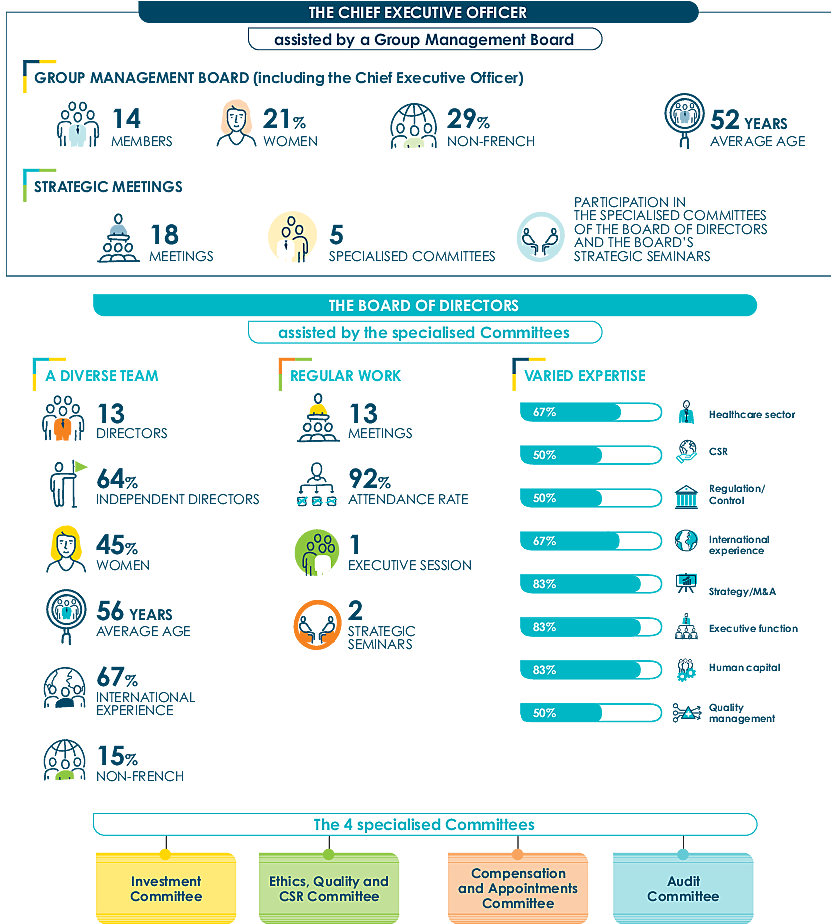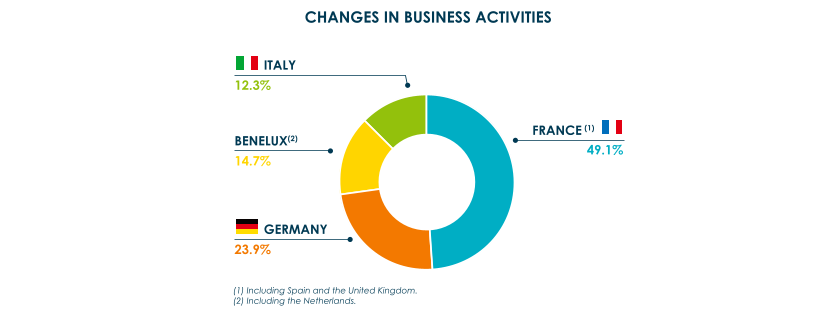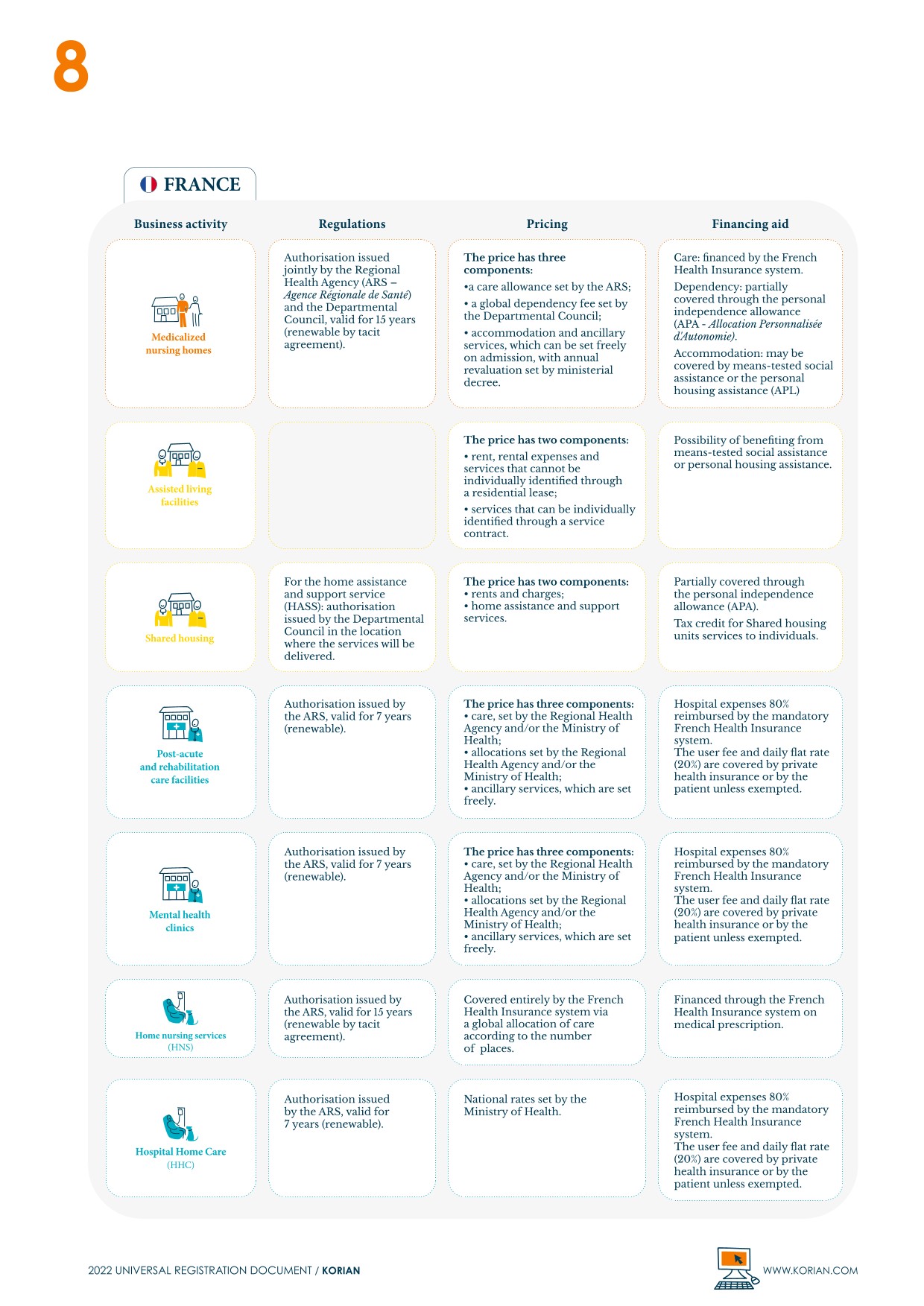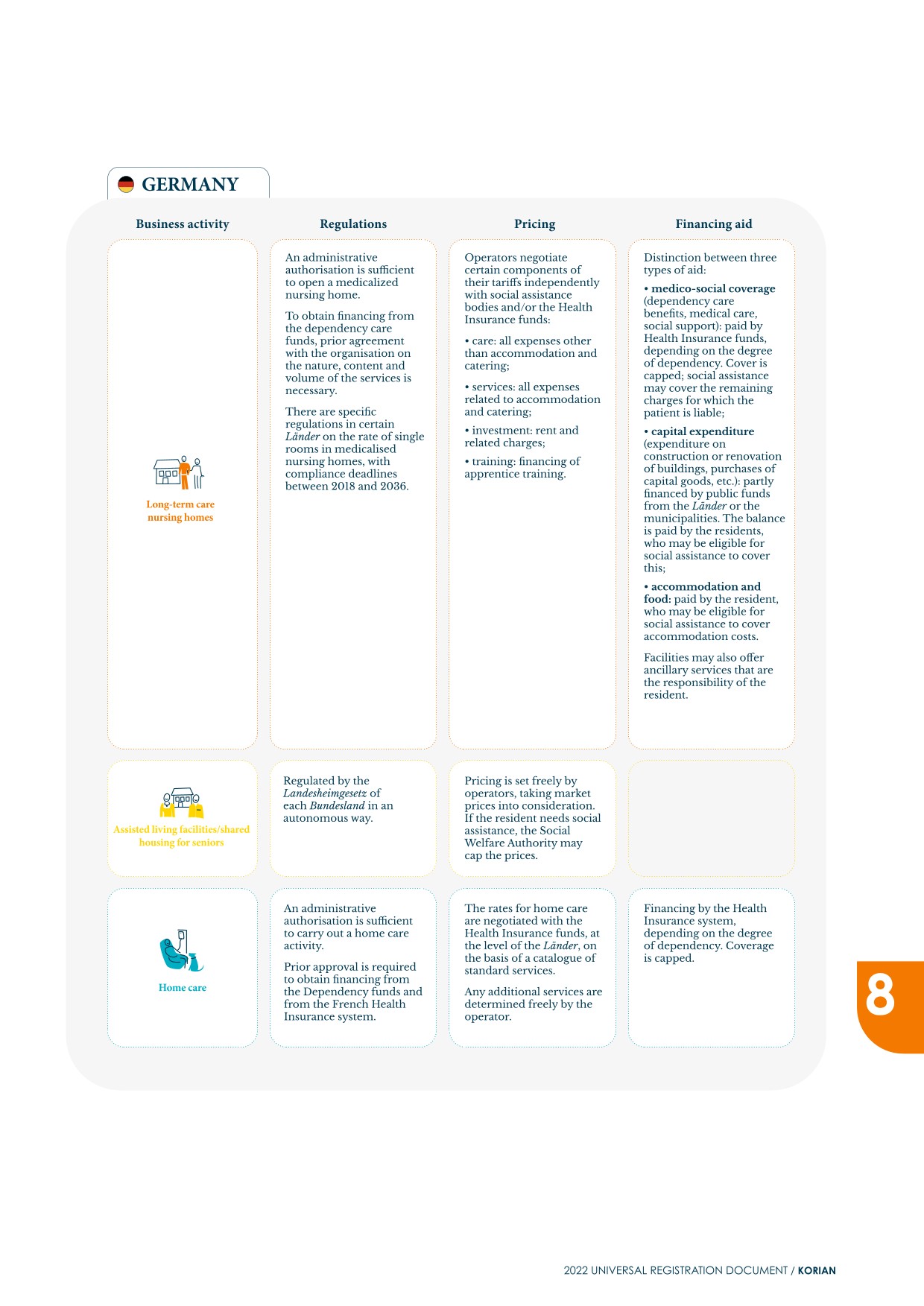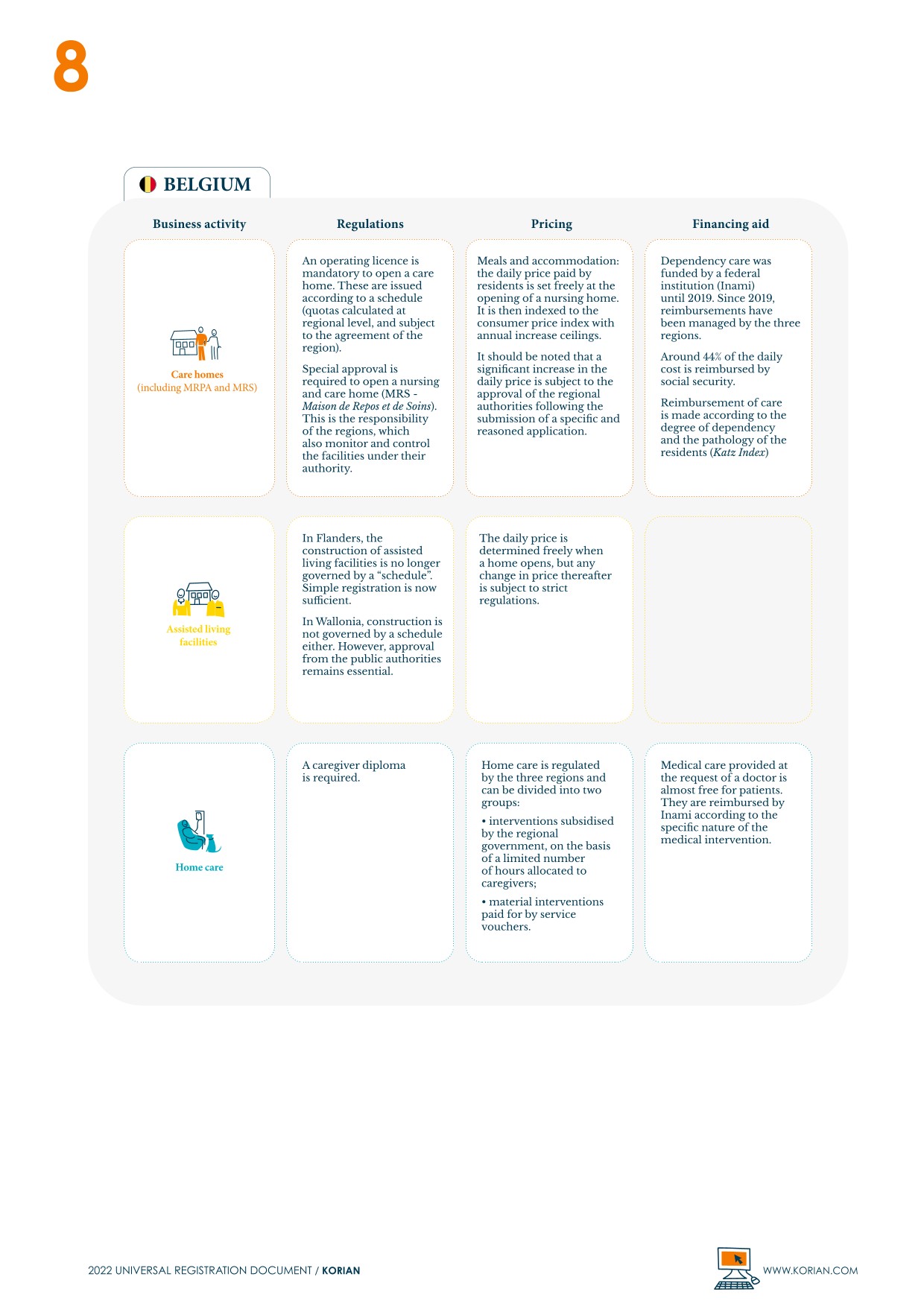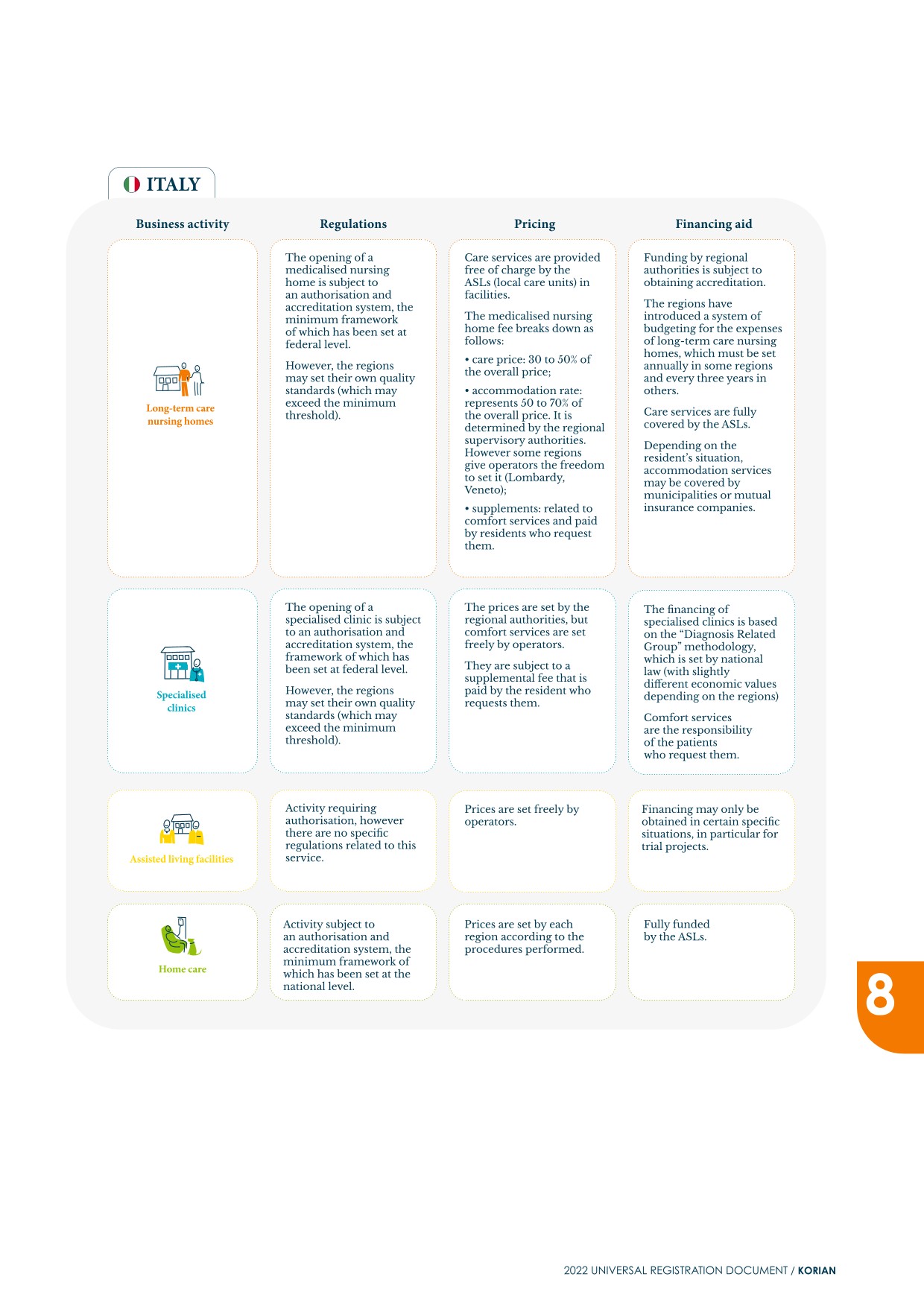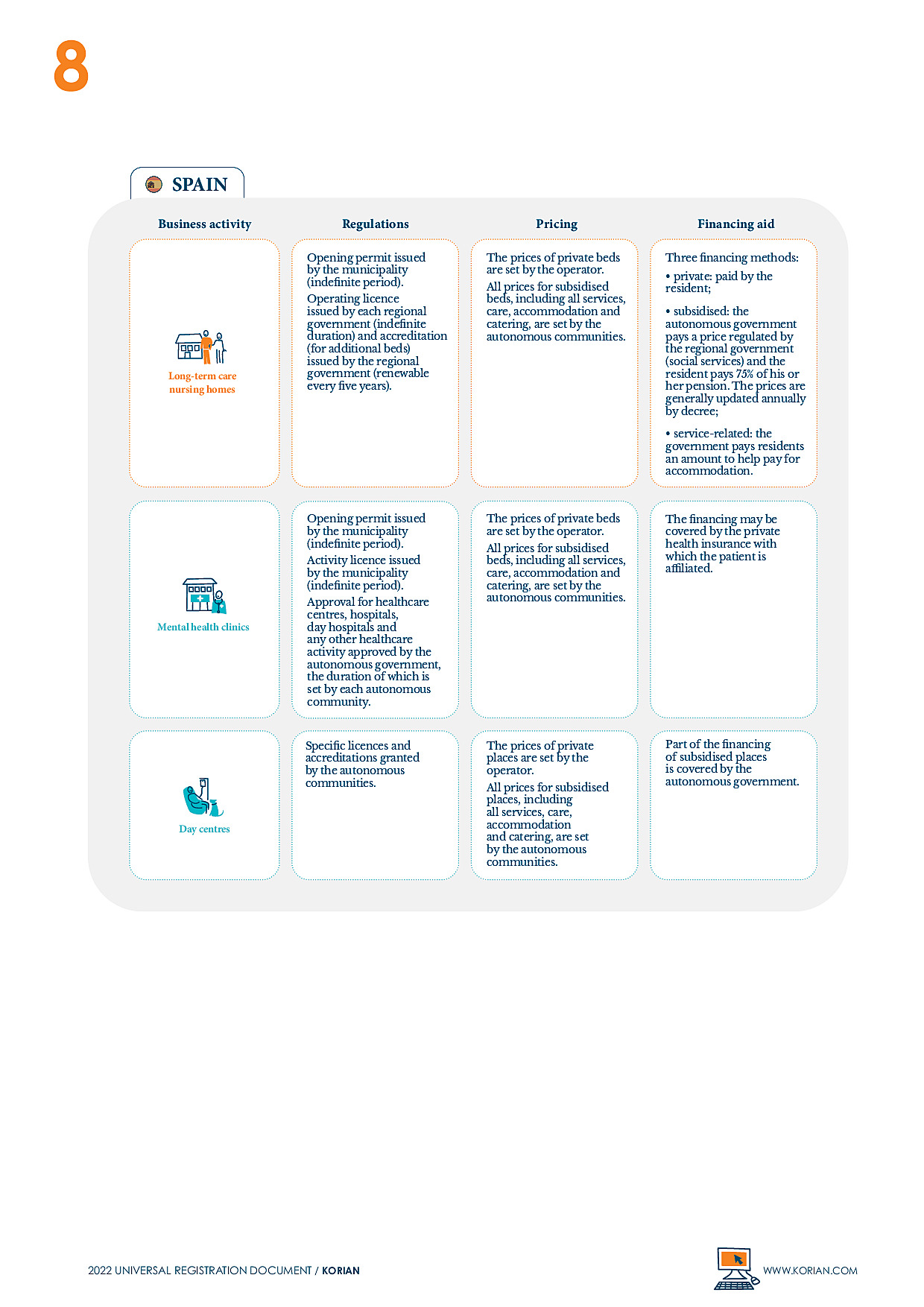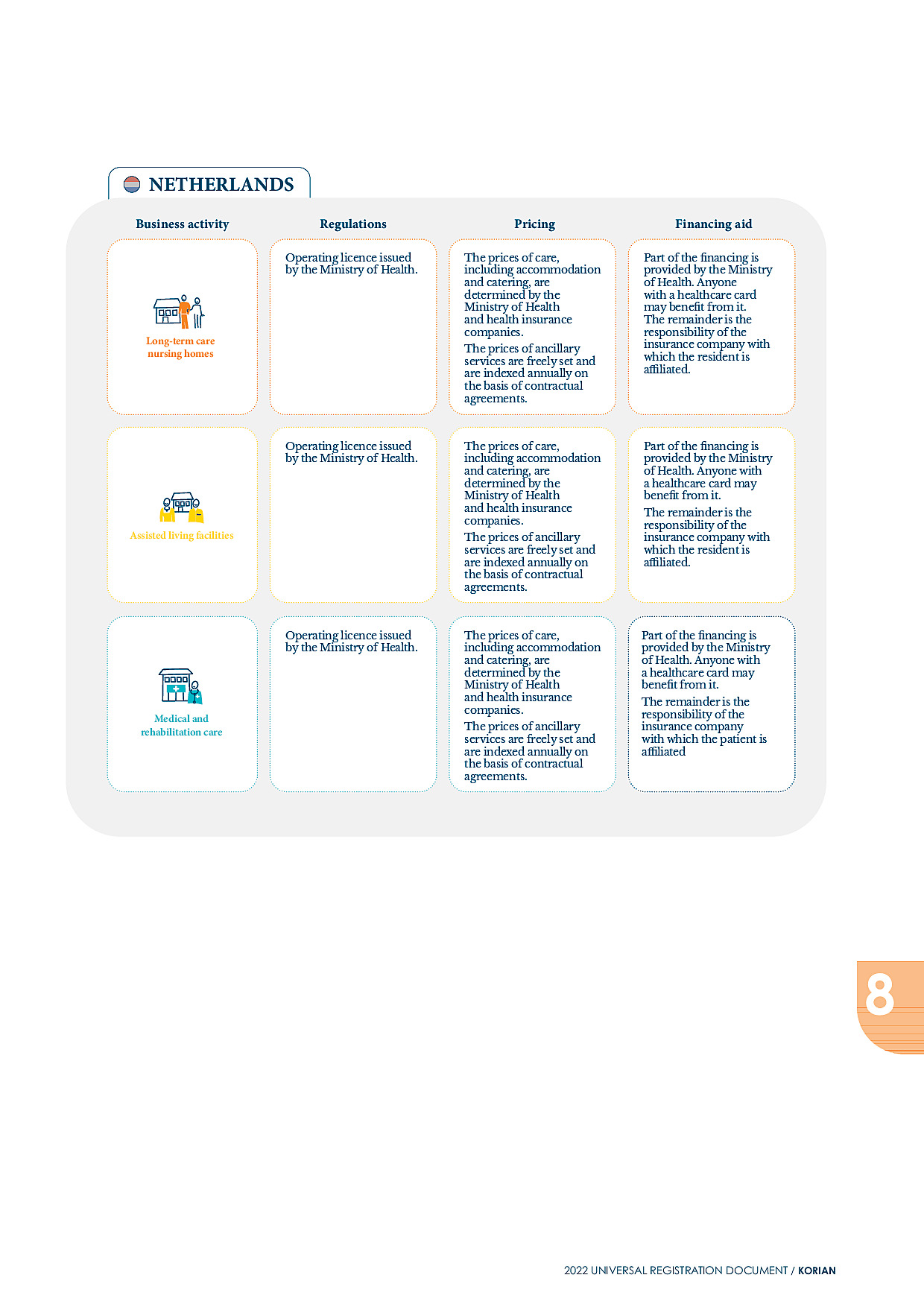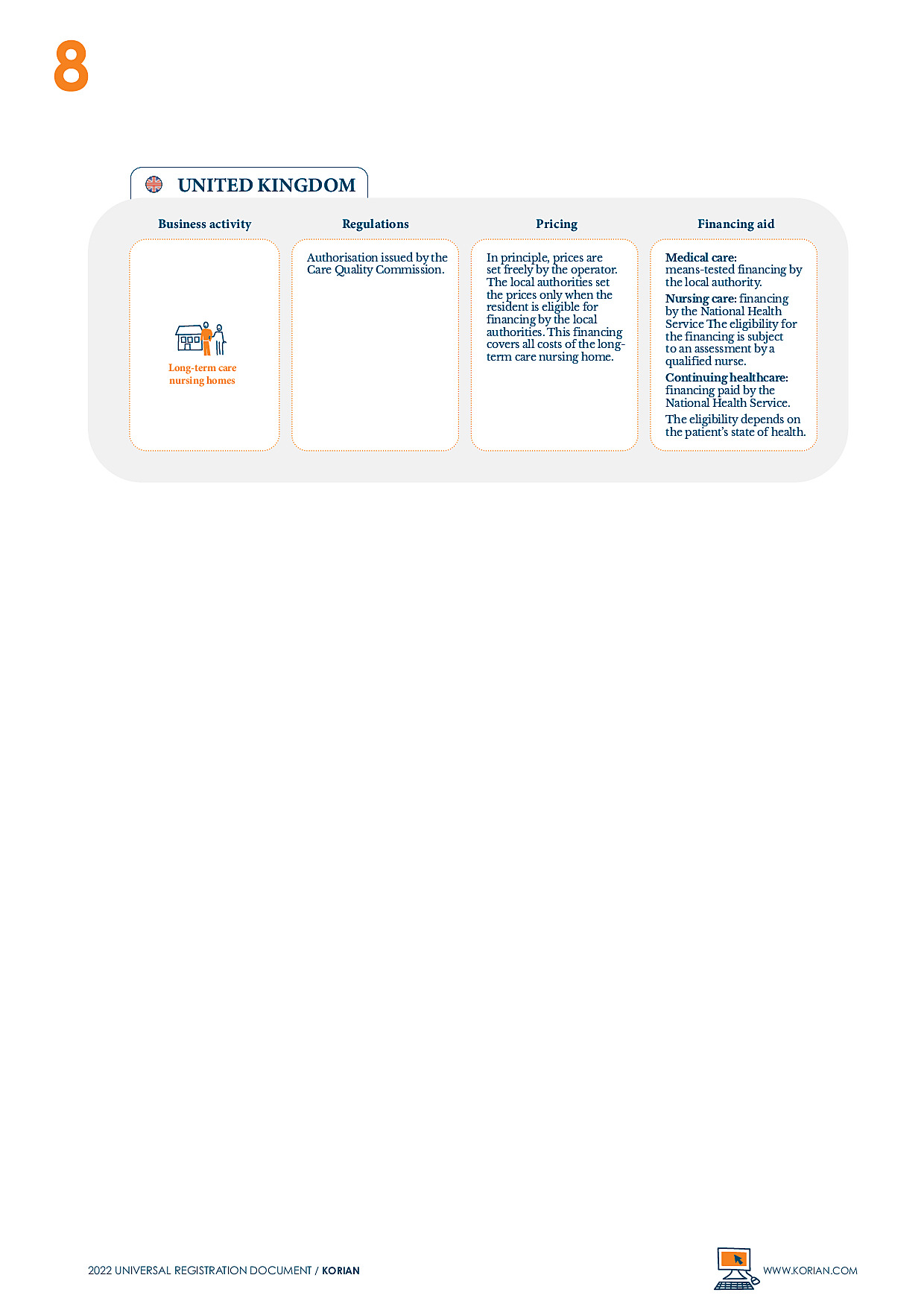URD 2022
-
1. Korian, the leading European care services group for elderly and fragile people
-
2. Risk factors
- ■ensure the quality of operations;
- ■protect the Company’s reputation and the value of its assets;
- ■secure the Company’s decision-making and processes;
- ■ensure that the actions taken are consistent with the Company’s values;
- ■mobilise the Company’s employees around a common vision of the most material risks.
Risk management within the Group is based on a risk monitoring and identification process. The risks are analysed and preventive or corrective measures are implemented to reduce their potential impact.
- ■a bottom-up analysis – to collect operational managers’ point of view and the contributions of each country;
- ■a top-down analysis – driven by General Management and the Group’s functional division heads.
- ■the highest probability of the risk materialising; and
- ■the estimated scale of its maximum potential negative impact (non-financial, in particular operational, and financial).
The risk management framework allows weighting of the gross probability, the gross impact or both criteria, which gives the net criticality of the risk.
A presentation of the risk factors by category is summarised in the table below, with the net criticality of each risk factor indicated according to the three-level scale: low, medium or high. As this Universal Registration Document only presents significant risks, no low-level risks are mentioned.
The risks are classified by decreasing level of criticality within each category (operational risks, strategic risks, legal, ethics and regulatory risks, or economic and financial risks).
The Group implements action plans as part of a continuous improvement process. Furthermore, it has taken out insurance coverage to externalise some of the risks.
The risks presented below are those that the Company considers, as of the date of this Universal Registration Document, to be likely to have a significant impact on the Group or of which stakeholders should be made aware.
Risk category
Risk factor
Criticality of the risk factor
ESG
Operational risks
- ■Pandemic
High

- ■Treatment and care
High

- ■Recruitment and employee retention
High

- ■Reputational damage
High

- ■Information systems, cybersecurity and personal data protection
Medium

- ■People safety
Medium

Strategic risks
- ■Business development and external growth
Medium
- ■Real estate development and construction
Medium

Legal, ethics and regulatory risks
- ■Regulations
High
- ■Global warming and environmental damage
Medium

- ■Business ethics
Medium

Economic and financial risks
- ■Ability to integrate acquisitions and deliver the expected results
Medium
- ■Interest rate risk and liquidity risk
Medium
- ■Cost and inflation management
Medium
In each category, the risk factors are presented in order of importance, starting with the most significant:
- ■presentation of gross risk, as it exists as part of the Company’s business;
- ■presentation of the management systems implemented by the Company.
Other risks may emerge in the future and give rise to a materially adverse impact. The above list of risks is therefore not exhaustive.
-
2.1Operational risks
2.1.1Pandemic ✪
2.1.1.1Description of risk
Despite technological and medical progress, the pandemics linked to Covid-19 and the H1N1 virus have shown humanity's vulnerability to pathogens. New potential threats to health could arise due to the melting of polar ice, the multiplication of crises or another factor not yet known. Infectious diseases could thus spread across the world.
2.1.1.2Risk management framework
In the context of the Covid-19 pandemic, the Group established a vigilance plan that has demonstrated its effectiveness and could be rapidly redeployed in all of its establishments and in all its countries of operation (long-term care nursing homes and healthcare facilities ) in the event of a new pandemic. This European standard is continuously updated to incorporate best practices in terms of hygiene, traceability and prevention measures.
The Group also ensures that its network always has a steady supply of protective equipment (masks, gloves, etc.) by building up a permanent stock corresponding to two months of consumption. Hygiene diagnostic campaigns covering all European facilities were entrusted to Bureau Veritas from 1 July 2020, with the aim of checking the proper application of these standards and assisting the teams in their implementation.
-
2.2Strategic risks
2.2.1Business development and external growth
2.2.1.1Description of risk
The Group implements a development policy to support the strengthening of the Group’s medical activity.
The implementation of this strategy requires the ability to find suitable targets and development opportunities at acceptable costs and conditions, as well as the implementation of appropriate integration processes, in order to guarantee a high level of quality across the networks.
2.2.1.2Risk management framework
At Group level, Korian has a dedicated department whose duties include reviewing partners and strategic opportunities, selecting them, carrying out audits and conducting negotiations.
This department relies on rigorous multi-criteria analysis procedures involving external audits and expert opinions. These audits cover operational, quality, and ethics and financial issues.
These analyses make it possible to identify the risks and take them into account when determining the acquisition price of the target and thus limit the risk of overvaluation. Furthermore, the teams in charge of integration are involved in the acquisition audit process with the aim of preparing a preliminary integration plan, in order to minimise the integration risk. This plan will be completed and validated following the acquisition.
Any proposed investment or divestment exceeding €1 million, including partnerships and acquisitions of equity interests, whether or not it results in control being acquired, is subject to the approval of Korian’s Commitments and Investment Committee.
Furthermore, projects with an enterprise value in excess of €15 million or in a new country or outside the scope of the Group’s pre-existing business lines (determined at the local level) must be approved by the Board of Directors on the recommendation of the Commitments and Investment Committee of the Board.
-
2.3Legal, ethics and regulatory risks
2.3.1Regulations
2.3.1.1Description of risk
The Group’s medico-social and healthcare activities are subject to laws and regulations in all countries where it operates. In most countries the opening of a medico-social or healthcare facility requires authorisations to be granted. Authorisations are generally issued or renewed subject to compliance of the service provision with assessment and quality control procedures conducted by the supervisory authorities in accordance with the applicable laws in each country.
- a portion paid by the residents or patients themselves;
- a portion relating to treatment and care, directly or indirectly subsidised by public funding.
2.3.1.2Risk management framework
In order to ensure the proper application of the rules on the use of financing, Korian provides Facility Directors with access to information systems that provide a framework for the allocation of resources to the appropriate category of expenditure (care, dependency or hospitality). The same applies to expenses related to medical equipment and devices. The reports produced are subject to controls at facility level and then at central level.
The Group conducts regulatory watch in all of the countries where it operates in order to protect itself against any negative repercussions resulting from changes to regulations or pricing rules. This watch enables the Group to anticipate any major changes while ensuring the compliance of its operations. The Group is also an active participant in trade union activities.
-
2.4Economic and financial risks
Korian’s activities are based on a fixed cost structure and its dynamic development requires sustained investment. The Group is therefore exposed to risks related to liquidity, volatility and inflation in financing conditions, as well as its ability to integrate acquisitions in order to deliver the expected results.
The Group has set up various sources of funding that are described in Note 8 to the financial statements.
At 31 December 2022, the Group’s total net indebtedness amounted to €3,775 million (excluding lease commitments), and the average maturity of the Group’s financial borrowing was 4.8 years (excluding short-term debt offset by available cash at closing).
2.4.1Ability to integrate acquisitions and deliver the expected results
2.4.1.1Description of risk
Korian’s ability to rapidly integrate acquisitions is fundamental to pursuing its development strategy.
In 2022, 20 facilities were integrated or were in the process of being integrated. In particular, this involves acquisitions in Italy, including Italian Hospital Group, and in the United Kingdom.
The Group could encounter difficulties or suffer delays in the integration of these assets, impacting the quality of the services provided, the acquisition of control, the expected synergies and its ability to deliver the expected results.
2.4.1.2Risk management framework
The Group has significant experience in the integration of acquisitions. Starting from the phase of identifying potential targets, the assets the Group is considering acquisition of are subject to in-depth analyses carried out by multidisciplinary teams in order to reduce uncertainties and understand the risks that may arise during integration.
As described above, any proposed investment or divestment exceeding €1 million, including partnerships and the acquisition of equity interests, whether or not control is acquired, is subject to the approval of Korian’s Commitments and Investment Committee.
Furthermore, projects with an enterprise value in excess of €15 million or in a new country or outside the scope of the Group’s pre-existing business lines (determined at the local level) must be approved by the Board of Directors upon the recommendation of the Commitments and Investment Committee of the Board.
Every country has a dedicated department whose role is to supervise, support and monitor integrations. These departments are coordinated at Group level. A specific process has been set up in order to:
- ■structure the integration process;
- ■identify and address the risks;
- ■monitor the successful implementation of the business plan;
- ■ensure that the ESG requirements set by the Group are properly met; and
- ■ensure that the Group’s systems and standards are implemented within the desired timeframes.
-
2.5Internal control and risk management
The Group has drafted and implemented an internal control and risk management procedure based on the recommendations set out in the AMF’s reference framework (entitled “Reference Framework on risk management and internal control measures”) (the “Reference Framework”).
The risk management and internal control measures complement the control of the Group’s activities. The risk management framework aims to identify and analyse the most material risks and then address them through appropriate action plans. The controls to be implemented as part of these action plans are part of the internal control procedures. The latter thus contribute to the treatment of the risks to which the Company’s activities are exposed.
The internal control system is applied to the Company and to all companies within its scope of consolidation.
2.5.1Definition and objectives of internal control
Internal control refers to all Group processes that contribute to the rigorous and efficient management of its business activities and the control of its risks.
- ■ensure compliance with laws, regulations and the Group’s values;
- ■ensure accounting and financial information is reliable and accurate;
- ■protect the Group’s assets and reputation;
- ■ensure targets are reached; and
- ■prevent and detect fraud and irregularities.
The internal control system is intended to provide reasonable assurance that these objectives are being achieved.
Internal control is based on a centralised structure with a policy of delegating powers and responsibilities to the Group’s operational and functional departments. In particular, the Group ensures that:
- ■its strategy and operational goals are clearly communicated;
- ■optimal guidance is provided to assist everyone in their work, in particular by sharing Best Practices;
- ■its employees have the skills and resources they need to perform their work. To this end, the Human Resources Department in all countries where the Group operates has assessment, periodic monitoring and training procedures in place;
- ■processes are carefully controlled.
-
3. Environmental, social and corporate governance

A Message from Rémi Boyer, Chief Human Resources Officer
2022 saw consolidation of our CSR progress in a context of continued growth, particularly in the United Kingdom and Spain. It also marked our achievement of most objectives from the ESG roadmap set in 2020 as part of our “In Caring Hands” corporate project.
These results are reflected in the strengthening of our quality-of-care standards. More than two thirds of our sites are now ISO 9001 certified and our “Positive Care” approach has been deployed in 97% of our facilities.
Meanwhile, 12% of our employees, i.e. close to 7,000 people, benefited from a qualifying training programme in 2022, illustrating that our Company is positioned as a proactive learning organisation that makes it possible for everyone to progress within the Group. At 7.3 years, our employees’ average tenure also bears witness to the quality of the Group’s human resources policies and our employer brand. Indeed, we are proud to have earned, the “Top Employer” label for 2022 in four of the Group’s major countries, in France for the second time, in Germany for a third, and in Belgium and Italy for the first time.
We serve 700 catchment areas. Being embedded in the community is therefore essential to ensuring quality relationships with local stakeholders. We are continuously structuring these relationships, both via our Social Life Committees and, at the national level, Stakeholder Councils in five of our seven countries.
The significant energy tensions caused by the Russia‑Ukraine conflict have, of course, prompted us to accelerate efforts to reduce energy consumption and inflect the low‑carbon trajectory defined in 2020. As a result, our carbon intensity ratio, calculated in terms of the Group’s surface area, decreased by 25% in 2022 versus 2019. Our CDP score improved from D to B, recognising the Groupwide progress of our environmental management processes. We therefore confirm the carbon trajectory of -40% emissions intensity established in 2019.
We are entering 2023 with strong momentum from these achievements. This will be a pivotal year for our CSR ambition, as it is both the last year of our 2019‑2023 CSR roadmap and the first year of our transition to the status of a purpose-driven company. To support this change, in 2023, the CSR Department will become part of the Group Brand & Commitment Department. This department was recently created to oversee the new roadmap, which is closely linked to the commitments of our corporate purpose, and has been entrusted to my colleague, Marion Cardon, who will pursue this ambition with energy and determination.

A MESSAGE FROM MARION CARDON, Chief BRAND and engagement Officer
It has now been several years since we first established a CSR strategy and roadmap to address environmental and societal challenges. In becoming a purpose-driven company, we are once again taking a key step, by including our commitment to the common good in our Articles of Association. This formalises, in a sustainable and enforceable way, our duty to consider our stakeholders’ expectations and our societal impact as we design and implement our corporate strategy.
The year 2022 was punctuated by stages in the development of our project. The first involved extensive consultation with our myriad stakeholders: residents, patients and their families, employees and employee representative bodies, representatives from the various local communities where we operate, and investors. In all, we asked more than 1,500 people about their needs and expectations regarding Korian’s purpose, with respect to them directly and more generally for society.
These powerful, complementary and constructive exchanges outlined a clear course of action. This orientation, in turn, enabled us to identify and formulate an identity and purpose, as well as the priority social and environmental objectives through which we want to bring positive value to society.
In 2023, we will continue the process of integrating our purpose and objectives into our Articles of Association, as well as their concrete implementation in the field, with the creation of a standing Mission Committee. Setting up solid and dedicated governance structures will enable everyone to contribute to achieving our purpose and its objectives.
With this transition, we institute that our societal commitments must be central to each of our actions, driven by ambitious CSR objectives that are enabled by the maturity we have acquired on these subjects in recent years and by the daily involvement of all. We are already working to prepare our next CSR roadmap for 2024‑2026. This will be an expression of our ambition and our responsibility, integrating our commitments as a purpose-driven company. The Group’s CSR Department will play a key role in bringing together and mobilising the Group’s employees, who are essential to this transformation.
-
3.1An ESG strategy integral to the corporate project
3.1.1A roadmap focusing on 5 pillars and 15 commitments
The social and societal nature of Korian’s mission means that the Company plays a special role in society. This rests on the heightened sense of responsibility felt by all members of the Company to meet the major challenges of an ageing population in Europe.
A mission closely tied to societal challenges
The Group’s societal role is at the heart of its mission to “Provide care and support to elderly or fragile people and their loved ones, respecting their dignity and contributing to their quality of life” and of its corporate project. It is manifest in each of Korian’s facilities in Europe, which are deeply rooted in their communities, aware and sensitive to the social and environmental realities of their countries. We are proud of our mission of serving the most fragile and elderly among us.
As an extension of these commitments, and in accordance with the mandate given by our shareholders at the General Meeting of 22 June 2022, we have become a European company and have engaged in dialogue with all our stakeholders in order to prepare for transition to the status of a purpose-driven company, which will be submitted to a vote by our shareholders at the General Meeting convened for 15 June 2023.
Values
THE THREE VALUES OF KORIAN'S CULTURE
These values, which are at the heart of Korian's culture, are inseparable: our long-term relationship with our stakeholders is built on a permanent bond of trust, is renewed continuously through a sense of Initiative, and sustained by responsible decisions.
These values can be seen in behaviours and attitudes that drawn on the Group’s DNA and guide everyone’s decisions in carrying out the Group’s mission:
- ■Trust is earned through transparency, benevolence and consideration;
- ■Initiative grows through innovation, commitment and courage;
- ■Responsibility is demonstrated through integrity, the quality of our services and our commitment to long-term sustainability.
Stakeholder dialogue and materiality matrix
Korian’s ESG strategy was designed with consideration for its stakeholders’ expectations to identify priority social, societal and environmental challenges. In 2021, Korian updated its materiality matrix to identify and prioritise the expectations of its stakeholders, as well as the most relevant issues with regard to the Covid-19 pandemic.
In discharging their mission of caring for elderly or fragile people, the Group’s facilities are in close contact with various categories of stakeholders: residents, patients, as well as their relatives and caregivers, employees and their representatives, healthcare professionals, joint authorities and other public and local authorities. At the level of facilities, regions, countries and the Group, Korian is strengthening and structuring its model of stakeholder dialogue.
As a result, Stakeholder Councils are now in place in five of the Group’s seven countries (France, Germany, Belgium, the Netherlands and Italy). The Group has also supported the creation of independent foundations in France, Germany and Spain, whose governance bodies include representatives of the main stakeholders.
Stakeholders
Definition and scope
Dialogue channels
Fragile people, relatives and caregivers
Residents, patients, beneficiaries of services – in particular elderly or fragile people – as well as their families, relatives and caregivers.
- ■Social Life Committee/Users Commission
- ■Family relations
- ■Satisfaction surveys
- ■Digital applications
- ■Customer services
- ■Website and social networks
Employees, vocational trainees and their representatives
Employees, interns, apprentices and any person in training, as well as employee representatives and trade unions.
- ■Korian Start onboarding process, Training, Annual interviews
- ■Kommunity satisfaction surveys
- ■Internal communication: Intranet, newsletter
- ■Help line, whistleblowing system
- ■Social dialogue with social partners
Supervisory authorities, national and local authorities
National, regional and local authorities linked to the Group’s activities, elected officials and their representatives: for example, the Ministry of Solidarity and Health, French regional health agencies, and Departmental Councils in France.
- ■Social Life Committees
- ■Participation in various local consultation bodies dedicated to the economic and social development of the regions: Union Nationale des Missions Locales partnership, local employment and integration, etc.
- ■Partnership in France with the Union Nationale des Missions Locales
Regulators
Regulators of the health and medico-social sector: for example Haute autorité de santé, French regional health agencies.
Civil society, foundations, associations and NGOs
Foundations supported by the Group, civil society players – particularly professional associations, non-profit organisations, non-governmental organisations (NGOs) and volunteers working with the Group at a national, regional or local level.
- ■Foundations supported by the Group: scientific studies, platforms, etc.
- ■Themed conferences
- ■Press relations: press releases, breakfast, visits to facilities, etc.
Research, innovation and vocational training organisations
State-of-the-art university or hospital medical research facilities and innovation centres dedicated to health and longevity issues, as well as training facilities that deliver accredited degrees, qualifications or continuous education. For example, Fondation pour la Recherche Médicale (FRM), Institut Pasteur, the Toulouse Gérontopôle (geriatrics centre), etc.
- ■Partnerships
- ■Scientific studies
- ■Participation in conferences, seminars
Healthcare professionals and their representative bodies
Community of internal and external healthcare professionals who interact with the Group, patients, residents, recipients of services, as well as relatives; doctors and specialists, caregivers, nurses, psychologists, physiotherapists, dieticians, psychomotor specialists and pharmacy professionals, etc., along with their representative bodies.
- ■Social Life Committees
- ■Stakeholder Councils
- ■Facility Medical Commissions for the healthcare facilities
Business partners
Partner companies, suppliers and subcontractors, particularly in the agri-food, healthcare goods and equipment, design and construction, energy, water and waste sectors, etc.
- ■Responsible Purchasing Charter for suppliers
- ■Supplier agreements and trade fairs
- ■Professional organisations (Top AFEP)
Investors and other financial partners
Shareholders and holders of other equity or debt securities and instruments issued or guaranteed by the Group or any of its subsidiaries, banks and other financial institutions, as well as financial analysts, credit or non-financial rating agencies.
- ■Shareholders' General Meeting
- ■Investor days, conferences and meetings with investors and financial analysts, non-financial rating agencies
- ■Presentations, annual and half-year financial reports, press releases, Universal Registration Documents, etc.
Methodology
This materiality exercise was updated in 2021 based on feedback collected from all stakeholders across the Group's network in Europe, after the first wave of the Covid-19 pandemic.
Numerous discussion groups were organised in each of the Group’s countries. Nearly 2,000 people took part in these, including patients, residents, their relatives and families, Korian teams, trade union representatives, etc. As a second step, Korian analysed and classified this information, then supplemented it with the perceptions of investors and the media. Qualitative interviews were then conducted with the Group’s key managers, namely the Chairman of the Board of Directors, the Chief Executive Officer, the members of the Group Management Board (including the country Directors) and the main functional departments of the Group.
This process helped to refine the mapping of Group stakeholders and identify priority objectives according to their ESG impact, as related to:
A weighted assessment of priority issues was then carried out, mapped to both stakeholders' perceptions and Korian's.
This materiality matrix synthesises the five pillars of the Group's ESG strategy and the non-financial risk analysis (see below) to identify the areas Korian should prioritise in light of the expectations of its internal and external stakeholders.
Materiality matrix
This approach is an integral component of the business model presented in Chapter 1 of this Universal Registration Document.
In 2022, as part of the preparation for its transition to the status of a purpose-driven company, Korian also launched a consultation with its stakeholders to gather their opinions and expectations concerning the Company’s mission and main avenues for progress in achieving it (see details in Section 3.1.2).
ESG challenges
THE 5 PILLARS OF KORIAN'S ESG STRATEGY
OUR 18 MATERIAL ESG CHALLENGES
1
Provide care excellence whilst ensuring dignity and choice
- ■Quality of life and human dignity
- ■Family, relatives and stakeholder engagement
- ■People safety and quality of care
- ■Infectious diseases and pandemic
- ■Ethical culture
2
Be the employer of choice
- ■Employee well-being, health and safety at work
- ■Social dialogue
- ■Diversity and inclusion
- ■Training, talent development and retention
3
Contribute to finding innovative solutions for a more inclusive society
- ■Digital transformation
- ■Personalised care and services
- ■Research and innovation
4
Be a committed and responsible local partner
- ■Community relations and economic impact
- ■Regulatory and health authority relations
- ■Corruption and fraud
- ■Personal data protection and cybersecurity
5
Reduce our environmental footprint
- ■Climate change and biodiversity
- ■Environmental footprint
An ESG strategy focusing on five pillars, aligned with the Sustainable Development Goals (SDGs) and consistent with the corporate project
Korian’s ESG strategy aims to improve the Group’s social and environmental impact by operating in accordance with its values and taking into account the expectations of its internal and external stakeholders.
The strategy is broken down into five strategic and operational pillars, stemming from our corporate project. This strategy is implemented operationally through action plans, investments and objectives at Group, country and facility levels.
A roadmap focusing on 15 quantifiable and measurable ESG commitments
The Group has established a roadmap focusing on 5 pillars and 15 quantified ESG commitments, which meet and are based on the main international non-financial reporting standards (such as those of the Sustainability Accounting Standards Board (SASB), the Global Reporting Initiative (GRI) and the UN Sustainable Development Goals (SDGs)). These indicators are used to measure the progress of ESG performance. The Group’s CSR Department monitors this matter in conjunction with the countries and functional departments. Indicators are subject to reporting during monthly business reviews.
They are presented to the financial community alongside the publication of annual results, at conferences and in individual meetings with investors, and notably SRI investors.(1)
A correspondence table cross-referencing the SASB Healthcare Delivery industry standard is provided at the end of Chapter 3.
ESG commitments incorporated into annual and medium-term objectives
The ESG commitments are incorporated into the annual targets of each business line, distributed throughout the management chain, and assimilated in the long-term performance action plans for Top Management.(2)
ACHIEVEMENT OF THE ANNUAL OBJECTIVES FOR 2022
- ■The Net Promoter Score (NPS), measured through customer satisfaction surveys;
- ■A composite HR indicator: stabilisation of average tenure reduction in the frequency rate of work accidents with stoppage and 10% of the workforce enrolled in a qualifying training programme;
- ■Reduction in carbon emissions per sq. metre due to buildings' energy consumption versus 2019.
Annual objectives for 2023
In 2023, the non-financial criteria will be strengthened with an increased weighting in variable compensation. Five criteria are included in the objectives of Top Management:
- Continuous improvement of the Net Promoter Score (NPS), demonstrating Korian’s quality of service;
- Improvement in workplace quality-of-life, as measured by a “composite” HR indicator;
- The increase in the number of ISO 9001-certified facilities, in line with the 2023 roadmap, which aims for 100% ISO 9001-certified facilities by the end of 2023;
- The reduction in the energy consumption of our facilities, new objective in 2023;
- The quality of care, as measured by a composite indicator (for managers), new objective in 2023.
In 2022, the weight of the ESG indicators in the long-term variable compensation awarded to the Chief Executive Officer and Top Management was increased to 50% of the performance conditions. Furthermore, an additional indicator has been added for 2023.
The 2023 performance share plan includes the following three criteria: the reduction of carbon emissions, the percentage of women members of country management committees and within Top Management, and a composite indicator on the quality of care.
ESG RESULTS IN 2022 OF THE ESG ROADMAP FOR 2019-2023
Financing aligned with 3 of the 15 main ESG commitments
Korian’s ESG priorities are fully integrated in the Company’s financial strategy. A committee comprising representatives of the Finance and CSR departments meets monthly to measure the progress made in this area.
In June 2020, Korian became the first company in the sector to carry out a private bond placement (Sustainability Linked Euro PP) of €173 million, based entirely on non-financial performance criteria and with a maturity of eight years. An additional issue (tap) of €57 million was completed on 6 October 2020, bringing the total amount of the bond series to €230 million.
As a new milestone in the roll-out of the Group’s ESG strategy, this private offering was structured around 3 of the 15 main ESG commitments for 2023. This has strengthened investor confidence in the Group’s ambition and its non-financial objectives:
- ■as regards quality: achieve ISO 9001 certification for all facilities;
- ■as regards employees: double the proportion of staff members participating in qualifying training programmes to reach 8%;
- ■as regards society: reduce direct and indirect CO2 emissions.
Depending on the extent to which each of these targets are met, the interest rate on the bonds may be increased or reduced by up to 20 basis points. If the interest rate increases, half of the increase will be allocated to internal compensatory measures and/or paid to one or more external partners (such as associations or NGOs), the other half being paid to investors.
An independent body, tasked with reviewing the non-financial performance statement, verifies the achievement of the above commitments every year.
“Sustainability Linked Euro PP” private placement
KPIs
Objectives for 2022
Results and notes
Achievement
ISO 9001 certifications
50% of facilities ISO certified (based on a scope of 836 facilities in a position to obtain certification as at 31 December 2019).
At the end of 2022, the Group had an ISO 9001 certification rate of 67.7% of the European network considered for financing purposes, compared to 29% in 2021, 11% in 2020 and 8% in 2019.
The number of facilities in a position to be certified at 31 December 2019, i.e. 836 establishments, has been restated for the 55 establishments sold or closed in 2021 and 2022.
✔
Employees enrolled in qualifying training programmes
Have at least 7% of the employees enrolled in qualifying training programmes during the year, with a minimum of 5,250 people.
In 2022, 6,808 people, or 11.8% of the workforce, were enrolled in a qualifying training programme.
✔
Reduction of CO2 emissions
Pursuant to the notice sent to investors by Euroclear on 24 December 2021, the target for 2022 is to achieve a 2.3% reduction in CO2 emissions compared to the 2019 emissions, which amounted to 41 kgCO2/m2.
At the end of 2022, the Group posted a level of CO2 emissions of 30.7 kgCO2/m2, representing a 25% reduction in CO2 emissions compared to the 2019 emission levels.
✔
- ■a non-convertible green hybrid bond in the amount of £230 million, the purpose of which is to finance the modernisation, acquisition or development of real estate assets, mainly in the United Kingdom. The report on this financing was published on 15 June 2022 on the Korian website on the Sustainable Finance page (https://www.korian.com/en/sustainable-finance), accompanied by the certificate of partial allocation of funds provided by our auditors;
- ■a social bond in the amount of €300 million, based on social criteria, the proceeds of which will be used to finance the growing need for care in Europe, in medico-social and healthcare facilities, as well as in co-living residences or home care services provided by Petits-Fils. The report on this financing was published on 14 October 2022 on the Korian website on the Sustainable Finance page (https://www.korian.com/en/sustainable-finance), accompanied by the certificate of total allocation of funds provided by our auditors.
-
3.2Provide care excellence whilst ensuring dignity and choice for all
The quality of care and services is at the heart of our “In Caring Hands” corporate project, which emphasises respect for people, their dignity and their wishes within our facilities.
3.2.1Improving the autonomy of residents with the Positive Care approach
Korian has developed a dedicated therapeutic approach for its residents, in particular those suffering from dementia (neurodegenerative diseases). This approach focuses on the development and maintenance of autonomy, while taking into account the resident’s expectations and desires. This approach differs from care mainly based on drug treatment, which is not adapted to this type of pathology.
Positive Care, developed by the Group, is based on non-drug therapies, which aim to maintain and stimulate the residents’ physical, motor and cognitive capacities, according to their state of health. By preserving residents’ capacities, Positive Care aims to optimise their quality of life and well-being, by enabling them to express their wishes and make their own choices.
In practical terms, each resident undergoes a clinical assessment during his or her first 90 days, in order to determine his or her capacities and needs. At the end of this assessment, an individualised non-drug therapy plan is established, which takes into account the resident’s interests and life history and specifies the cognitive, functional and behavioural exercises adapted to the maintenance of his or her capacities.
This individualised therapeutic strategy is based on experience and clinical evidence. By training the brain one can compensate for some of the lost capacity related to ageing. Positive Care relies on and encourages natural brain plasticity to prevent and treat fragility and psycho-behavioural disorders related to brain ageing.
- ■research by Prof Gerald Maurice Edelman, an American biologist and the 1972 Nobel Prize winner in Medicine, who demonstrated the fundamental role of residual brain plasticity in adaptive behaviour;
- ■research by Prof Matthew D Lieberman, Professor of Neuroscience and Director of Social Cognitive Neuroscience at the University of California, Los Angeles (UCLA), whose approach encourages social distractions to induce engagement and learning, and to capitalise on untapped neurocognitive resources.
Since 2015, Korian’s Medical, Ethics and Quality-of-Service Department has formalised the Positive Care approach in order to define and translate it operationally. This work has enabled:
- ■the design of non-drug therapies together with their integration, exclusion and assessment criteria on the one hand, and the associated protocols (therapeutic sequences and frequency) on the other;
- ■the consolidation of available therapies in the form of a tree diagram;
- ■assessment of the contribution of each business line to this therapeutic project led by multidisciplinary teams.
The European Positive Care Committee, which brings together the healthcare teams of the countries where the Group operates, has also set out the operational tools required to deploy the Positive Care approach and to support the teams in its implementation, across the Group’s European network, namely:
- ■a set of non-drug therapies tailored to national preferences and skills and by selecting only therapies that have been the subject of scientific publications;
- ■a set of training courses related to these therapies to enable both the appropriation of the therapeutic objectives and proper use of the tools made available;
- ■a basic methodology that promotes the resident-centred approach and the understanding of the challenges of the pathology (Hoffman method, Montessori method, Böhm method, etc.).
Deployment is monitored at Group level, in conjunction with the Positive Care Officers in each country.
This implementation is an integral part of the Group’s ESG strategy and objectives, with the aim of deploying Positive Care in all long-term care nursing homes by the end of 2023.
At the end of 2022, Positive Care non-drug therapy equipment, and the associated training courses, had been rolled out in 97% of the Group’s specialised nursing homes.(3)
The Group’s Positive Care approach – initially focused on non-drug therapies – is being redefined more broadly to include the living conditions, the layout of spaces, the organisation of facilities and the training of teams, in order to individualise the care of residents as much as possible, and more particularly of those suffering from dementia, in accordance with their desires and their needs. This re-definition also aims to extend the Positive Care approach to all of the Group’s activities.
-
3.3Be the employer of choice
3.3.1The Korian human resources policy
Korian’s human resources policy, based on the Company’s values – trust, initiative and responsibility – is at the heart of the corporate project “In Caring Hands”, dedicated to the service sector for elderly or fragile people and those with loss of autonomy for whom the quality of care and support provided is essential.
The growth of Korian’s activities requires the ability to attract and develop a wide variety of talent across different professions, in particular caregivers, nurses, doctors, cooks, as well as job roles related to the personal services activities Korian offers (home caregivers for elderly people, care providers, reception staff, etc.).
However, despite the increasing jobs created in the sector, the number of long-term care nursing home workers in relation to the number of people over the age of 65 has stagnated in recent years and the number of people enrolled in caregiver training has remained flat. All the countries where the Group operates are facing a shortage of healthcare workers, exacerbated by the Covid-19 pandemic. According to the Organisation for Economic Co-operation and Development (OECD) and various other European statistical sources, the shortage of caregivers is estimated to reach hundreds of thousands of caregivers per year by 2030.
Developing the attractiveness and appreciation of professions related to elderly and fragile people is, therefore, an essential priority for Korian, to ensure it is able to guarantee excellence and continuity of care for residents and patients.
- ■the implementation of an ambitious social foundation for candidates and employees who hold or will occupy these roles, in terms of working conditions, health at work or quality of life at work, and also opportunities for training, to develop their skills and move towards more qualified and better paid positions.
- This social foundation is made possible and supported by a high-quality managerial culture that safeguards the Group’s values and is based on a managerial model driven by our Facility Directors and their teams, the cornerstones of the network;
- ■anticipating the recruitment and skills development needs for our activities. This requires social innovations to secure and expand our external and internal talent base;
- ■an organisation that allows everyone to have a real capacity for action with residents and patients, but also with communities and local stakeholders, in order to support business growth in all the regions where the Group operates.
To meet these various challenges in a context of strong growth, scarcity and volatility of resources, Korian’s Human Resources policy is organised around three priority strategic areas:
-
3.4Contribute to finding innovative solutions for a more inclusive society
3.4.1 Foundations associated with the Korian Group
- ■the Korian Foundation, a corporate foundation created in France in September 2017;
- ■the Korian Foundation for Care and Ageing Well, created in Germany in early 2020.
- ■support and participate in scientific research programmes to advance scientific knowledge and also to tangibly improve the support of residents and patients, the quality of care and the working conditions of caregivers;
- ■conduct societal studies to change views on ageing and contribute to thinking about and inventing a longevity society. This means changing our perspective on ageing and promoting and supporting care occupations and those that support the most fragile, including by inspiring new vocations;
- ■support solidarity actions to combat the isolation of elderly people, promote the professional integration of young people from disadvantaged neighbourhoods, improve access to legal rights and care for caregivers and women in difficulty. The Boards of Directors of the foundations are composed of figures who are internal and external to Korian, divided into three colleges: representatives from the Group, Group employees and representatives of the foundations’ Scientific Boards.
In addition, the foundations benefit from the input and leadership of the members of their Scientific Boards: researchers and academics, practitioners, caregivers, designers, association managers, etc.
The foundations also surround themselves with partners who are both recognised in the field of clinical research and in human and social sciences, along with industrialists and actors from the social and solidarity economy, to galvanise genuine scientific cooperation.
To these two foundations is added the FITA foundation created in 2002 by Ita Salud Mental, a mental health specialist in Spain acquired by the Korian group in 2021.
Taking a research, action and training approach, the professionals of the Korian facilities (medical, paramedical and caregivers) are involved in the development and implementation of scientific protocols in order to ensure their relevance and their feasibility in terms of expertise and needs.
The research also involves residents and patients of Korian facilities (long-term care nursing homes and healthcare facilities) who volunteer to participate.
3.4.1.1The Korian Foundation in France
Created in 2017 for a first five-year cycle, the French Foundation of the Korian group had set itself the objective of contributing to the reflection on Ageing Well, by conducting a series of studies with the IPSOS institute on how people view ageing, by supporting initiatives to promote the social inclusion of elderly people and to promote oral archives, and more broadly by encouraging various applied medical research projects aimed at improving the physical and psychological support provided to elderly people and their families and caregivers, at home and in medico-social or healthcare facilities.
In five years, 15 research projects have been completed, resulting in 30 publications; three prizes have been awarded to associations particularly involved in these themes, while 29 platforms and 21 morning sessions have been organised in Paris and 16 cities in the regions, bringing together a total of nearly 5,200 representatives of associations and professionals in the field of ageing for face-to-face discussions.
In 2022, the Foundation continued its actions to transmit and promote the voice of elderly people through two emblematic projects:
“Territoires et mémoires de vie” (Territories and Memories of Life) – Part 2: One of the missions of the Korian Foundation for Ageing Well is to give a voice to elderly people and carry their voices, their life stories, sharing and promoting their experiences. In this book entitled “Territoires et mémoires de vie”, the Korian Foundation gives the floor to residents who live in nursing homes. For the past two years, the Foundation has been studying local communities and the impact that living spaces can have on our history. After Marseille, the biographer Régine Zohar turned to Bordeaux, collecting the life stories of residents at the Villa Gabriel, Villa Louisa, Villa Bontemps and Clos Serena long-term care nursing homes.
Season 4 of the “La Voix des Aînés” podcast, entitled “Ecology once upon a time”: As the climate and environmental emergency forces us to rethink our lifestyles and consumption, the Foundation wished to let elderly people speak about this topic and share their memories of a time when people were inventive and thrifty out of necessity.
In addition to the projects carried out in favour of Ageing Well, the Foundation supports solidarity actions for four target audiences:
- ■isolated elderly people;
- ■caregivers;
- ■women in difficulty;
- ■young people in priority education areas.
In 2021, the Foundation, together with Fondation Agir Contre l’Exclusion (FACE), launched solidarity workshops to improve employees’ access to rights in healthcare and medico-social facilities. Designed with the support of Korian’s social services and organised by the Korian Foundation, they are led by FACE clubs and structures in the regions. In 2021 and 2022, 47 Group healthcare facilities and long-term care nursing homes and 900 participants benefited from these workshops.
The partnership with the Alliance for Education, aimed at introducing middle-school and high-school students in priority education areas to the elderly care professions, also continued, through the participation of Group employees in five job forums and the hosting of 15 interns under the programme.
The Foundation supports the mobile campaign of the Bus du Coeur, which is led by the Agir Pour le Cœur des Femmes Foundation, which aims to inform, raise awareness and prevent cardiovascular diseases in women. In 2022, the Bus du Cœur campaign enabled 5,000 women to be screened in 14 cities in France.
As part of the Group’s support for the fight against violence against women, the Foundation has a partnership with the Maison des Femmes in Saint-Denis, enabling victims (Korian employees or not) to access social, medical and legal support. The Foundation provides funds for two night nurses.
At the end of this first five-year cycle, the Foundation decided to devote its new cycle of work starting in 2023 to the theme: “Loving to care”. It intends to dedicate its actions to caregivers, care professions and healthcare organisations. The Korian Foundation has identified three key areas for reflection:
- ■the physical and moral health of caregivers: prevention and support, fight against burnout, social inclusion and work-life balance, etc.;
- ■the attractiveness of the care professions: professional recognition, social representation of caregivers, diversity of professions and profiles, new generations and new expectations, etc.;
- ■the meaning of the job: organisational ethics, new forms of management, teamwork and time management, etc.
3.4.1.2Korian Foundation for Care and Ageing Well in Germany
The well-being of caregivers and more generally of people active in the care sector is a key focus of the Korian Foundation’s actions in Germany. In 2022, stress reduction was at the heart of the Foundation’s work through the distribution of healthy recipes that take into account the pace of work in facilities and aromatherapy training. The Foundation has also published a guide for professionals in the care sector on the topic of end-of-life support, death and bereavement. It aims to offer them tools to support the people concerned and their families and support them in managing the emotional burden associated with this mission.
In December 2022, the German Foundation, in partnership with Korian Germany, the University of Bremen and the Fraunhofer IIS research institute, also launched the “Care 2030” (Pflege 2030) project. The Korian Haus Curanum facility in Karlsfeld was selected to pilot this three-year project, supported by a €3.1 million grant from the Bavarian Ministry of Health and Care, which aims to project itself into the near future of the healthcare sector. The contributions of new technologies and innovative planning methods to the quality of care and working conditions will be studied through their experimentation at the Karlsfeld site.
3.4.1.3The FITA foundation for mental health in Spain
In Spain, Ita Salud Mental, a mental health specialist acquired by the Korian group in 2021, created the FITA foundation in 2002. Its mission is to contribute to the prevention, awareness and understanding of mental health problems. More specifically, its programmes aim to:
- ■promote emotional well-being;
- ■facilitate the early detection of mental disorders;
- ■contribute to the reduction of their stigma;
- ■support and guide affected people and their families in accessing treatment.
- ■care and rehabilitation programmes dedicated to supporting people suffering from or having suffered from mental disorders and helping them towards autonomy and social inclusion. The Foundation’s objective is to be able to meet the diversity of needs through these programmes: accommodation in transitional housing, psychological support, support in day-to-day management, academic guidance, professional integration, financing assistance for treatment. In 2021, 179 people were supported through these programmes, mostly at the end of or after treatment, and 89 relatives and/or education and social action professionals were advised by the Foundation’s teams;
- ■prevention and training programmes: workshops for the general public, continuing training for education and social action professionals. In 2021, 1,300 people took part in prevention workshops and 320 professionals were trained;
- ■awareness-raising actions based on the testimonials of people who have experienced mental health problems, through interventions in schools or the publication of novels written based on these testimonials.
-
3.5Be a committed and responsible local partner
3.5.1Contribution to regional economic and social development
Korian plays an active role in the economic and social development of the communities in which it operates. The Group has more than 1,200 facilities located as close as possible to local communities and employment areas, often close to priority urban areas, but also in rural areas and in “medical deserts”.
A new facility boosts the local economy. For example, in France, a long-term care nursing home or a specialised clinic with around 100 residents and patients represent respectively between 60 and 120 direct jobs that cannot be relocated. In addition to creating stable jobs that cannot be relocated, the opening of a facility contributes to the local economy, both through the building’s maintenance and the purchase of goods and services necessary for its operations.

Petits-fils, the specialist in home care services for elderly people, ranked number 36 on the list of companies that are hiring the most in France (2022 ranking published by Le Figaro).
Ages & Vie shared housing also contributes to regional integration in rural areas. These homes are inclusive solutions located in the heart of small towns and neighbourhoods, near healthcare centres, local shops, schools and associations. Elderly people thus remain in their home environment. Welcoming to relatives and friends, they facilitate exchanges with residents' families. The homes are connected to their communities and welcome multiple generations under one roof (in some facilities, caregivers live with their families in staff accommodation on the first floor). They thus offer an intergenerational environment to elderly residents. From the start, the Ages & Vie concept was designed and developed in partnership with municipalities. It closely matches the needs of mayors looking for an innovative solution that creates jobs, in line with the expectations of their constituents.
By their very nature, our services aim to be local services with a strong commitment to an economy of social inclusion and solidarity.
Creation of the Companies and the Common Good Chair
In order to explore and qualify the mechanisms and actions through which the Company contributes to the common good and to generating economic and societal value in the regions where it operates, the Korian group created the ICP-ESSEC Companies and the Common Good Chair in 2021 in partnership with ICP, ESSEC and six other partner companies (Saint-Gobain, Bayard, Grant Thornton France, Meridiam, Eurazeo and Kea & Partners). The aim of the Chair is to develop multidisciplinary research around the notion of the common good applied to companies. In particular, it has created a “Company and Common Good” university diploma as an initial degree and continuing education, in which two Korian group employees participate every year. In 2022, the Chair began a research programme on the contribution of companies to the common good through their local presence, which runs until 2024. The research areas are as follows: studying the conditions for a successful regional anchoring policy and measuring the impact of companies at the level of local communities.
-
3.6Reduce our environmental footprint
3.6.1European Taxonomy
Regulation (EU) 2020/852, known as the European Taxonomy Regulation, is a key element of the European Commission’s action plan to redirect capital flows towards a more sustainable economy. To this end, the European Taxonomy sets a classification system for environmentally sustainable economic activities.
As a non-financial company, below Korian presents the share of the Group’s revenue, capital expenditures (CapEx) and operating expenses (OpEx) for the 2022 financial year which are associated with taxonomy eligible activities under the first two environmental objectives (mitigation of climate change and adaptation to climate change), in accordance with Article 8 of the Taxonomy Regulation and Article 10 (2) of the Delegated Act supplementing Article 8. The analysis covers all Group entities (scope of fully consolidated entities).
Analysis of the Group’s activities with regard to the European Taxonomy Regulation
The Korian group has identified among its various activities (see Section 1.1 of the Universal Registration Document for the presentation of the Group’s activities) those covered by the European Taxonomy Regulation with regard to the two climate objectives:
Target
Activity listed in Annex II of Delegated Regulation (EU) 2021/2139
Description of Korian’s activities
Eligibility
Revenue
CapEx
OpEx
1 - Mitigation of climate change
7.1 Construction of new buildings
Sales of furnished apartments for non-professional leasing
(Ages & Vie)Eligible
Eligible
Eligible
7.7 Acquisition and ownership of buildings
Residential solutions (assisted living facilities and shared housing for elderly people)
Eligible (rent only)
Eligible
Eligible
2 - Adaptation to climate change
12.1 Residential care activities
Long-term care nursing homes
Ineligible
Eligible
Eligible
Post-acute and rehabilitation care clinics and mental health clinics (excluding outpatient solutions)
Ineligible
Eligible
Eligible
The Group’s long-term care nursing home activities are part of Objective 2, adaptation to climate change, Section 12.1 “Residential care activities”. Due to the similarity of the services (extended accommodation and medical care) of post-acute and rehabilitation care clinics and mental health clinics (excluding outpatient solutions), the latter are also considered to be relevant to Section 12.1.
Methodology and calculation
a)Share of revenue associated with taxonomy eligible activities
The share of revenue associated with activities eligible for the European Taxonomy was determined based on the segmentation of revenue by activity in the Group’s information systems and reconciled to the line “Revenue and other income” of the consolidated financial statements as at 31 December 2022 (see Chapter 6, Section 6.1 of this document).
Pursuant to Delegated Regulation 2021/4987 published by the European Commission on 6 July 2021 (Appendix I 1.1.1), the revenue from long-term care nursing home and healthcare facility activities meeting Objective 2 “Adaptation to climate change” was excluded due to the non-qualifying nature of the activity.
Only revenue corresponding to rents received from residential solutions (Activity 7.7 “Acquisition and ownership of buildings”) and sales of furnished apartments for non-professional leasing (Activity 7.1 “Construction of new buildings”) is considered eligible.
This resulted in a percentage of Group eligible revenue of 1% for the 2022 financial year. This percentage stems directly from the classification of the Group’s activities as established by the current texts, which do not consider the medico-social housing business, Korian’s main activity, as qualifying under adaptation criteria. This figure does not in any way reflect the Group’s commitment to reducing its carbon emissions. However, these activities are included in the basis for calculating the eligibility ratios for CapEx.
Given the insignificant amount of eligible revenue related to Activity 7.1 “Construction of new buildings” and 7.7 “Acquisition and ownership of buildings”, the Group has not carried out any alignment analysis concerning the revenue generated by these activities.
Substantial contribution criteria
No significant harm criterion
Economic activities
Code(s)
Absolute revenue
Share of revenue
Mitigation of climate change
Adaptation to climate change
Aquatic and marine resources
Circular economy
Pollution
Biodiversity and ecosystems
Mitigation of climate change
Adaptation to climate change
Aquatic and marine resources
Circular economy
Pollution
Biodiversity and ecosystems
Minimum guarantees
Share of
revenue aligned with the taxonomy, year NShare of
revenue aligned with the taxonomy,
year N-1Category (enabling activity)
Category (transitional activity)
€m
%
%
%
%
%
%
%
YES / NO
YES / NO
YES / NO
YES / NO
YES / NO
YES / NO
YES / NO
%
%
M
T
A. Activities eligible for the taxonomy
A.1 Environmentally sustainable activities
(aligned with the taxonomy)Construction of new buildings
7.1
-
-
-
Acquisition and ownership of buildings
7.7
-
-
-
Revenue from environmentally sustainable activities (aligned with the taxonomy) (A.1)
0
0%
0
0
0
0
0
0
0%
A.2 Activities eligible for the taxonomy but not environmentally sustainable
(not aligned with the taxonomy)Construction of new buildings
7.1
1
0%
Acquisition and ownership of buildings
7.7
53
1%
Revenue of the activities eligible for the taxonomy but not environmentally sustainable
(not aligned with the taxonomy)54
1%
Total revenue of the activities eligible for the taxonomy
(A.1 + A.2) (A)54
1%
0%
B. Activities not eligible for the taxonomy
Revenue from activities not eligible for the taxonomy (B)
4,480
99%
TOTAL A + B
4,534
100%
b)Share of capital expenditure (CapEx) associated with taxonomy eligible activities
The share of CapEx associated with the eligible activities was calculated on the basis of the amounts paid for the acquisition of tangible and intangible assets and increases in rights of use, including those resulting from business combinations, associated with the eligible activities of the Group.
The CapEx segmentation by activity was carried out on the basis of the right-of-use assets broken down by entity and the Group’s capital expenditure reporting and reconciled to the consolidated financial statements as at 31 December 2022 (see Chapter 6, Note 5 “Goodwill, intangible assets and property, plant and equipment”). The CapEx of small amounts (amounts of less than €1 million) or that cannot be allocated to a single activity (for example headquarters CapEx, IT CapEx, maintenance CapEx not detailed) as well as increases in rights of use were excluded.
At 31 December 2022, the share of eligible and aligned CapEx amounted to 29% and 12% respectively, details of which are presented in the table below.
Substantial contribution criteria
No significant harm criterion
Economic activities
Code(s)
Absolute CapEx
Share of CapEx
Mitigation of climate change
Adaptation to climate change
Aquatic and marine resources
Circular economy
Pollution
Biodiversity and ecosystems
Mitigation of climate change
Adaptation to climate change
Aquatic and marine resources
Circular economy
Pollution
Biodiversity and ecosystems
Minimum guarantees
Share of CapEx aligned with the taxonomy, year N
Share of
CapEx aligned with the taxonomy, year N-1Category (enabling activity)
Category (transitional activity)
€m
%
%
%
%
%
%
%
YES / NO
YES / NO
YES / NO
YES / NO
YES / NO
YES / NO
YES / NO
%
%
M
T
A. Activities eligible for the taxonomy
A.1 Environmentally sustainable activities
(aligned with the taxonomy)Construction of new buildings
7.1
-
-
100%
0%
-
Acquisition and ownership of buildings
7.7
87
7%
100%
0%
YES
YES
7%
Residential care activities
12.1
53
4%
0%
100%
YES
YES
YES
4%
CapEx of the environmentally sustainable activities (aligned with the taxonomy) (A.1)
140
12%
62%
38%
0
0
0
0
12%
A.2 Activities eligible for the taxonomy but not environmentally sustainable
(not aligned with the taxonomy)Construction of new buildings
7.1
-
-
Acquisition and ownership of buildings
7.7
-
-
Residential care activities
12.1
207
17%
CapEx of activities eligible for the taxonomy but not environmentally sustainable
(not aligned with the taxonomy)207
17%
Total CapEx of the activities eligible for the taxonomy
(A.1 + A.2) (A)347
29%
12%
B. Activities not eligible for the taxonomy
CapEx of the activities not eligible for the taxonomy (B)
836
71%
TOTAL A + B
1,183
100%
Activity 7.1 Construction of new buildings
Given the absence of CapEx related to Activity 7.1 “Construction of new buildings”, the Group focused on Activity 7.7 “Acquisition and ownership of buildings”.
Activity 7.7 Acquisition and ownership of buildings
As summarised in the previous analysis table, all of the Group’s CapEx for Activity 7.7 “Acquisition and ownership of buildings” are considered eligible.
In order to analyse the alignment of Activity 7.7 “Acquisition and ownership of buildings” as part of the climate change mitigation objective, the Group focused on investments related to Ages & Vie (which is its alternative housing offering in France) and applied the criteria of substantial contribution and the DNSH prescribed by Appendix 1 to the regulations.
Substantial contribution criterion
For buildings with a building permit dated after 31 December 2020, the analysis was carried out on the basis of the “NZEB minus 10%” thresholds, i.e. “RT 2012 minus 10%” for buildings with building permits filed under the 2012 Thermal Regulation or “RE 2020” for buildings with a building permit filed under the 2020 Environmental Regulation.
For buildings with a building permit dated prior to 31 December 2020, the analysis was based on the energy performance certificates and the primary energy consumption thresholds of the top 15% established, in France, by the Sustainable Real Estate Observatory (Observatoire de l’Immobilier Durable);
DNSH
As the Group is located in Europe, Korian has considered as material the climate risks related to heat waves, drought, soil degradation, severe weather and coastal erosion for its centres close to the sea.
To carry out the physical climate risk analyses, Korian based itself on the pessimistic projections of the IPCC on the lifespan of its buildings (Scenario 8.5). These analyses were carried out on all Ages & Vie sites under construction in 2022.
When a building was particularly exposed to a risk given its geographical position, a plan identifying actions for adapting the asset to the climate risk in question as well as the actions to be implemented was decided.
Activity 12.1 Residential care activities
Concerning Activity 12.1 “Residential care activities”, as it concerns an adaptation activity within the meaning of the taxonomy, an analysis of the physical climate risks (as described in the previous paragraph) and the implementation and definition of an adaptation plan are required in order to consider the CapEx as eligible. Such analyses were carried out during the 2022 financial year for a selection of assets in France and Europe in order to assess whether their CapEx related to new construction of facilities, property buybacks and external growth were eligible. No extrapolation was carried out for assets that were not analysed for physical climate risks, which were therefore considered ineligible.
With regard to the DNSH Pollution relating to Activity 12.1, the Group has validated the existence of a waste management plan for each country where it is present, treating the toxic and pharmaceutical waste, while promoting the recycling and reuse of the other types of waste.
In accordance with the details provided by the European Commission on 19 December 2022, Korian has retained as aligned within the meaning of Activity 12.1:
- ■only climate change adaptation CapEx for existing buildings;
- ■for buildings under construction, all CapEx related to the building are taken into account considering that the adaptation measures are included in the various characteristics of the building (for example, the materials used, the depth of the foundations, etc.) and that it is not possible to identify them separately. In addition to the physical climate risk analyses carried out as part of the eligibility, the new standards in force in the countries of these new constructions promote the adaptation to climate change of the building as a whole.
c)Share of operating expenses (OpEx) associated with taxonomy eligible activities
The overall amount of the Korian group’s operating expenses meeting the definition of the Taxonomy represented 3.0% of total consolidated operating expenses for the 2022 financial year, i.e. €104 million for total operating expenses of €3,531 million. The Group has chosen to apply the materiality exemption allowed by Paragraph 1.1.3.2 of Appendix I of the Delegated Regulation of July 2021.
Substantial contribution criteria
No significant harm criterion
Economic activities
Code(s)
Absolute OpEx
Share of OpEx
Mitigation of climate change
Adaptation to climate change
Aquatic and marine resources
Circular economy
Pollution
Biodiversity and ecosystems
Mitigation of climate change
Adaptation to climate change
Aquatic and marine resources
Circular economy
Pollution
Biodiversity and ecosystems
Minimum guarantees
Share of OpEx aligned with
the taxonomy, year NShare of OpEx aligned with the taxonomy, year N-1
Category (enabling activity)
Category (transitional activity)
€m
%
%
%
%
%
%
%
YES / NO
YES / NO
YES / NO
YES / NO
YES / NO
YES / NO
YES / NO
%
%
M
T
A. Activities eligible for the taxonomy
A.1 Environmentally sustainable activities
(aligned with the taxonomy)OpEx of the environmentally sustainable activities (aligned with the taxonomy) (A.1)
0
0%
0%
A.2 Activities eligible for the taxonomy but not environmentally sustainable
(not aligned with the taxonomy)OpEx of activities eligible for the taxonomy but not environmentally sustainable
(not aligned with the taxonomy)
Total OpEx of activities eligible for the taxonomy
(A.1 + A.2) (A)0%
B. Activities not eligible for the taxonomy
OpEx of activities not eligible for the taxonomy (B)
TOTAL A + B
104
100%
Minimum guarantees
Korian has ensured compliance with the minimum guarantees. In particular, the Group is subject to and complies with the obligations of the Sapin 2 and Duty of Vigilance acts (see Chapter 3, Section 3.7). All of the Group’s processes related to human rights, labour law, business ethics (see Chapter 3, Section 3.5.6), corruption and taxation (see Chapter 3, Section 3.5.7) are in place and ensure compliance with the requirements of the Taxonomy Regulation. Korian also verifies the quality of its suppliers by auditing them in order to verify the correct application of its Responsible Purchasing Charter and Ethics Charter (see Chapter 3, Section 3.5.2).
-
3.7Group Vigilance Plan
The Group is subject to French Act No. 2017-399 of 27 March 2017 pertaining to the corporate duty of vigilance incumbent on parent companies and contracting companies. As such, Korian is required to establish and implement a vigilance plan covering the activities conducted by the Group and any subsidiaries it owns.
The Vigilance Plan sets out the reasonable vigilance mechanisms in place with a view to identifying and preventing:
- ■serious violations of human rights and fundamental freedoms;
- ■violations of personal health and safety;
- ■harm to the environment,
ensuing from activities conducted by the companies owned by Korian, or resulting from the activities carried out by subcontractors or suppliers with which Korian has an established business relationship.
- ■risk mapping system;
- ■regular assessment procedures for subsidiaries, subcontractors and suppliers;
- ■appropriate risk mitigation and prevention measures;
- ■whistleblowing mechanism and alert reception system;
- ■system for tracking the measures implemented and assessing their effectiveness.
The Vigilance Plan first sets out the governance matters relating to the duty of vigilance, the methodology for devising a Vigilance Plan, and the whistleblowing mechanism covering all risks identified in respect of the duty of vigilance.
The table presented on the following pages lists all of the mechanisms in place (assessment procedures, mitigation actions, tracking systems for the measures used) and the results of these in respect of each of the main risks identified. Cross-referencing is included whenever these systems are detailed in another section of the Universal Registration Document.
Governance
The implementation of the Vigilance Plan is managed by the General Secretariat, integrating the key functions. The development and deployment of the Vigilance Plan are presented to the Risk, Ethics and Compliance Committee, which meets bimonthly (see Section 1.5).
The General Secretariat decides on the action priorities and the evolution of the plan in close coordination with the Group CSR Department as well as with the Audit Department through a control questionnaire including action points relating to CSR and the duty of vigilance. The Group’s subsidiaries also actively participate in the deployment of the plan through their local manager in charge of implementing compliance actions within their scope.
-
3.8Appendices
3.8.1SASB HEALTHCARE DELIVERY CROSS-REFERENCE TABLE
The Sustainability Accounting Standards Board (SASB) is an American non-profit organisation that has developed a system for classifying industries according to their ESG risks and opportunities. The SASB standards identify environmental, social and governance issues related to the financial performance of each industry, in order to propose indicators of the company's value that are relevant to both investors and companies. As the SASB standards are based on American practices and regulations, some of the indicators are therefore not applicable to the Group.
In 2021, Korian published for the first time a reconciliation of the data included in its Universal Registration Document with the SASB Healthcare Delivery standard, to which the Group adheres.
However, the Healthcare Delivery activity is only one component of the Group’s business (described in Chapter 1 of this Universal Registration Document). The residents and patients of the Group’s post-acute and medico-social facilities are monitored medically (mainly for chronic pathologies), but the Group has no hospital activities and its surgical clinics are located solely in Italy. Some of the indicators of this standard do not, therefore, apply to the Group’s business. In such cases, the Group has proposed, where possible, an alternative indicator to address the topic.
SASB Code
SASB metric
SASB category
SASB measurement unit
2021
Information published by Korian
URD Section
Energy management
HC-DY-130a.1
(1) Total energy consumed, (2) Percentage of grid electricity,
(3) Percentage of renewable energy
Quantitative
Gigajoules (GJ)
Percentage (%)
(1) Korian publishes the total energy consumed in kWh:
Total energy consumption: 725,336,917 kWh in 2022.
(2) 36% electricity.
(3) Korian does not publish the percentage of renewable energy.
For more information, see the paragraph opposite.
3.6.3
Waste management
HC-DY-150a.1
Total amount of medical waste,
percentage (a) incinerated, (b) recycled or treated and (c) landfilled
Quantitative
Metric tons (t)
The quantity of infectious medical waste was 7.3 metric tons per bed in 2022 (see the opposite paragraph). This waste is collected and processed using regulatory channels in the countries in which Korian operates. Korian does not have information on this processing.
3.6.4.4.3
HC-DY-150a.2
Total quantity of: (1) pharmaceutical waste and (2) non-hazardous pharmaceutical waste, percentage (a) incinerated, (b) recycled or treated, and (c) landfilled
Quantitative
Metric tons (t)
Percentage (%)
(1) (2) Korian does not publish this type of information.
In the countries where the Group operates, the recovery and destruction of pharmaceutical waste is governed by regulations and is the responsibility of the States, which set up appropriate collection systems for unused or expired drugs (obligation stipulated by EU Directive 2004/27/EC of 31 March 2004).
Patient privacy and electronic medical records
HC-DY-230a.1
Percentage of electronic patient medical records (EMR) meeting the “significant use” requirements
Quantitative
Percentage (%)
100% of resident and patient records are digitised. More information can be found in the paragraph opposite.
HC-DY-230a.2
Description of policies and practices to secure protected client health records (PHI) and other personally identifiable information (PII)
Discussion and analysis
Korian publishes information on risk management relating to information systems, cyber security and personal data protection that may impact its residents and patients, as well as details of its Group personal data protection policy (in accordance with the GDPR). This information can be found in the paragraphs opposite.
2.1.5
3.2.4.1
HC-DY-230a.3
(1) Number of data breaches, (2) Percentage involving (a) personally identifiable information (PII) only and (b) protected health records (PHI), (3) Number of affected customers in each category, (a) PII only and (b) PHI.
Quantitative
Number
Percentage (%)
(1) In 2022, 18 cases of data breaches were identified (the increase compared to 2021 is explained by a change in the scope of the indicator, with seven countries integrated in 2022 compared to three in 2021, and the development in all countries of a culture of reporting and transparency, linked to the deployment of data breach management and reporting processes).
(2) (a) 83% involving nominative data (b)50% concerning protected health information.
(3) Korian does not publish the number of customers concerned in each category.
More information on the Group’s strategy in terms of personal data protection and cybersecurity are available in the opposite paragraph.
3.2.4.1
HC-DY-230a.4
Total amount of financial losses as a result of legal proceedings associated with data privacy and data security
Quantitative
Monetary value
No financial losses were attributable to legal proceedings associated with data privacy or data security.
Accessibility of services for low-income patients
HC-DY-240a.1
Discussion on the strategy for managing the combination of patient’ situations in terms of insurance
Discussion and analysis
This indicator is not applicable in the European context.
Not applicable
HC-DY-240a.2
Disproportionate Share Hospital (DSH) (Hospitals serving a disproportionate proportion of patients covered by Medicare) adjustment payments received
Quantitative
Monetary value
This indicator is not applicable in the European context.
Not applicable
Quality of care and patient satisfaction
HC-DY-250a.1
Average total hospital performance score in terms of value-added purchases and domain scores, for all facilities
Quantitative
Number
This indicator is not applicable in the European context.
Not applicable
HC-DY-250a.2
Number of Serious Reportable Events (SRE) as defined by the National Quality Forum (NQF)
Quantitative
Percentage (%)
Korian publishes the frequency rate of Serious Adverse Events (SAEs) relating to the health, safety and security of residents and patients, according to its own guidelines. The definition of SAEs is common to all Group entities. The ratio was 0.47 per 10,000 billed days in 2022. Further information can be found in the paragraph opposite.
3.2.4.2
HC-DY-250a.3
HAC score (nosocomial infection rate) by hospital
Quantitative
Number
Nosocomial illnesses are reportable illnesses, which must be reported to the authorities and monitored as Serious Adverse Events (SAEs).
However, Korian does not monitor nosocomial illnesses separately from other SAEs related to treatment. It is not, therefore, possible to provide an infection rate.
For the healthcare facilities, the Group’s countries concerned (France and Italy) define a policy for the prevention and control of infections in hospitals, in accordance with local regulations, and have dedicated prevention and treatment protocols. Each clinic has a Healthcare-Associated Infections Control Committee.
In the Group’s surgical clinics (only present in Italy), the prevention of nosocomial infections is integrated into the risk management system through specific procedures (such as prophylaxis and monitoring of patients during their stay). Cases of infection are recorded in the patient’s medical records, are reported to the Risk Manager and are reviewed during internal audit meetings.
HC-DY-250a.4
Excess readmission rate by hospital
Quantitative
Ratio
This indicator is not considered applicable as Korian does not operate any hospital activities.
Not applicable
HC-DY-250a.5
Scale of the adjustment of payments for readmission under the Hospital Readmissions Reduction Programme (HRRP)
Quantitative
Monetary value
This indicator is not considered applicable in the context of European legislation.
Not applicable
Management of controlled substances
HC-DY-260a.1
Description of policies and practices for managing the number of prescriptions issued for controlled substances
Discussion and analysis
Korian follows the regulations in force in the European market. All drugs are subject to marketing authorisation. The drugs dispensed by the Group’s facilities have been prescribed by doctors. The drug circuit, from prescription to administration, complies with the legislation in force in each country and recommendations on the proper use of drugs.
HC-DY-260a.2
Percentage of controlled substance prescriptions written for which a request was sent to a Prescription Drug Monitoring Programme (PDMP) database
Quantitative
Percentage (%)
This indicator is not considered applicable in the context of European legislation.
Pricing and billing transparency
HC-DY-270a.1
Description of policies or initiatives to ensure that patients are properly informed about the price before undergoing an operation
Discussion and analysis
For Italy (the only country where the Group has surgical clinics), the cost of the operation is presented and validated in advance by the patient: depending on the type of surgical procedure, the pricing may be determined by each clinic, which sets its prices out in a contract presented to the patient for validation (the cost depends on the implant, the equipment used, the costs of the staff and doctors, as well as the operating room). The cost borne by patients also depends on the rates and reimbursements charged by their insurance companies.
Regulations and pricing table – Chapter 8
HC-DY-270a.2
Discussion on the provision of pricing information for services to the public
Discussion and analysis
Information on the details of the regulations and provisions governing pricing and financing of healthcare and medico-social activities in each country where the Group operates can be found in Chapter 8 of the Universal Registration Document.
Regulations and pricing table – Chapter 8
HC-DY-270a.3
Number of the entity’s 25 most common services for which pricing information is publicly available, percentage of total services performed (by volume) represented by these services
Quantitative
Number
Percentage (%)
This indicator is not considered relevant due to the Group’s activities.
Employee health and safety
HC-DY-320a.1
(1) Frequency rate of workplace accidents (TRIR) and (2) days away, restricted or transferred (DART)
Quantitative
Rate
(1) Frequency rate: 41 in 2022.
(2) The corresponding indicator is the severity rate: 1.54 in 2022.
Further information can be found in the paragraph opposite.
3.3.2.2
Employee recruitment, training and retention policy
HC-DY-330a.1
(1) Voluntary and (2) involuntary employee turnover rate for: (a) doctors, (b) non-doctor healthcare professionals, and (c) all other employees
Quantitative
Rate
(1) Korian publishes the overall turnover rate for the Group: 21.5%. (2) Korian does not publish detailed information on turnover rates by category.
Further information can be found in the paragraph opposite.
3.3.1
HC-DY-330a.2
Description of talent recruitment and retention efforts for healthcare professionals
Discussion and analysis
Korian publishes its Human Resources strategy relating to the attractiveness, recruitment and retention of employees, which breaks down as follows:
- ■rallying employees around an ambitious social foundation;
- ■internal social promotion at the heart of Korian’s employer promise;
- ■a motivating social contract focused on fulfilment at work;
- ■anticipating and taking appropriate action in view of the talent shortage in the sector;
- ■qualifying training programmes.
Korian hires via internal and external channels and invests in skills development. Internally, the Group is committed to qualifying training programmes, in particular the Validation of Acquired Experience and apprenticeships. Externally, the Group recruits via announcements or partnerships, or using innovative retraining schemes. It also carries out numerous initiatives to allow people seeking professional integration to discover its occupations. To learn more about these policies, as well as the Group’s measures to promote well-being and quality of life at work, please refer to the paragraphs opposite.
3.3
Impacts of climate change on the health of individuals and infrastructure
HC-DY-450a.1
Description of policies and practices regarding: (1) physical risks due to the increase in frequency and intensity of extreme weather events and (2) changes in morbidity and mortality rates linked to diseases related to climate change
Discussion and analysis
(1) The physical risks related to the increase in the frequency and intensity of extreme weather events are presented in Chapter 2, on Risks, of the Universal Registration Document
(2) This indicator is not monitored by Korian.
Korian is committed to a low-carbon roadmap, in particular by improving the energy performance of its buildings and reducing the environmental footprint of its activities and those of its entire value chain in order to:
- ■ensure compliance with European regulatory requirements;
- ■contribute by upholding its responsibility as an actor proactively involved in the fight against global warming, by adapting its activities, and in the preservation of the environment.
Please refer to the paragraphs opposite for more details.
2.3.2
3.6.2
3.6.3
3.6.4
HC-DY-450a.2
Percentage of healthcare facilities that are compliant with the Centres for Medicare and Medicaid Services (CMS) emergency preparation policy
Quantitative
Percentage (%)
This indicator refers to US regulations, which are not applicable to Korian.
Korian complies with all regulations applicable in the countries in which it operates regarding emergency procedures and situations.
In addition, Korian has set up a centralised crisis management system, which is described in the paragraph opposite.
3.2.4.3
Fraud and unnecessary procedures
HC-DY-510a.1
Total amount of financial losses due to legal proceedings associated with Medicare/Medicaid fraud under the US False Claims Act
Quantitative
Monetary value
This indicator is not considered applicable in the European context.
Not applicable
HC-DY-000.A
Number of (1) facilities and (2) beds, by type
Quantitative
Number
At 31.12.2022:
(1) 1,200 facilities.
(2) Total number of beds: 87,994.
HC-DY-000.B
Number of (1) inpatient admissions and (2) out-patient visits
Quantitative
Number
(1) (2) In 2022, 810,000 residents and patients were welcomed in long-term care nursing homes, clinics with full hospitalisation, or for outpatient consultations. Korian does not publish the details of this figure. It is also worth noting that these are not only hospitalised patients but also residents of long-term care nursing homes or assisted living facilities.
-
3.9Independent third-party report on the verification of the consolidated non-financial performance statement included in the management report
As an independent third-party body, member of the Mazars network, Korian’s statutory auditor, accredited by COFRAC Inspection under number 3-1058 (scope of accreditation available on www.cofrac.fr), we carried out work aimed at formulating a reasoned opinion expressing a conclusion of moderate assurance on the historical information (recorded or extrapolated) of the consolidated non-financial performance statement, as well as, at the request of the company and outside the scope of accreditation, a conclusion of reasonable assurance on a selection of information, prepared in accordance with the entity’s procedures (hereinafter the “Guidelines”), for the financial year ended 31 December 2022 (hereinafter respectively the “Information” and the “Statement”), presented in the group’s management report in accordance with the provisions of Articles L. 225-102-1, R. 225-105 and R. 225-105-1 of the French Commercial Code.
Opinion of moderate assurance
Based on the procedures that we implemented, as described in the section “Nature and scope of our work”, and the information that we collected, we did not identify any material anomaly likely to call into question the fact that the consolidated non-financial performance statement complies with the applicable regulatory provisions and that the Information, taken as a whole, is fairly presented, in accordance with the Guidelines.
-
Appendix 1: information considered to be the most important
List of key performance indicators and other quantitative results considered to be the most important and selection of contributing entities and countries that have been tested in detail.
Key performance indicators
Audited entities
Number of hours of on-site training provided;
Share of employees involved in qualifying training programmes √;
Absenteeism rate.
Share of employees with a disability;
FTE;
Turnover.
France
Belgium
Germany
Share of employees covered by a social dialogue mechanism or a collective agreement;
Percentage of women in Top Management.
Group
Korian carbon footprint (GHG emissions Scopes 1 & 2) √;
Energy consumption per m2;
Tonnage of residual waste.
France
Belgium
Germany
Share of ISO 9001-certified facilities √.
Group
Frequency rate;
Severity rate.
France
Belgium
Germany
Percentage of new buildings certified High Environmental Quality (HQE) or equivalent.
Group
Average Group satisfaction score;
Group NPS.
Group
Frequency of Serious Adverse Events;
Roll-out of Positive Care.
Group
Share of Top Management having completed the anti-corruption e-learning course.
Group
Share of preferred suppliers in Europe assessed by EcoVadis.
Group
Number of contacts having participated in personal data training / awareness-raising actions.
Group
(1)Socially Responsible Investment.(2)Executive managers of the Group’s support and operational departments who report directly to the members of the Group Management Board.(3)Based on 697 facilities (excluding the United Kingdom and Spain).(4)Scope of 836 facilities with 55 disposals or closures in 2021 and 2022 deducted, i.e. 781 facilities, used as the basis for this indicator, which is part of the ESG objectives monitored annually as part of the Sustainability Linked Euro PP placement.(5)Corresponds to the response, on a scale of 1 to 10, to the question “To what extent do you feel that you / your parent is well regarded and respected? ”(6)The calculation of the NPS corresponds to the share of promoters (scores 9 and 10/10) less the percentage of detractors (scores from 0 to 6/10).(7)Permanent contracts including, by agreement, non-permanent German contracts, treated as open-ended contracts, due to their long duration.(8)Number of workplace accidents with work stoppage multiplied by 1,000,000, divided by the number of hours worked.(9)Total number of working days lost due to workplace accidents multiplied by 1,000, divided by the number of hours worked.(10)According to the Greenhouse Gas Protocol:- Scope 1: “direct emissions from sources owned or controlled by the reporting entity”;- Scope 2: “indirect emissions related to the consumption of electricity, heat or steam necessary for the manufacture of the product or the operation of the reporting entity”;- Scope 3: “other indirect emissions related to the supply chain (upstream or downstream) and the use of products and services”.(11)French Environment and Energy Management Agency.(12)French Environment and Energy Management Agency.(13)Share of employees involved in qualifying training programmes; Share of facilities with ISO 9001 certification; CO2 emissions related to energy (Scopes 1 and 2) CO2eq/m2.(14)Treatment and care; Damage to reputation; Information systems, Cybersecurity and personal data protection; Real estate development and construction; Business ethics.(15)France, Germany and Belgium. -
4. Corporate governance
This chapter contains the main body of the corporate governance report, approved by the Board of Directors (the “Board” or “Board of Directors”) at its meeting held on 28 March 2023, upon the recommendation of the Compensation and Appointments Committee per its meeting held on 24 March 2023 and with the support of the Group Corporate Secretariat and the Group’s Human Resources Department, in accordance with Article L. 225-37 of the French Commercial Code. Among other matters, it reports on:
- ■the powers of the Chairman of the Board of Directors and the Chief Executive Officer;
- ■the composition of the Board of Directors;
- ■the conditions for preparing the work of the Board of Directors and its specialised Committees;
- ■the application of the Corporate Governance Code*; and
- ■the principles and rules for determining the compensation and benefits of all kinds granted to corporate officers.
The conditions for shareholder participation in the General Meeting (the “General Meeting”) appear in Section 7.5 “Conditions for shareholder participation in General Meetings” of this Universal Registration Document.
Information about delegations of authority to increase the share capital is presented in Section 7.2.3 “Authorised capital (issued and unissued)” of this Universal Registration Document.
Factors which may have an impact in the event of a takeover bid are set out in Section 7.2.5 “Factors which may have an impact in the event of a takeover bid” of this Universal Registration Document.
The restrictions imposed on corporate officers by the Board of Directors relating to the exercise of options and the sale of securities, where share subscription options or performance shares have been granted, are set out in Section 7.2.4.3 “Long-term compensation plans” of this Universal Registration Document.
In accordance with Article L. 22-10-71 of the French Commercial Code, the corporate governance report has been presented to the Statutory Auditors.
* Korian abides by the Corporate Governance Code for Listed Companies, jointly drafted by the AFEP and the MEDEF in December 2002 and revised in December 2022 (the “AFEP-MEDEF code”). The code is available on the following website: www.afep.com.
-
4.2Compensation
The year 2022 was marked by a crisis in the long-term care nursing home sector in France and serious questions about the model of care for elderly people, on behalf of the Committee, I want to salute the tremendous daily commitment of all teams. I would also like to thank the Chief Executive Officer, the Chairman of the Board of Directors and the Management teams for their unwavering involvement throughout this year.
The Compensation and Appointments Committee, two-thirds of whose members are independent, met six times to address numerous topics within its remit, in particular setting the CSR performance criteria applicable to the annual and long-term compensation of executive corporate officers and implementation of the employee shareholding plan.
On behalf of the Committee, I am pleased to present the compensation paid during or awarded in respect of the 2022 financial year to corporate officers as well as the proposed compensation policy for the latter for 2023, which will be submitted for approval by shareholders at the 2023 General Meeting.
Compensation paid in the 2022 financial year or awarded in respect of said year
The compensation policies for 2022 have been applied unchanged from those that received broad support from shareholders at the 2022 General Meeting.
With regard to the variable compensation of the Chief Executive Officer for 2022, the achievement of performance criteria stood at 98.5%. This takes into account the high level of achievement on qualitative criteria, in particular the creation of indices to measure quality of care and the care of patients and residents, as well as the creation of Korian care schools aimed at providing training in care professions to compensate for a general shortage of caregivers in the sector in France and in other countries where the Group operates, and a fulfilment of non-financial criteria that reflect efforts made by the Group towards all its stakeholders.
-
4.3Governance of compensation
Parties involved
Human Resources Department
The Group’s Human Resources Department participates in the following aspects of the process of formulating and determining the compensation of corporate officers:
- ■it ensures that the compensation policy for corporate officers complies with the various laws and best practices, in particular Say-on-Pay, jointly with the Group General Secretary;
- ■it engages suitable experts to carry out external compensation benchmarking studies, which allow for an objective assessment of the compensation policy and determine whether it is competitive;
- ■it selects external compensation experts to provide input to the meetings of the Compensation and Appointments Committee;
- ■it makes recommendations to the Compensation and Appointments Committee;
- ■it ensures that the compensation offered is fair and consistent with internal and external policies;
- ■it ensures that the compensation policy complies with the Group’s strategy using the associated performance criteria.
Ethics, Quality and CSR Committee
The Ethics, Quality and CSR Committee is consulted on the selection and achievement of the non-financial criteria relating to the annual variable compensation and the long-term variable compensation of the Chief Executive Officer and the members of the Group Management Board.
Audit Committee
The Audit Committee is consulted on the selection and achievement of financial criteria relating to the annual variable compensation and the long-term variable compensation of the Chief Executive Officer and the members of the Group Management Board.
Compensation and Appointments Committee
- ■the compensation policy for executive and non-executive corporate officers;
- ■the loyalty programmes for managers and principal senior managers;
- ■the selection of quantifiable and qualitative targets for the Chief Executive Officer’s annual variable compensation;
- ■the determination of achievement thresholds for the performance criteria to be met for the variable compensation of the Chief Executive Officer and for the long-term compensation of the Chief Executive Officer and the relevant principal senior managers;
- ■the Group’s policy on equality in the workplace and equal pay;
- ■projects associated with Group employee savings schemes proposed by the Chief Executive Officer.
In accordance with the AFEP-MEDEF code, the Compensation and Appointments Committee principally comprises Independent Directors and is chaired by an Independent Director.
- ■Section 4.1.3.3.2 “Compensation and Appointments Committee” of the 2022 Universal Registration Document.
Board of Directors
On the recommendation of the Compensation and Appointments Committee, the Board of Directors determines a compensation policy for corporate officers that is consistent with the Company’s interests, the long-term success of the business and its commercial strategy. The Board decides whether to award long-term compensation to the Chief Executive Officer and, on the proposal of the Chief Executive Officer, to the Group’s principal senior managers.
It ensures, in particular, that the performance criteria, conditions and targets of the annual and long-term variable compensation components are consistent with the strategic plan.
The Chief Executive Officer and the Chairman of the Board of Directors do not participate in meetings that relate to their own situations.
- ■Section 4.1.3.2.1 “Duties and powers of the Board of Directors” of the 2022 Universal Registration Document.
Shareholders
In accordance with the applicable laws and regulations, Korian’s shareholders are invited to vote on:
- ■the compensation policy for corporate officers;
- ■the total compensation and benefits of all kinds paid in respect of their office during the financial year ended or granted in respect of the same financial year to all corporate officers; and
- ■the total compensation and benefits of all kinds paid in respect of their office during the financial year ended or awarded in respect of that financial year to each executive corporate officer.
They are also periodically asked to vote on resolutions relating to the granting of free shares or capital increases restricted to employees in connection with the Group Savings Plan.
In order to maintain dialogue with its stakeholders, Korian regularly communicates with its shareholders and proxy voting agencies. The Group consults these stakeholders in advance on compensation policies. Thus, during the 12 months preceding the publication of this Universal Registration Document, the Group organised several meetings prior to its Annual General Meeting.
Evolution of Say-on-Pay at the General Meeting
The high approval rate of resolutions relating to the compensation policy and the compensation components of executive corporate officers is testament to the quality, transparency and regularity of the dialogue between Korian and its stakeholders.
General Meetings
2019
2020
2021
2022
Chairman of the Board of Directors
Compensation policy
99.3%
98.7%
97.1%
98.46%
Compensation components
99.3%
98.7%
99.9% (1)
99.87%
Chief Executive Officer
Compensation policy
99.2%
98.8%
92.3%
90.07%
Compensation components
99.6%
98.5%
91.5%
96.61%
Directors
Compensation policy
- (2)
98.7%
98.4%
99.82%
(1) At the 2021 General Meeting, the shareholders were asked to approve the compensation components paid or awarded to Mr Christian Chautard, in his capacity as Chairman of the Board of Directors from 1 January 2020 to 1 October 2020 (6th resolution) and to Mr Jean-Pierre Duprieu, in his capacity as Chairman of the Board of Directors from 1 October 2020 to 31 December 2020 (7th resolution). These two resolutions were approved by 99.9% of the votes.
(2) The compensation policy for Directors was submitted for the first time to the General Meeting of 22 June 2020 in accordance with Order No. 2019-1234 of 27 November 2019.
-
5. Activities and performance analysis
-
5.1Significant events in financial year 2022
Over 2022 Korian has continued to develop its network to best respond to the expanding needs for care across Europe:
- ■acceleration in adapting the network to high dependency needs with 65 facilities refurbished over the year, and 56 facilities have been sold or closed over the last 24 months (around 8% of the network).
- ■pursuit of the modernisation of Korian network with notably 13 healthcare facilities built or extended in France, bringing the number of facilities restructured to c.50% of the network at the end of 2022. All French healthcare facilities now operating under the Inicea brand;
- ■acquisition of highly specialized healthcare facilities (including Mental Health) in Italy, with strong outpatient capacity: Italian Hospital Group (IHG) in Lazio and Borghi in Lombardia;
- ■development of the European mental health platform with the integration in Spain of ITA Salud and the acquisition of Grupo 5 (closed in January 2023), a high quality and complementary network with embedded growth.
- ■Ages & Vie now has 243 co-living facilities in France, after completing 79 this year, compared to 44 in 2018;
- ■signature of a second Ages & Vie equity partnership with Banque des Territories and Credit Agricole;
- ■strong growth of home care activities with 330 agencies (+60 in 2022), including 253 in France where the Petits-Fils franchise has become the largest private network, with more than 15,000 clients at the end of 2022.
At end December 2022, Group’s network is composed of 87,994 beds, after the disposals and closings of 69 facilities in the last 24 months. During this period of 2 years the Group has also delivered around 3,500 beds through greenfield development.
ESG & SOCIAL PERFORMANCE
Korian set out an ambitious ESG roadmap in 2019 with the majority of the targets set for 2023. At the end of the 2022 financial year a large number of these targets are already achieved.
Regarding the quality of care provided, 68% of Korian facilities have achieved ISO 9001 certification under the quality programme launched in 2019, and Korian’s own Positive Care medical standards have been deployed at 97% of facilities, vs 72% in 2019.
The Group’s Human Resources policy paying off handsomely, with 11.8% of staff now participating in training programmes that lead to professional certification, vs 4% in 2019. The number of work-related accidents fell by 15%. The number of women in the top 150 executives of the Company has now reached 56%.
2022 has also been marked by an active social dialogue and a new milestone in employee’s engagement with the Group’s first employee shareholding scheme:
- ■Korus: a successful pan European shareholding plan with 15% of employees subscribing (25% in France) and now representing 3% of shareholding;
- ■following the transformation into a European company, the signature of an agreement to establish a European Company Works Council.
-
5.2Changes in business activities
In millions of euros
Group
France(1)
Germany
Benelux(2)
Italy
2022
2021(3)
2022
2021(3)
2022
2021(3)
2022
2021(3)
2022
2021(3)
Revenue
4,534.1
4,294.8
2,226.1
2,168.3
1,082.0
1,067.5
667.0
587.0
559.0
472.1
EBITDAR
1,090.7
1,071.1
577.5
536.9
253.9
298.7
142.0
138.6
117.2
96.9
Margin/Revenue
24.1%
24.9%
25.9%
24.8%
23.5%
28.0%
21.3%
23.6%
21.0%
20.5%
Korian uses EBITDAR and EBITDA as its benchmark indicators.
EBITDAR makes it possible to assess operating performance independently of the real estate policy (the ownership or rental of the facilities’ premises has an impact on operating income). EBITDAR is operating income before the deduction of rental expenses that do not qualify as IFRS 16 leases, depreciation, amortisation and provisions and other income and expenses (see note 3.1 of paragraph 6.1 of this Universal Registration Document).
(1) Including Spain and the UK.
(2) Including the Netherlands.
(3) 2021 was restated to account for the effects of the final IFRIC ruling on the costs of the configuration and customisation of software used for SaaS type contracts, and of discontinued operations under IFRS 5, as described in note 1.3 of paragraph 6.1 of this Universal Registration Document.
In 2022, revenue totalled €4,534 million, up 5.6%, with a -3.6% impact from disposals and closings in the last 24 months, part of Korian efforts to streamline its asset portfolio in the long-term Care activities.
- ■care homes: the 7.2% organic growth was driven by the Group-wide recovery of occupancy rates and the ramping-up of new facilities in the Netherlands, Spain and the United Kingdom;
- ■healthcare facilities: organic growth is 3.1%, in an activity environment which has normalised, driven by continued enhancement of the network, with notably ambulatory activities growing by 18% at c. €152 million revenue, i.e. c.14% of healthcare revenue;
- ■alternative living solutions: organic growth is 7.5%, with a high growth trajectory fuelled by strong demand pressure in home care as well as assisted living facilities development.
The Group’s EBITDAR in 2022 is €1,090.7 million and the EBITDAR margin is 24.1% reduced by 80 basis points on 2021 reflecting the impact of higher costs passed through in the revenue, notably due to the salary reset in Germany, time lag between tariff increase and costs inflation, and energy costs increase, which represent €20 million.
- ■In France, Spain and the United-Kingdom(1), revenue growth is +2.7%, and 4.4% organically. The EBITDAR margin is recovering by 110 basis points from 24.8% to 25.9% mainly as a consequence of higher occupancy offsetting staff costs continued increase.
- ■In Germany, reported revenue rose by 1.4%, with 5.6% organic growth. Limited reported growth is the effect of the disposals of 30 facilities during the last two years.
- ■In the Benelux(2) region the reported growth remained high at 13.6% driven by the organic expansion in the Netherlands, as well as dynamic occupancy progress in Belgium. Organic growth stood at 14.0%. The EBITDAR margin decreased to 21.3% (versus 23.6% in 2021) following important pass-through effects, notably in relation salaries increase.
- ■In Italy, revenue was up by +18.4% driven by acquisitions with a continued focus on healthcare services with a training and local cluster approach in key regions. Organic growth was very resilient as well at 6.4% due to high nursing homes occupancy rate and dynamic healthcare activities, notably in outpatient care which register a 17% growth. The EBITDAR margin showed resiliency at 21.0% (versus 20.5% in 2021) in spite of a year marked by costs inflation.
-
5.3Review of consolidated results and the financial position at 31 December 2022
5.3.1Consolidated financial statements
It should be noted that the financial indicators Korian uses to monitor its performance exclude IFRS 16.
5.3.1.1Simplified consolidated income statement
EBITDAR is Korian’s preferred indicator for measuring operational performance independently of its real estate strategy. EBITDAR is operating income before rental expenses that do not qualify as IFRS 16 leases, depreciation, amortisation and provisions and other income and expenses.
EBITDA is the aforementioned EBITDAR after rental expenses and thus reflects the performance of the Group’s real estate strategy.
FY 2022
Excluding IFRS 16
IFRS 16 adjustments
FY 2022
IFRS 16
FY 2021*
Excluding IFRS 16
IFRS 16 adjustments
FY 2021*
IFRS 16
Change 2022/2021
Revenues & other income
4,534.1
-
4,534.1
4,294.8
-
4,294.8
5.6%
EBITDAR
1,090.7
-18.4
1,072.3
1071.1
-7.9
1,063.2
1.8%
as % of revenue
24.1%
-
23.6%
24.9%
-
24.8%
-80 bps
External rents
-483.5
414.5
-69.0
-473.9
410.0
-64.0
2.0%
EBITDA
607.1
-396.1
1,003.2
597.2
-402.1
999.3
1.7%
as % of revenue
13.4%
-
22.1%
13.9%
-
23.3%
-50 bps
Operating income
239.5
33.0
272.5
302.8
39.0
341.8
-20.9%
Net financial income
-144.2
-70.4
-214.6
-140.0
-68.5
-208.5
3.0%
Profit (loss) before tax
95.4
-37.4
57.9
162.8
-29.5
133.3
-41.4%
Net profit Group share
52.0
-30.0
22.1
113.8
-22.7
91.1
-54.3%
* 2021 was restated to account for the impact of the final IFRIC ruling on the configuration and customisation costs of software used for SaaS type contracts, and of discontinued operations under IFRS 5, as described in note 1.3 of paragraph 6.1 of this Universal Registration Document.
Korian’s EBITDA totalled €607.1 million in 2022, up 1.7% on 2021 (-50 bps in margin from 13.9% to 13.4%), a resilient performance on the back of a stability of rental costs, reflecting Korian active rent management and past investments in Real Estate. Including IFRS 16 impact, EBITDA is €1,003.2 million reflecting a 22.1% margin, down 120 bps vs 2021 in line with EBITDAR margin evolution.
Korian Real Estate portfolio has grown by c.€300 million to €3.5 billion. The capitalisation rate retained by independent expert has increased from 5.3% to 5.4%, reflecting the resilience of the Healthcare asset class in countries where Korian is present. Owned properties represent c.28% of Korian’s network.
Current Earnings before interest and taxes (EBIT) amounted to €315.3 million, i.e. 7.0% of revenue (versus 8.0% in 2021).
The Group’s share of net profit of €52.0 million (vs €113.8 million in 2021) was notably impacted by the exceptionally high level of non-recurring expenses incurred in 2022 for the transformation of the network in France, Germany and Belgium, which required the closing and sale of various facilities.
5.3.1.2Simplified consolidated balance sheet
Assets
- ■goodwill of €3,237.3 million, up by €23.4 million, mainly due to acquisitions in the United Kingdom and Italy and the reclassification, in accordance with IFRS 5, of goodwill allocated to discontinued operations as assets held for sale;
- ■intangible assets with a value of €2,256.7 million;
- ■property, plant and equipment, totalling €3,552.5 million, for an annual increase of €474.4 million;
- ■right-use-assets amounting to €3,451.9 million, vs €3,469.4 million in 2021. This decrease is attributable to the reclassification, in accordance with IFRS 5, of rights of use relating to discontinued operations as assets held for sale, and to disposals in Germany.
- ■trade receivables stood at €440.4 million;
- ■other receivables and current assets totalled €422.9 million, and thus declined by €30.4 million;
- ■cash and cash equivalents came to €733.7 million, down €480.9 million from 2021.
Shareholder's equity and liabilities
- ■Consolidated equity totalled €3,867.9 million, up €103.5 million versus 2021.
- ■Financial liabilities amounted to €4,508.3 million, up €66.1 million.
- ■Lease liabilities and commitments totalled €3,762.2 million, vs €3,785.3 million in 2021, this decrease being attributable to the reclassification, in accordance with IFRS 5, of lease liabilities relating to discontinued operations as assets held for sale, and to disposals in Germany.
-
5.4Proposed allocation of profit and dividend payment
5.4.1Dividends paid over the past three years
The payment of dividends or any other distribution depends on the Group’s financial results, notably its net profit and its investment policy.
The dividend payment policy is explained in section 7.3.6 of this document. The table below shows the amounts of the dividends and distributed income eligible for the 40% allowance provided for in Article 158, par. 3-2, of the French General Tax Code in respect of the three previous financial years:
Financial year in question (financial year distributed)
Number of shares comprising the
share capitalNumber of shares receiving dividends
Dividend paid
per shareRevenue distributed per share
Eligible for the
40% tax credit provided for in article 158,
par. 3-2, of the French General
Tax CodeIneligible for the 40% tax credit provided for in article 158,
par. 3-2, of the French General
Tax Code2021 (2022)
105,618,550
103,280,392
€0.35
€0.35(1)
€0
2020 (2021)
105,038,158
104,943,487
€0.30
€0.30(2)
€0
2019 (2020)(3)
-
-
-
-
-
(1) The Combined General Meeting of 22 June 2022 granted each shareholder of the Company the option of receiving payment of the dividend in cash or in shares.
(2) The Combined General Meeting of 27 May 2021 granted each shareholder of the Company the option of receiving payment of the dividend in cash or in shares.
(3) In view of the magnitude of the health crisis and in solidarity with its stakeholders, the Annual General Meeting of 22 June 2020 decided to allocate the entire profit for the 2019 financial year to retained earnings and therefore did not pay a dividend.
-
5.5Legal and arbitration proceedings
There are currently no governmental, court or arbitration proceedings involving the Company, including any pending or threatened proceedings of which the Company is aware, which may have, or have had over the past 12 months, a material impact on the financial position or profitability of the Company and/or the Group.
-
5.7Material events since the year-end
Completion of the acquisition of Grupo 5
On 11 January 2023, Korian announced the closing of its acquisition of the Spanish mental health operator Grupo 5 (about 3,000 employees) after obtaining the necessary approvals from regulatory and competition authorities. This acquisition, which should generate revenue of around €120 million in 2023, is in keeping with the Group’s strategy to develop its Healthcare activities and marks a further step in building a leading platform of mental health services in Europe.
-
5.8Foreseeable changes – Outlook
Korian’s medium-term financial outlook reflects the evolution of the Group’s strategic priorities and is marked by sustained and essentially organic growth, a rebound in margin amounts after 2023, and prioritisation of investments to reduce the Group’s debt leverage and thus strengthen its statement of financial position.
The significant investments made in the Group’s network in recent years, including the development of outpatient services and the opening of new facilities (around 3,500 beds over the last two years), the normalisation of occupancy rates and activity, as well as price increases reflecting cost increases, currently enable Korian to benefit from strong embedded growth.
The growth prospects are also supported by Korian’s strategic priorities, as part of the “At your side” corporate project, including:
- ■the strengthening of fundamentals, supporting our overall level of activity, beyond the effects of “normalisation”;
- ■the focus on the development of solutions in the alternative living solutions business, in response to a strong acceleration in demand in all the countries where the Group operates.
In the short term, margins will grow less quickly than revenue and are expected to be stable in amount in 2023 compared to 2022, reflecting the cost inflation and the repercussions of salary expenses in regulated rates.
From 2024, the evolution of margins should follow the growth in revenue, under the effect of the increase in occupancy rates, the development of outpatient services and home care services.
-
6. Financial statements for the year ended 31 December 2022
-
6.1Consolidated financial statements at 31 December 2022
Consolidated income statement
In thousands of euros
Notes
31.12.2022
31.12.2021 restated**
Revenue
3.2
4,438,296
4,137,309
Other income
3.2
95,779
157,500
Revenue and other income
4,534,075
4,294,809
Purchases used in the business
3.3
-351,936
-309,313
Payroll expenses
4
-2,718,482
-2,525,554
External expenses
3.3
-457,828
-429,845
Taxes
-39,225
-43,669
Other operating income and expenses
36,626
12,829
Earnings before interest, taxes, depreciation and amortisation
1,003,230
999,257
Depreciation/amortisation and impairment
3.3
-654,882
-615,757
Other income and expenses
3.4
-75,820
-41,708
Operating income
3.1
272,528
341,792
Cost of net debt
8.1
-95,147
-87,770
Other financial income
8.1
-119,446
-120,710
Financial income
8.1
-214,593
-208,480
Pre-tax income
57,935
133,312
Income tax
10
-12,162
-11,419
Profit/(loss) of consolidated companies
45,773
121,893
Profit/(loss) from equity-accounted companies
-754
-238
Net income from continued operations
45,019
121,655
Net income from discontinued operations
-13,681
-8,768
Net income
31,338
112,887
Non-controlling interests
-9,278
-21,772
Group share of net income
22,060
91,115
Group share of net income per share (in euros)
7
0.21
0.87
Group share of diluted net income per share (in euros)
7
0.13
0.70
Group share of net income per share of continuing operations (in euros)
7
0.34
0.95
Group share of diluted net income from continuing operations per share (in euros)
7
0.25
0.78
Group share of net income
22,060
91,115
Recyclable items: impact of IFRS 9 and IFRS 2 (measurement of hedging instruments and free share plans) net of tax
*
124,374
18,075
Non-recyclable items: impact of IAS 19 (actuarial gains and losses)
*
7,373
4,282
Gains and losses recognised directly in equity (Group share)
*
131,747
22,357
Gains and losses recognised directly in equity (non-controlling interests)
*
3,120
0
Net income and gains and losses recognised directly in equity (Group share)
*
153,807
113,472
Net income and gains and losses recognised directly in equity (non-controlling interests)
*
12,398
21,772
* See Changes in shareholders’ equity.
** Includes the impact of IFRIC’s final decision on the configuration and customisation costs of software used for an Saas type contract and the impact of the restatement of discontinued operations under IFRS 5, as described in note 1.3.
-
6.2Statutory Auditors’ report on the consolidated financial statements
Opinion
In performance of the assignment for which we have been appointed by your General Meetings of shareholders, we have audited Korian’s consolidated financial statements for the financial year ended 31 December 2022, as appended to this report.
We certify that, in light of the IFRS accounting framework as adopted in the European Union, the consolidated financial statements are true and accurate and give a fair view of the transactions during the past financial year, as well as of the financial position and assets at the end of the financial year, of the whole comprised of the persons and entities within the consolidation scope.
-
6.3Annual financial statements at 31 December 2022
Company financial statements (unless otherwise indicated, all amounts are expressed in thousands of euros).
Balance Sheet
Assets
31.12.2022
31.12.2021
Intangible assets
Note 4.1
29,776
16,807
Property, plant and equipment
Note 4.1
1,170
1,313
Non-current financial assets
Note 4.1
4,857,176
4,532,208
Of which equity interests and related receivables
3,760,276
3,423,426
Total non-current assets
4,888,122
4,550,328
Trade receivables
Note 4.3
22,840
26,246
Other receivables
Note 4.3
1,401,055
2,134,057
Cash and cash equivalents
404,814
573,296
Marketable securities
Note 4.4
13,551
143,877
Prepaid expenses
Note 4.5
14,569
15,108
Total current assets
1,856,829
2,892,584
Debt issuance costs/Bond redemption premiums
27,546
26,683
Total assets
6,772,498
7,469,595
Liabilities and shareholders’ equity
31.12.2022
31.12.2021
Share capital
532,526
527,968
Share premium
1,306,655
1,297,253
Legal reserve
38,521
38,520
Retained earnings
11,950
73,862
Other reserves
128,516
128,516
Net income
55,005
-25,639
Regulated provisions
1,853
1,840
Net financial position
Note 4.7
2,075,026
2,042,320
Provisions for risks and expenses
Note 4.8
11,800
6,774
Other bond debt
Note 4.9
2,824,558
2,797,501
Loans from credit institutions
Note 4.10
1,107,824
1,118,964
Sundry loans and other liabilities
662,177
1,454,734
Trade payables
8,392
15,356
Tax and social security liabilities
11,165
11,621
Suppliers of non-current assets
194
583
Other liabilities
60,958
12,330
Total operating liabilities
4,687,067
5,417,863
Unrealised foreign exchange gains
10,405
9,412
Total liabilities and equity
6,772,498
7,469,595
-
6.4Statutory Auditors’ report on the financial statements
In performance of the assignment for which we have been appointed by your General Meetings of shareholders, we have audited Korian’s annual financial statements for the financial year ended 31 December 2022, as appended to this report.
In our opinion, the financial statements give a true and fair view of the assets and liabilities and of the financial position of the Company and of the results of its operations for the financial year then ended in accordance with French accounting principles.
Audit framework
-
7. Information on the Company share capital and shareholding structure
-
7.1Information on the Company
7.1.1Legal information
Registered office, legal form and applicable legislation
Company name
Korian
Registered office
21-25, rue Balzac – 75008 Paris
Telephone number and website
+33 (0)1 55 37 52 00
www.korian.com
Legal form
European company (société européenne) with a Board of Directors
Applicable legislation
French law
Date of incorporation and term of the Company
The Company was registered for a period of 99 years as of its date of registration on 25 March 2003
Trade and Companies Register (RCS) number
Paris Trade and Companies Register No. 447 800 475
Identification number
SIRET 447 800 475 00124
Business identifier code (APE)
7022 Z
Legal entity identifier (LEI)
969500WEPS61H6TJM037
Financial year
The Company’s financial year begins on 1 January and ends on 31 December. The duration of the financial year is 12 months.
-
7.2Information on the share capital
7.2.1Share capital of the Company
At 31 December 2022, Korian’s share capital was divided into 106,505,206 shares with a par value of €5 each, for a total of €532,526,030. All shares are fully paid up.
In accordance with Article 9 of the Company’s Articles of Association, no shares carry double voting rights.
- ■on 6 June 2022, for an amount of €124,460, through the issue of 24,892 new shares with a par value of €5 each, following the issuance of fully vested shares to certain employees and corporate officers (see Section 7.2.4.3 of this Universal Registration Document);
- ■on 21 July 2022, for an amount of €544,065, through the issue of 108,813 new shares with a par value of €5 each, following the subscription to the employee shareholding plan pursuant to the 19th resolution of the General Meeting of 27 May 2021;
- ■on 21 July 2022, for an amount of €761,175, through the issue of 152,235 new shares with a par value of €5 each, following the subscription to the employee shareholding plan pursuant to the 20th resolution of the General Meeting of 27 May 2021;
- ■on 21 July 2022, for an amount of €3,128,040, through the issue of 625,608 new shares with a par value of €5 each, following the payment of the dividend in new shares;
-
7.3Shareholding structure
7.3.1Changes in the share capital over the last three years
The changes in the allocation of the Company’s share capital between 31 December 2020 and 31 December 2022 are shown in the table below.
Shareholders
31.12.2022
31.12.2021
31.12.2020
Number of shares
% of share capital
% of voting rights (1)
Number of shares
% of share capital
% of voting rights (1)
Number of shares
% of share capital
% of voting rights(1)
Predica
26,358,073
24.75%
24.75%
25,799,978
24.43%
24.43%
25,545,708
24.32%
24.32%
Holding Malakoff Humanis
8,048,260
7.56%
7.56%
8,048,260
7.62%
7.62%
8,048,260
7.66%
7.66%
Investissements PSP(2)
6,839,996
6.42%
6.42%
6,839,996
6.48%
6.48%
6,839,996
6.51%
6.51%
Korian(3)
301,469
0.28%
0.28%
562,217
0.53%
0.53%
47,440
0.05%
0.05%
Free float
64,957,408
60.99%
60.99%
64,343,207
60.94%
60.94%
64,556,754
61.46%
61.46%
TOTAL
106,505,206
100%
100%
105,593,658
100%
100%
105,038,158
100%
100%
(1) Percentage of the voting rights = gross voting rights, including rights attaching to treasury shares. Treasury shares do not carry rights to vote at General Meetings. Number of exercisable voting rights as at 31 December 2022: 106,203,737.
(2) It should be noted that the term of office of Investissements PSP as a Director ended at the close of the 2020 General Meeting.
(3) Treasury shares held under the liquidity agreement (181,805 shares as at 31 December 2022) and the share buyback programme (119,664 shares as at 31 December 2022).
-
7.4Market for Korian securities
7.4.1Listing market and indices
Korian is listed on the Euronext Paris stock exchange (Compartment A) and is eligible for the deferred settlement system (SRD).
Share profile – Korian

ISIN code
FR0010386334
Stock markets
Ongoing trading on Euronext – Compartment A of the Euronext Paris stock exchange
Ticker KORI (Euronext), KORI. PA (Reuters), KORI. FP (Bloomberg)
Present on main indices
SBF 120, CAC Healthcare, CAC Mid 60, CAC Mid & Small and MSCI Global Small Cap
Share eligibility
SRD (deferred settlement system) and PEA (share savings plan)
Nominal value
€5
Number of outstanding shares
as at 31 December 2022106,505,206
Share price as at 31 December 2022
€10.12
Market capitalisation
as at 31 December 2022€1,077,832,685
-
7.5Conditions for shareholder participation in General Meetings
Shareholder participation in General Meetings is governed by the legislation and regulations in force applicable to companies whose shares are admitted to trading on a regulated market, and by Article 15 of the Company’s Articles of Association.
In accordance with Article 15 of the Articles of Association, all shareholders may, subject to the Board of Directors’ approval upon convening the General Meeting, take part by videoconference and vote by any means of telecommunication or remote transmission, including the Internet, in accordance with the regulations applicable to its usage in force at that time. This decision must be indicated in the notice of meeting and in the convening notice.
-
8. Further information
-
8.2Person responsible for auditing the financial statements
The Statutory Auditors are selected by the Board of Directors on the recommendation of the Audit Committee, which is responsible for ensuring compliance with the rules requiring the rotation of firms and key signatory partners, in accordance with legal and regulatory provisions and appointed by the Shareholders’ General Meeting.
8.2.1Principal Statutory Auditors
Name
Date of reappointment
End of term of office
Mazars
Tour Exaltis
61, rue Henri-Regnault
92400 Courbevoie
27 May 2021
Annual General Meeting voting on the financial statements for the financial year ending 31 December 2026
Ernst & Young et Autres
Tour First
1, place des Saisons
92037 Paris La Défense
22 June 2017
Annual General Meeting voting on the financial statements for the financial year ended 31 December 2022
Mazars and Ernst & Young et Autres are in compliance with the regulations on the rotation of signatory partners (Article L. 822-14 of the French Commercial Code and Article 17 of Regulation (EU) No. 537/2014) as:
- ■Mrs Anne Veaute, the signatory partner of Mazars, certified the Company’s financial statements for the first time for the financial year ended 31 December 2019;
- ■Mrs Anne Herbein, the signatory partner of Ernst & Young et Autres, certified the Company’s financial statements for the first time for the financial year ended 31 December 2022.
-
8.3Highly regulated activities
The processes for obtaining operating authorisations, as well as the regulatory framework, vary between countries and sometimes even within regions of the same country.
The pricing of dependency care facilities is regulated in all European countries. The regulatory framework distinguishes between care and medical expenses, on the one hand, financed by health insurance schemes, and accomodations and catering, on the other hand, payable by the resident or patient or covered by social welfare.
-
8.4Glossary
The table below contains a definition of the terms and acronyms used in this Universal Registration Document.
Term or acronym
Definition
Regional Health Agency
A public administrative body of the French government responsible for implementing health policy in a given region.
Personal independence allowance (APA)
An allowance granted in France to persons aged 60 and above who are losing their autonomy and require help in performing essential daily functions.
Welfare, Ethics and Care for All (BEST)
Method of care combining soothing gestures and words to improve the care and quality of daily life of people affected by illness, which is taught to Korian staff in France as part of a specific training course, developed and launched in January 2011.
Medical and rehabilitation care clinics
Clinics in which patients are hospitalised for the medium or long term and that provide physical therapy, rehabilitation and reinsertion assistance for patients following an acute episode of chronic disease, an accident or post-operative trauma.
User Relations Commission (CDU)
Formerly the User Relations and Dependency Care Quality Commission (CRUQPC). A French body whose main purpose is to ensure that users’ rights are observed and to make processes easier for them to express any difficulties they may have.
Social Life Committee (CVS)
Framework within which residents and families are invited to participate in the life of the facility.
Organic growth
The Group’s organic growth is calculated as follows:
- ■change in revenue from one year to the next for facilities that are already operating;
- ■revenue generated from facilities opened in the current year or in the previous year;
- ■change in revenue from one year to the next for facilities that have been renovated or whose capacity was increased in the current year or in the previous year;
- ■change in revenue for acquired facilities between the equivalent period the previous year and the current year.
Infectious medical waste
Refers to waste from healthcare activities that may present infectious, chemical, toxic or radioactive risks, which must necessarily be controlled to protect hospitalised patients, healthcare staff, waste disposal workers and the environment.
Professional Risk Assessment Document (DUERP)
In France, this document is mandatory in all companies, regardless of their workforce and the sector of activity, and is prepared by the employer. It draws up an inventory of the risks present in the company and must be updated each year and whenever working conditions change. This document must be made available to the CHSCT (Committee for Health, Security and Working Conditions), staff representatives and company employees, as well as health and safety inspectors.
EBITDA
Earnings before interest, taxes, depreciation and amortisation. Corresponds to EBITDAR, net of rental expenses.
EBITDAR
Earnings before interest, taxes, depreciation, amortisation and rent, the Group’s preferred performance indicator, enabling it to monitor the operating performance of its entities. EBITDAR corresponds to operating income before rental expenses not eligible for IFRS 16 “Leases”, allowances for depreciation and provisions, other operating income and expenses, and gains and losses on the acquisition and disposal of consolidated entities of operating sectors.
Full-Time Equivalent (FTE)
A unit to measure the employment of employed persons or students in a way that makes them comparable even if they work or study a different number of hours per week.
FTE is obtained by comparing the number of hours an individual devotes to work or studies with the average number of hours of a full-time worker or student.
ESG
Environmental, Social and Governance Criteria.
Serious Adverse Events (SAE)
Events liable to cause dysfunctions or undermine the principle of best care practices. They are classified as “serious” when they are the cause of hospitalisation or when they result in an extension of hospitalisation, incapacity on discharge from the unit or a life-threatening risk.
Iso-Resources Groups (IRG)
A French national indicator developed to ascertain a person’s level of dependency. It classifies individuals into six groups according to their level of dependency.
French National Authority for Health
An independent public scientific organisation tasked with improving medical quality in France.
Hospital Home Care (HHC)
Full-time hospitalisation where treatment is provided in the patient’s home.
INAMI
In Belgium, Institut National d’Assurance Maladie-Invalidité (National Institute for Health and Disability Insurance) is a public social security body that organises, manages and monitors mandatory healthcare insurance and payments.
Coordinating state-accredited nurses (IDEC)
In France, state-accredited nurses handling hands-on management duties.
Nursing and care home (MRS)
Term designating, in Belgium, the beds (care) integrated in nursing homes. These beds are reserved for highly dependent people who do not require acute care but for whom a guarantee of superior supervision is provided.
Medicalised nursing homes
A medicalised facility authorised by the French government to host dependent ageing persons and with a medical care team responsible for providing the required medical care to each resident according to their personal circumstances.
Medicine-Surgery-Obstetrics (MCO)
This acronym is used to define acute care facilities.
Pflegeheime
Term used in Germany for specialised nursing homes.
Residenze sanitarie per anziani (RSA)
Term used in Italy for specialised nursing homes.
Corporate social responsibility (CSR)
The incorporation of labour, environmental, societal and corporate governance issues into the Company’s policies, activities and interactions with all stakeholders.
Korian Standard
The Korian Standard incorporates the requirements of the ISO 9001 standard, which are fully customised to the activities and organisation, in addition to the Group’s requirements.
Musculoskeletal disorders (MSD)
Conditions that affect structures in the area of the joints (muscles, tendons, nerves, ligaments, synovial bursa, joint capsules, blood vessels, etc.).
Validation of Acquired Experience (VAE)
A French system that allows a person to obtain all or part of a certification (diploma, professional credential or certificate of professional qualification) based on salaried or non-salaried work experience (retailer, employee of a retailer, freelancer, farmer or craftsman, etc.) and/or unpaid experience (union, community work) and/or volunteer experience. This experience, which must be related to the certification sought, is approved by a Board of examiners.
-
8.5Cross-reference tables
Cross-reference table with sections of Annexes 1 and 2 of European Regulation No. 2019/980
The cross-reference table below identifies the information in this Universal Registration Document that is referred to in the different sections of Annexes 1 and 2 of Commission Regulation (EC) No. 2019/980 of 14 March 2019.
Information
Chapters
Pages
1
Persons responsible, third-party information, experts’ reports and competent authority approval
8.1
1.1
Persons responsible for the information given
8.1.1
1.2
Responsibility statement
8.1.2
1.3
Experts’ statement or report
N/A
1.4
Third-party information
N/A
1.5
Statement without prior approval of the competent authority
N/A
2
Statutory Auditors
8.2
2.1
Information about the Company’s Statutory Auditors
8.2.1
2.2
Information about any auditors that have resigned or not been re-appointed
8.2.2
3
Risk factors
2
4
Information about the Company
7.1
4.1
Legal and commercial name of the Company
7.1.1
4.2
Place of registration of the Company and its registration number
7.1.1
4.3
Date of incorporation and length of life of the Company
7.1.1
4.4
Domicile and legal form of the Company and legislation under which it operates
7.1.1
5
Business overview
5.1
Principal activities
1
Korian, the leading European care services group for elderly and fragile people
5.1.1
Description of the nature of the Company’s operations and its principal activities
1
Korian, the leading European care services group for elderly and fragile people
5.1.2
New products and/or services
1
Korian, the leading European care services group for elderly and fragile people
5.2
Principal markets
1
Korian, the leading European care services group for elderly and fragile people
5.3
Important events in the development of the Company’s business
1
Korian, the leading European care services group for elderly and fragile people
5.4
The Company’s business strategy and objectives
1
Korian, the leading European care services group for elderly and fragile people
5.5
The extent to which the Company is dependent on patents or licences, industrial, commercial or financial contracts, or new manufacturing processes
N/A
5.6
Competitive position
N/A
5.7
Investments
1
Korian, the leading European care services group for elderly and fragile people
5.7.1
Description of the Company’s material investments
1, 5.7, 6.1, Note 2
Korian, the leading European care services group for elderly and fragile people, 5.7, 6.1,
Note 25.7.2
Description of any material investments in progress or for which firm commitments have already been made
N/A
5.7.3
Significant joint ventures and undertakings
6.1, Note 2, Note 13
5.7.4
Environmental issues that may affect the Company’s use of its property, plant
and equipment3.6.2
6
Organisational structure
6.1
Description and organisational structure of the Group
7.1.3
6.2
List of the Company’s significant subsidiaries
13.3
7
Operating and financial review
7.1
Financial condition
5.3.2
7.1.1
Review of the development and performance of the Company’s business
5.2, 5.3, 6
5.2, 5.3, Financial statements for the year ended 31 December 2022
7.1.2
The Company’s likely future development and activities in the field of research and development
5.3.3.8
7.2
Operating result
5.2, 5.3, 6.1, Note 3
7.2.1
Factors materially affecting the income from operations
5.1, 5.2
7.2.2
Narrative discussion of material changes in revenues
5.2
8
Liquidity and capital resources
8.1
Information on capital resources
5.3.2, 6.1, 6.3
8.2
Sources and amounts of the Company’s cash flows, and a narrative description of these
5.3.2, 6.1
8.3
Information on the borrowing requirements and funding structure of the Company
5.3.2, 6.1, Note 8
8.4
Information regarding any restrictions on the use of capital resources that have affected, or could affect, the Company’s operations
6.1, Note 8
8.5
Anticipated sources of funds needed to fulfil the Company’s commitments
5.3.2, 6.1, Note 8
9
Regulatory environment
1, 8.3
Korian, the leading European care services group for elderly and fragile people, 8.3
10
Trend information
10.1
Most significant trends and any significant change in financial performance since the end of the last financial year
5.7
10.2
Known trends or uncertainties that are reasonably likely to have a material effect on the Company’s prospects for at least the current financial year
5.7, 5.8
11
Profit forecasts or estimates
11.1
Profit forecasts or estimates published
N/A
11.2
Principal assumptions
N/A
11.3
Statement of comparability with historical financial information and consistency with accounting policies
N/A
12
Administrative, management and supervisory bodies, and general management
12.1
Information about the members of the administrative and management bodies
4.1.1 - 4.1.4
12.2
Conflicts of interest in the administrative, management and supervisory bodies
and general management4.1.5
13
Compensation and benefits
13.1
Amount of compensation paid and benefits in kind granted to members
of the administrative and management bodies4.2
13.2
Total amounts set aside or accrued by the Company or its subsidiaries to provide for pension, retirement or similar benefits
6.1, Note 4
14
Operation of administrative and management bodies
14.1
Date of expiration of current terms of office
4.1.2.1, 4.1.3.1.2
194, 212
14.2
Service contracts with members of the administrative and management bodies
4.1.5.6
235
14.3
Information about the Audit Committee and Compensation Committee
4.1.3.2.4, 4.1.3.3.1 - 4.1.3.3.2
14.4
Statement as to whether the Company complies with the corporate governance regime
4.1
193
14.5
Potential material impacts on corporate governance
4.1.3.1.4
219
15
Employees
15.1
Number of employees
3.3.2
108
15.2
Shareholdings and stock options
6.1. Note 4
274, 292
15.3
Arrangements for involving employees in the capital of the Company
7.2.4.3
372
16
Major shareholders
16.1
Shareholders with more than 5% of the capital
7.3.1
375
16.2
Whether shareholders have different voting rights
7.1.2.3
359
16.3
Whether the Company is owned or controlled
7.3.2
375
16.4
Arrangements which may result in a change in control
7.2.5
374
17
Related party transactions
6.1, Note 13
274, 315
18
Financial information concerning the Company’s assets and liabilities, financial position and profits and losses
18.1
Historical financial information
18.1.1
Audited historical financial information
6.1, 6.3
274, 336
18.1.2
Change of accounting reference date
N/A
18.1.3
Accounting standards
6.1
274
18.1.4
Change of accounting framework
N/A
18.1.5
Minimal content that must be included in the audited financial information
N/A
18.1.6
Consolidated financial statements
6.1
274
18.1.7
Age of financial information
6
273
18.2
Interim and other financial information
N/A
18.3
Auditing of historical annual financial information
18.3.1
Audit report
6.2, 6.4
332, 353
18.3.2
Other audited information
N/A
18.3.3
Unaudited financial information
N/A
18.4
Pro forma financial information
N/A
18.5
Dividend policy
18.5.1
Description
7.3.6
378
18.5.2
Amount of the dividend per share
7.3.6, 5.4
378, 270
18.6
Legal and arbitration proceedings
5.5
271
18.7
Significant change in the Company’s financial position
5.6
271
19
Additional information
19.1
Share capital
19.1.1
Amount of issued capital and information about each class of share capital
7.2.1
362
19.1.2
Number and characteristics of shares not representing share capital
7.2.3.3
370
19.1.3
Number, book value and face value of shares held by or on behalf
of the Company itself or by subsidiaries of the Company7.3.2.1, 7.3.2.2
375
19.1.4
The amount of any convertible or exchangeable securities or securities with warrants
7.2.4
371
19.1.5
Information about and terms of any acquisition rights and/or obligations over authorised but unissued capital or an undertaking to increase the capital
7.2.3
365
19.1.6
Information about any capital of any member of the Group which is under option or agreed conditionally or unconditionally to be put under option
N/A
19.1.7
A history of the share capital for the period covered by the historical financial information
7.2.2
363
19.2
Memorandum and Articles of Association
19.2.1
Corporate purpose
7.1.2.2
358
19.2.2
A description of the rights, preferences and restrictions attaching to each class of existing shares
7.1.2.3
359
19.2.3
Any provision that would delay, defer or prevent a change in control of the Company
7.2.5
374
20
Material contracts
N/A
21
Documents available
7.4.3.2
380
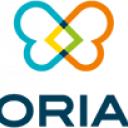
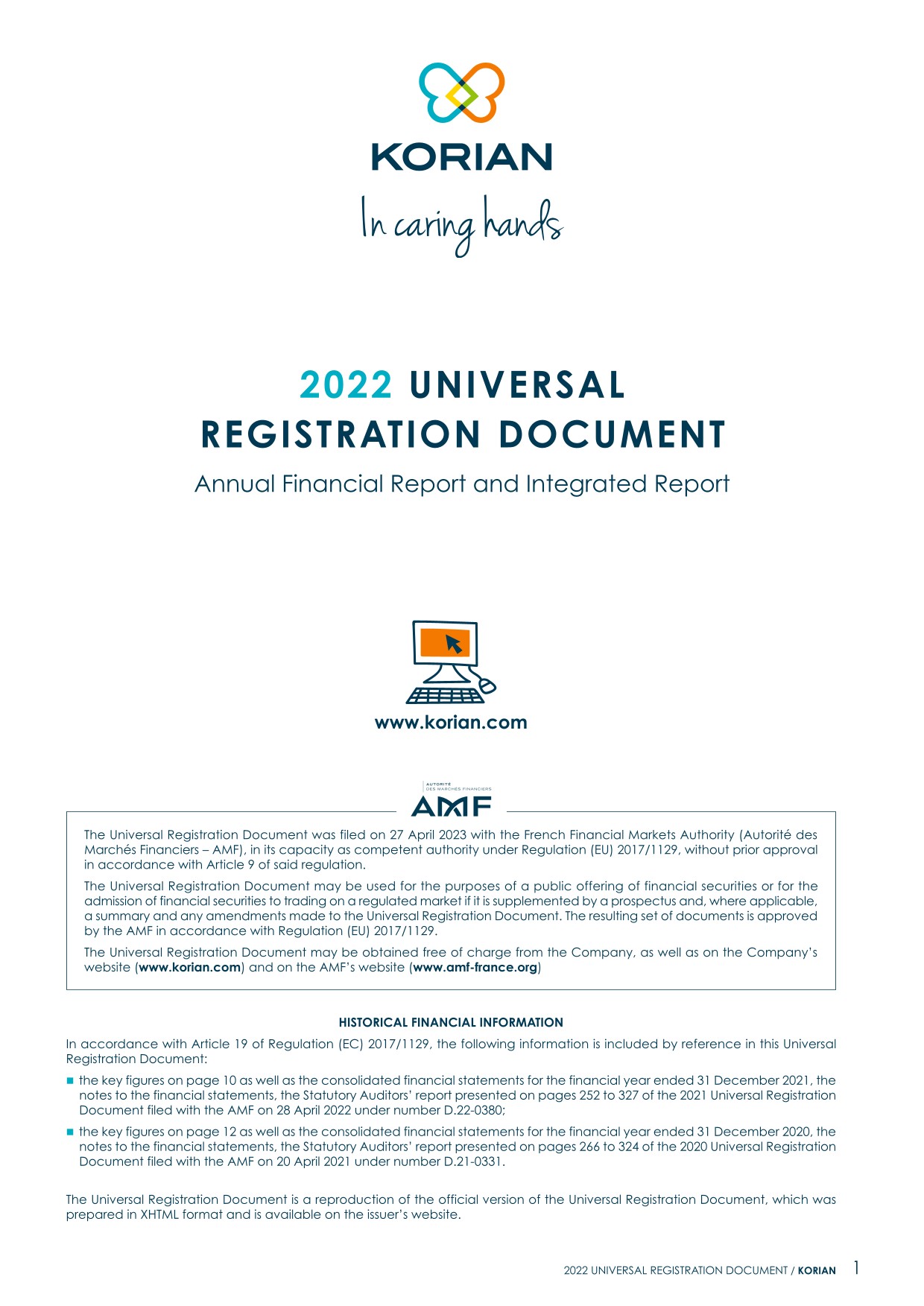
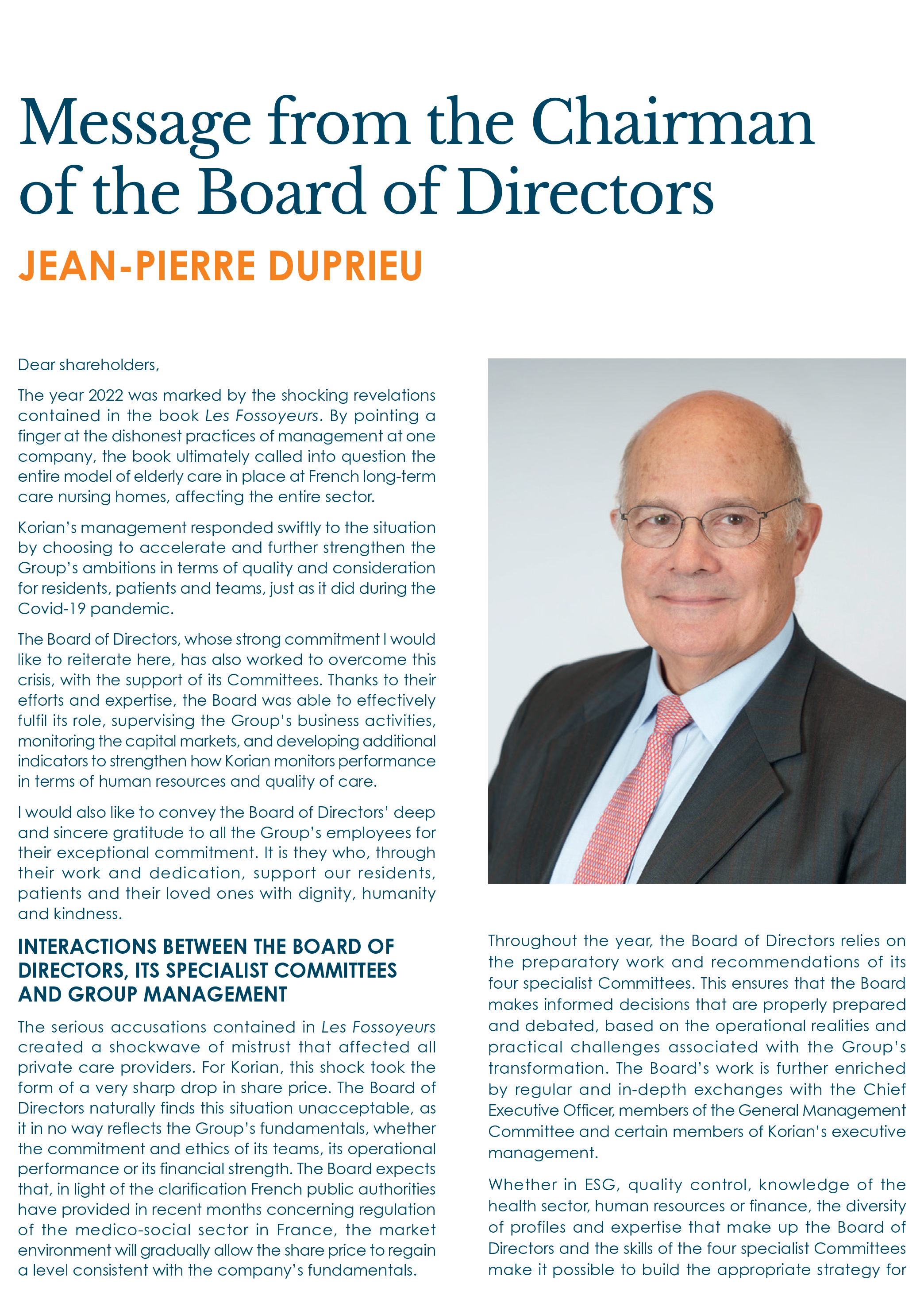
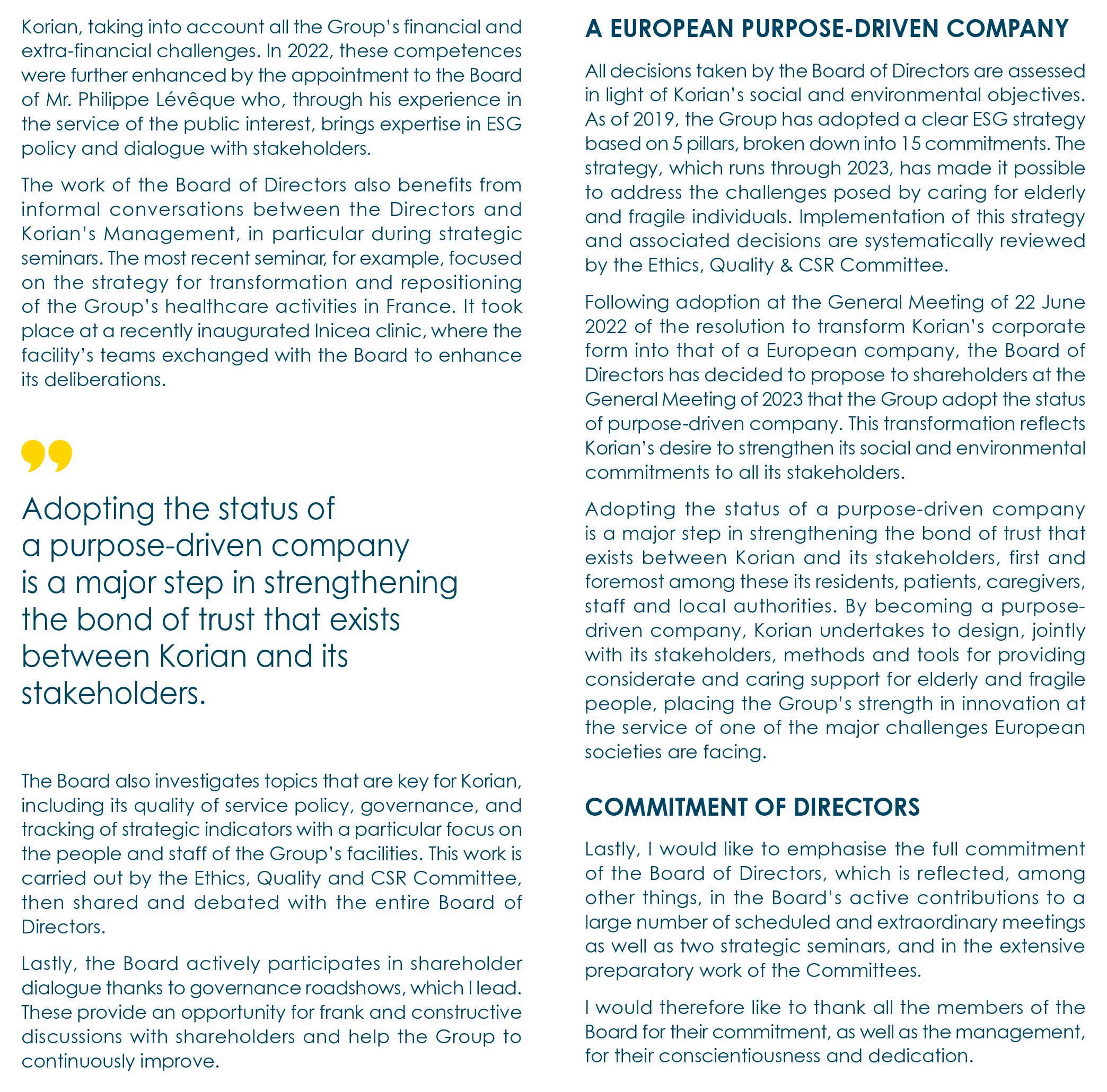
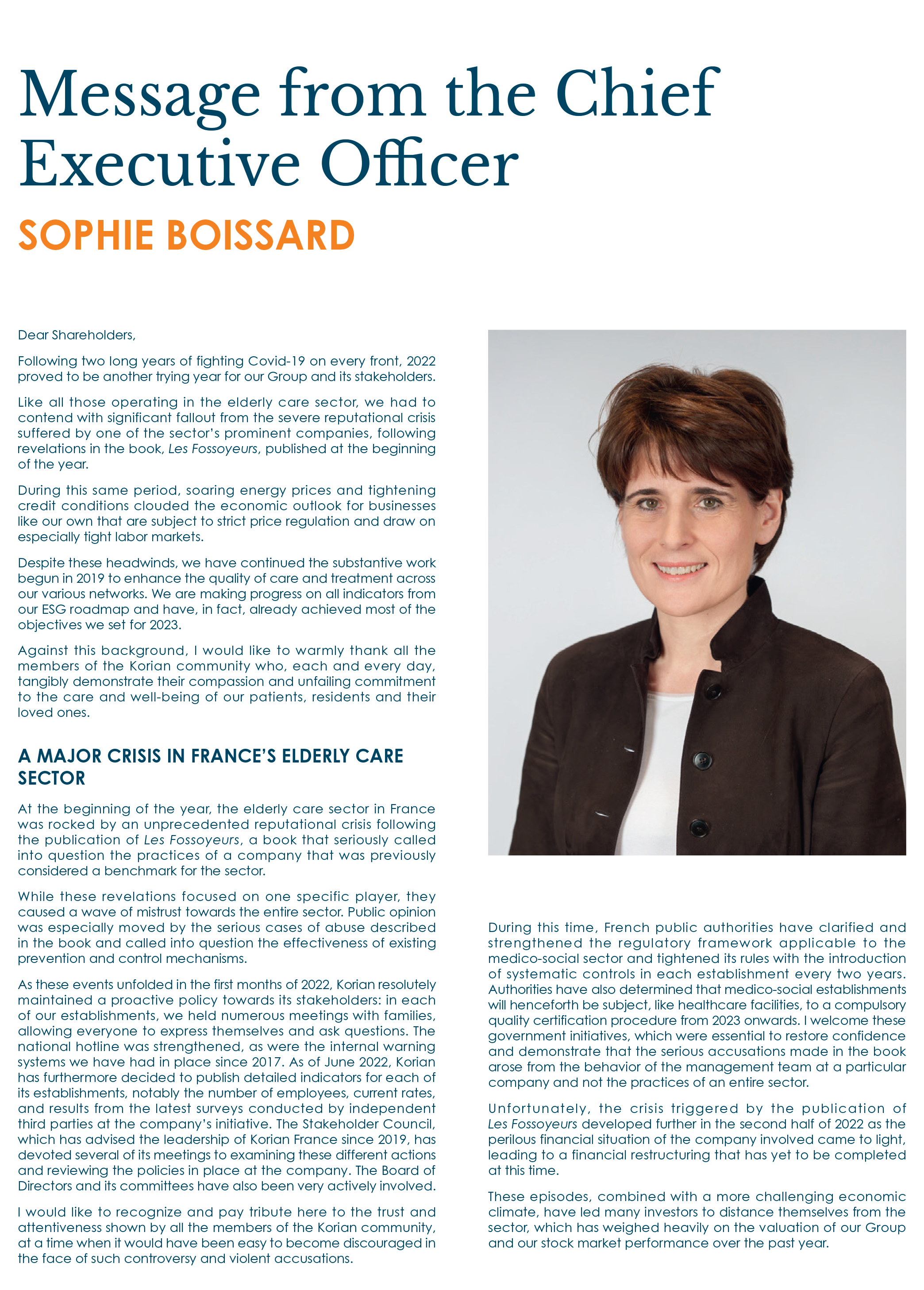
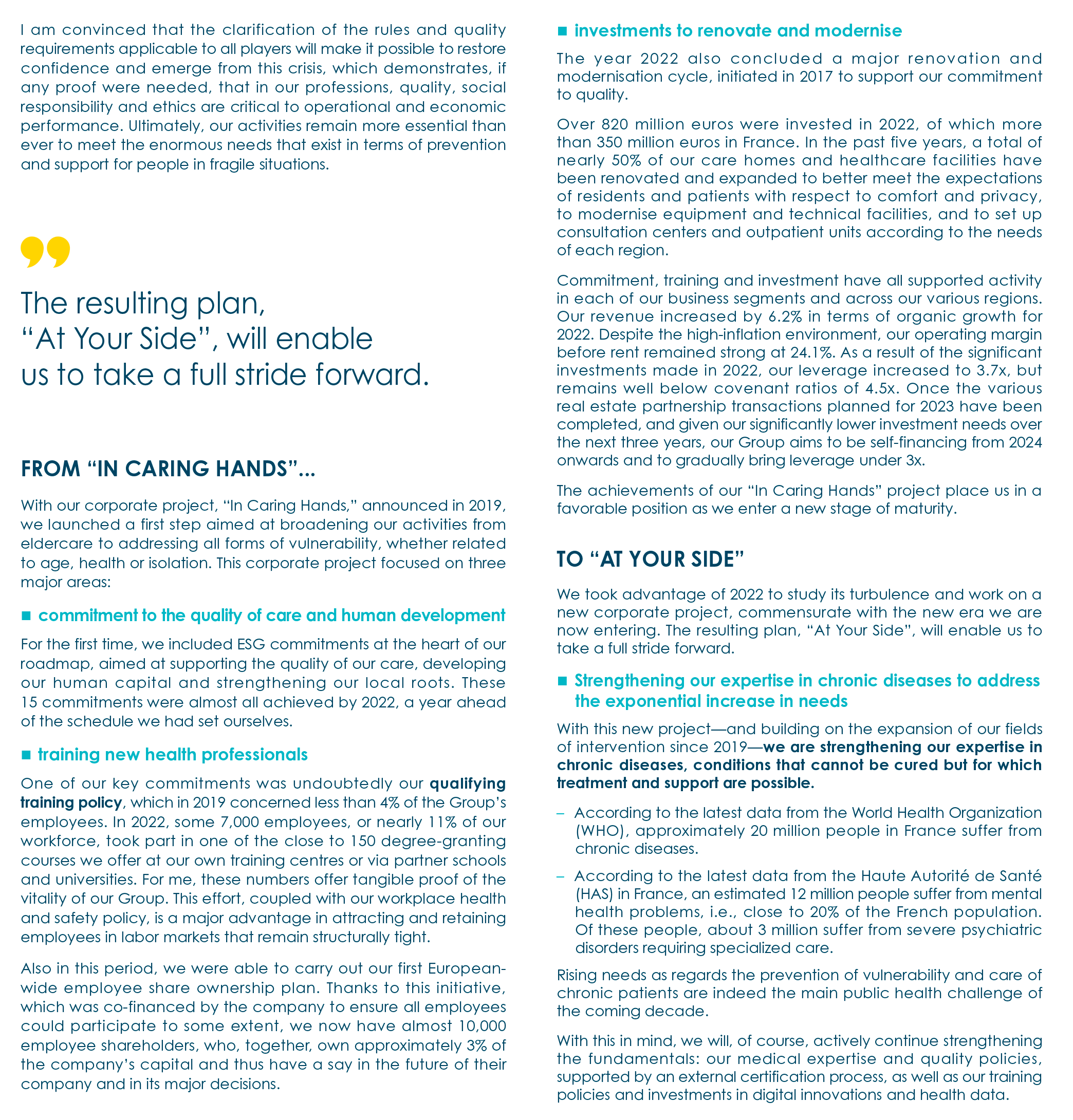
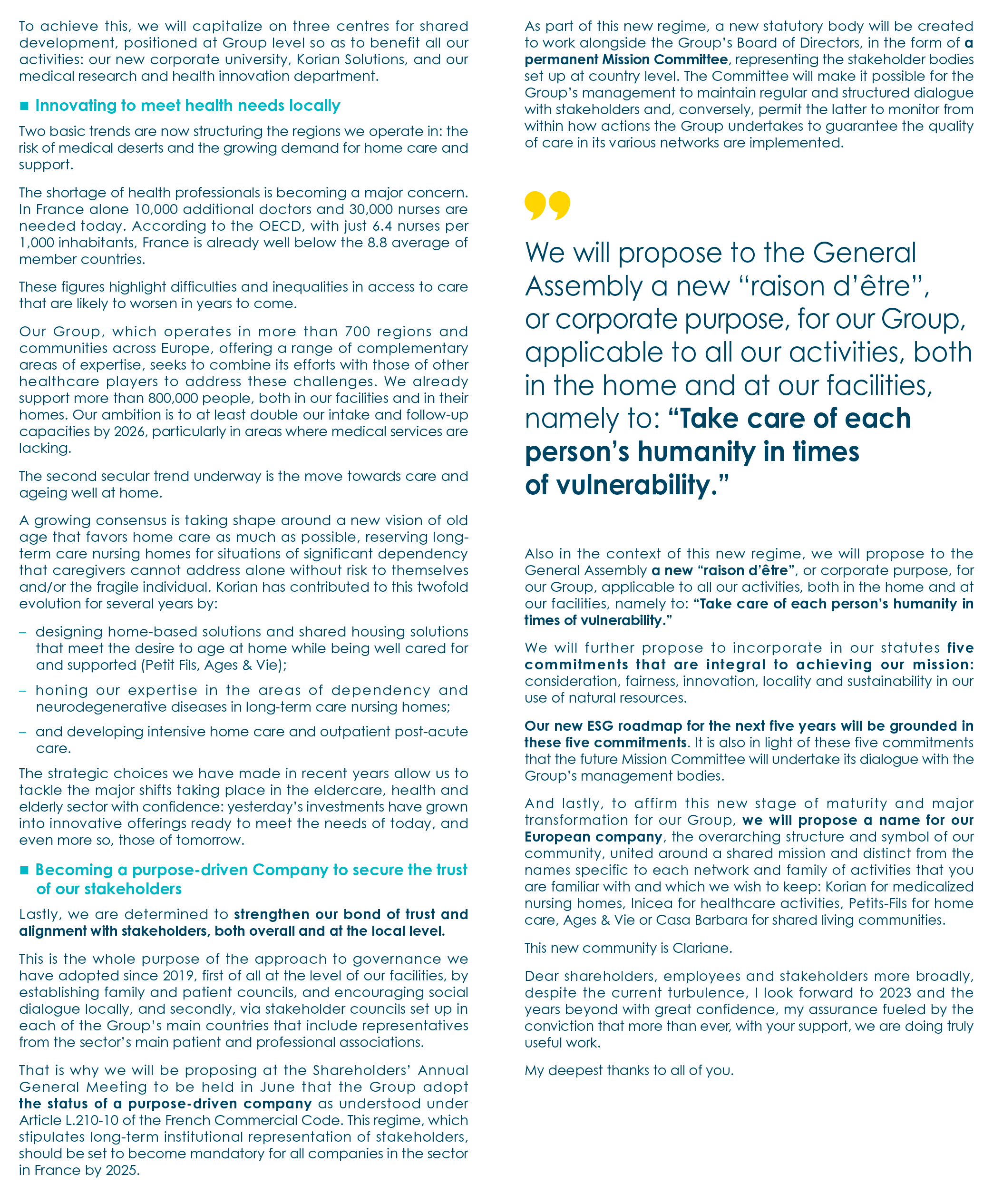
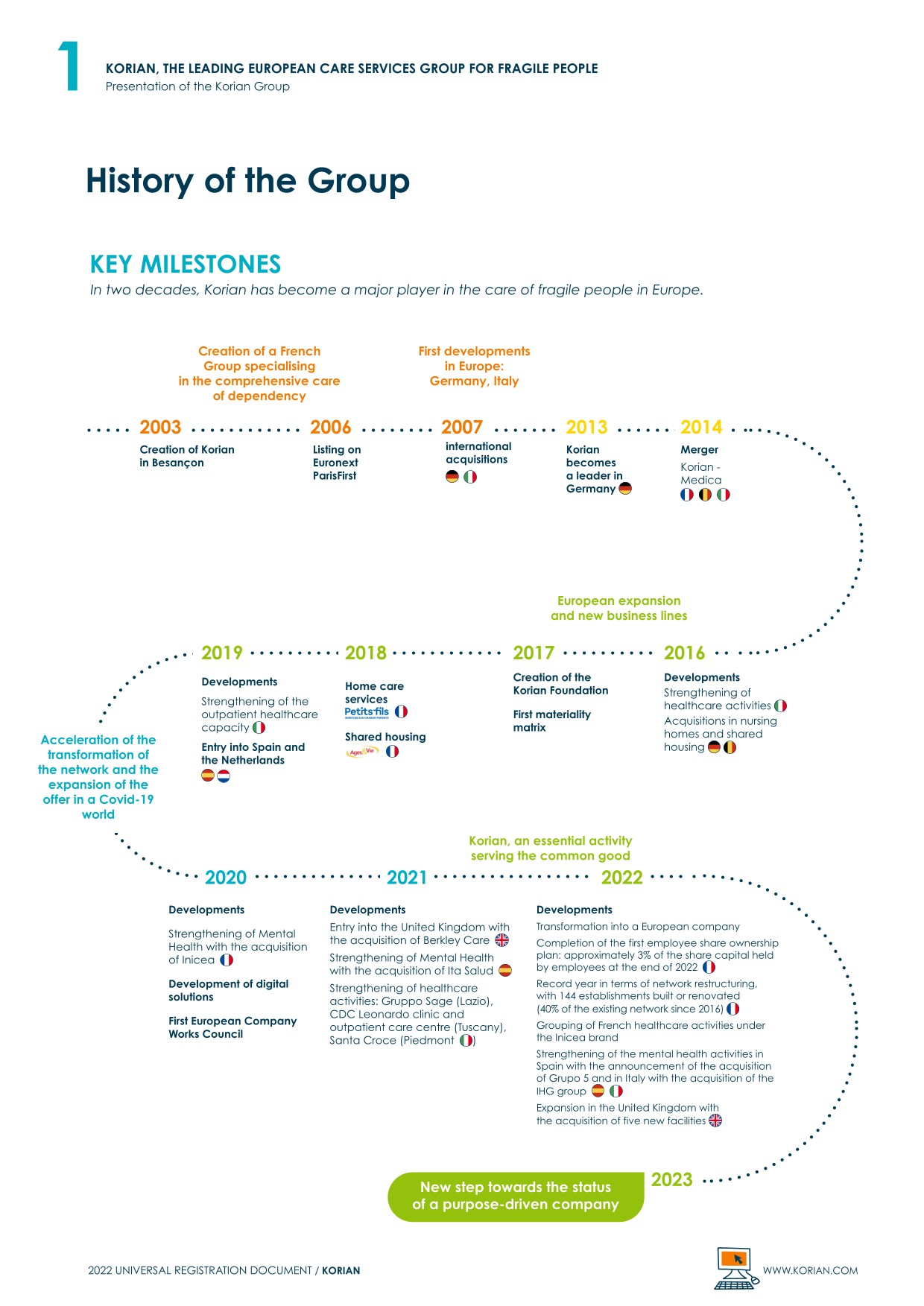
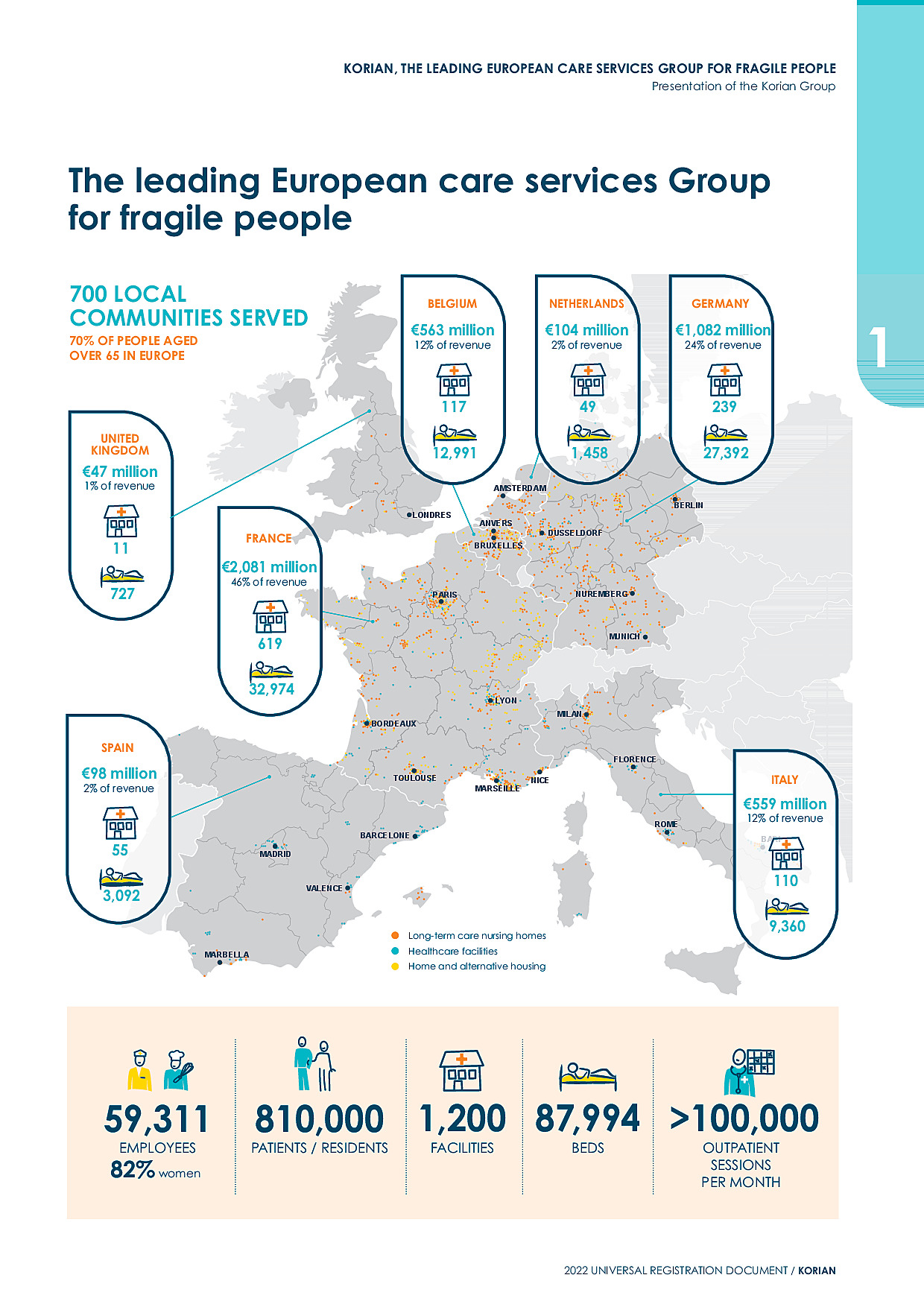
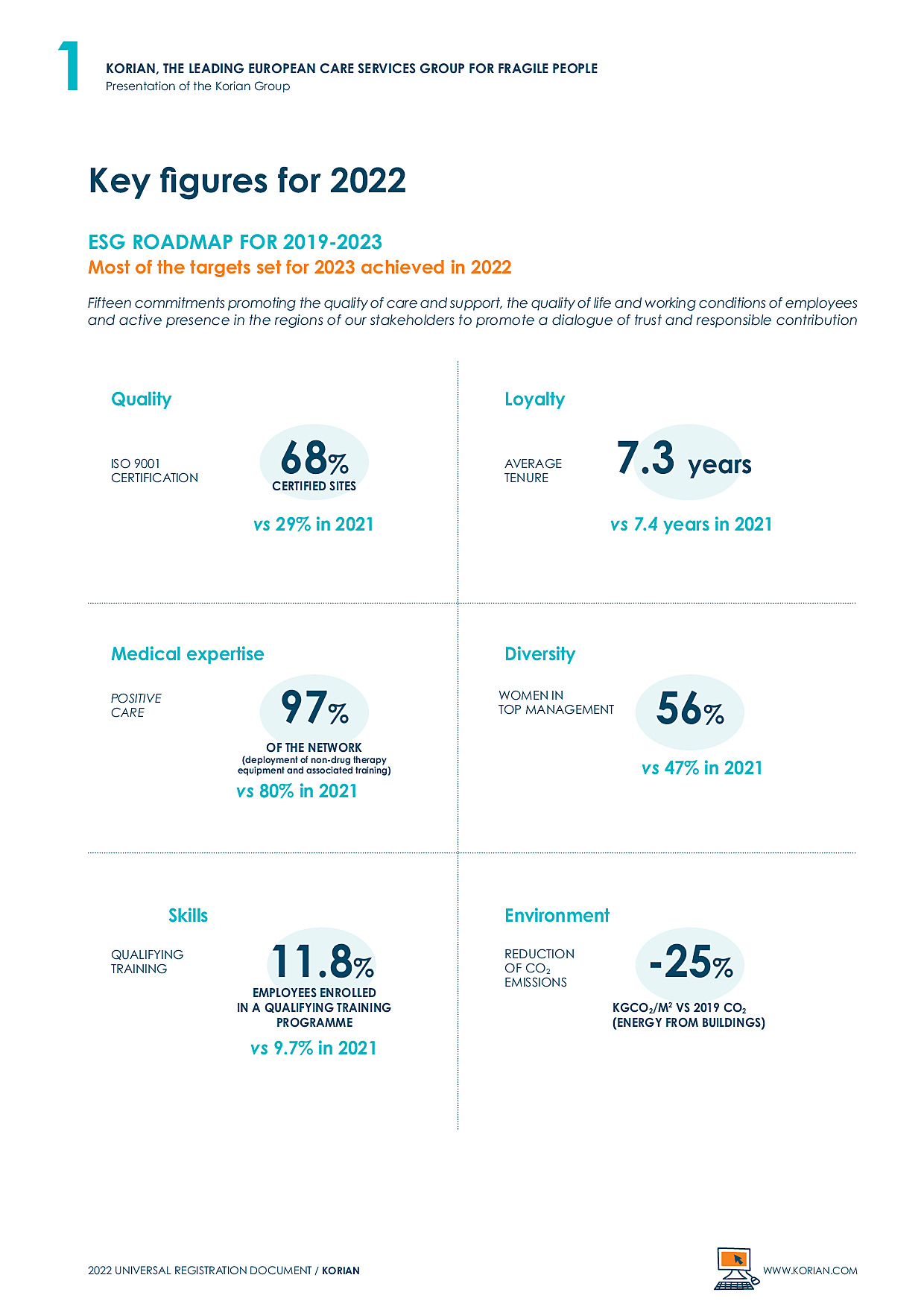
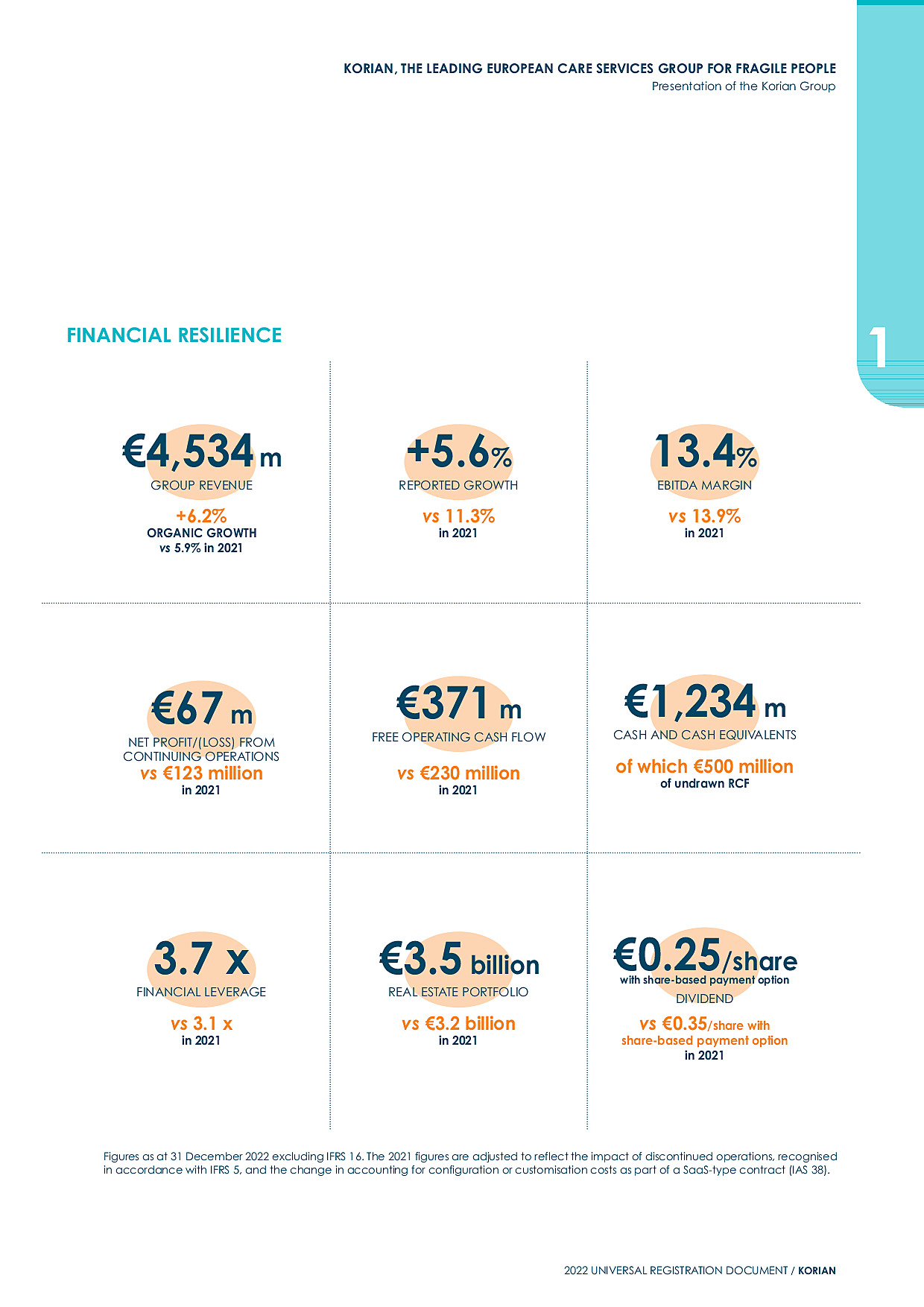
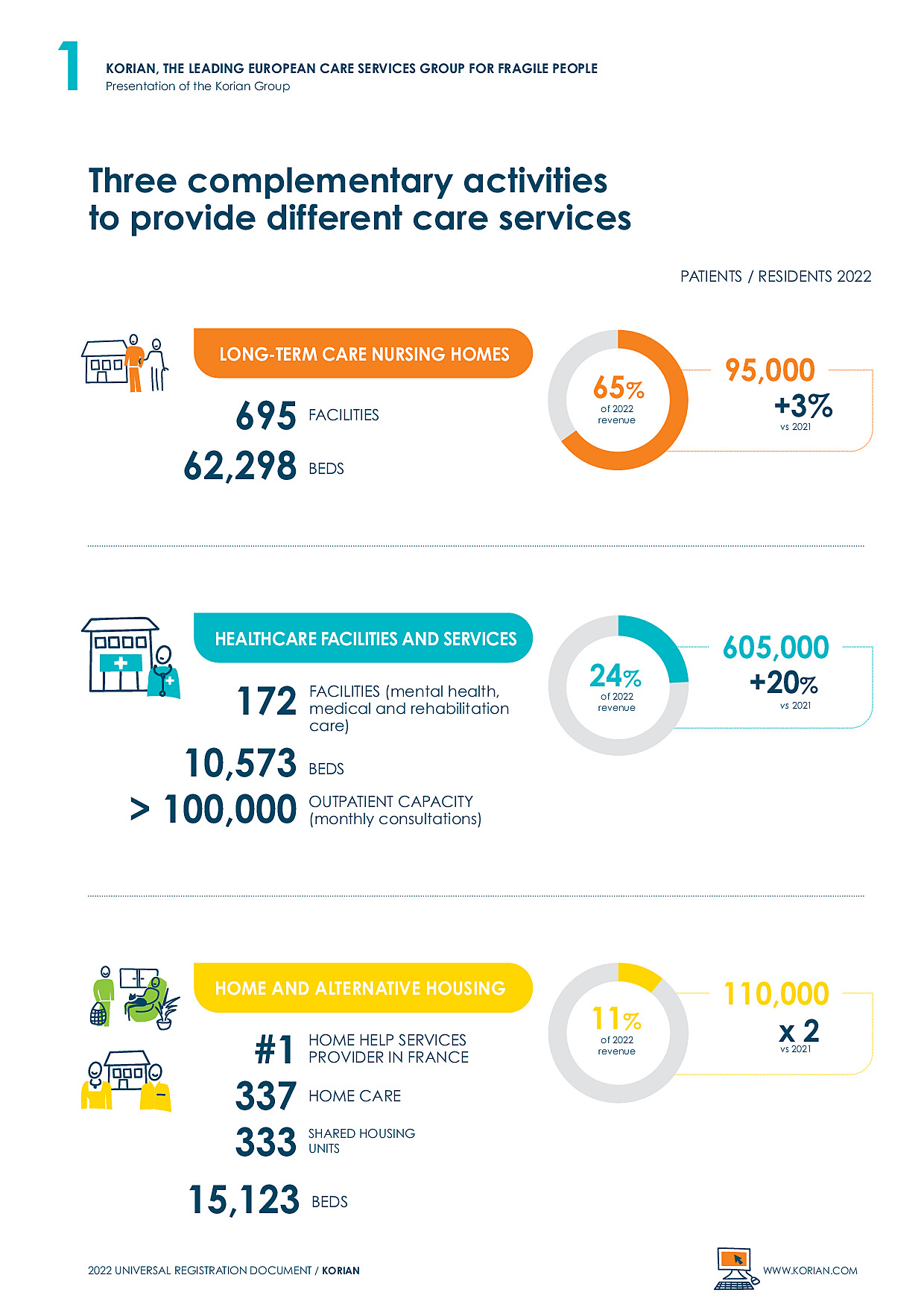
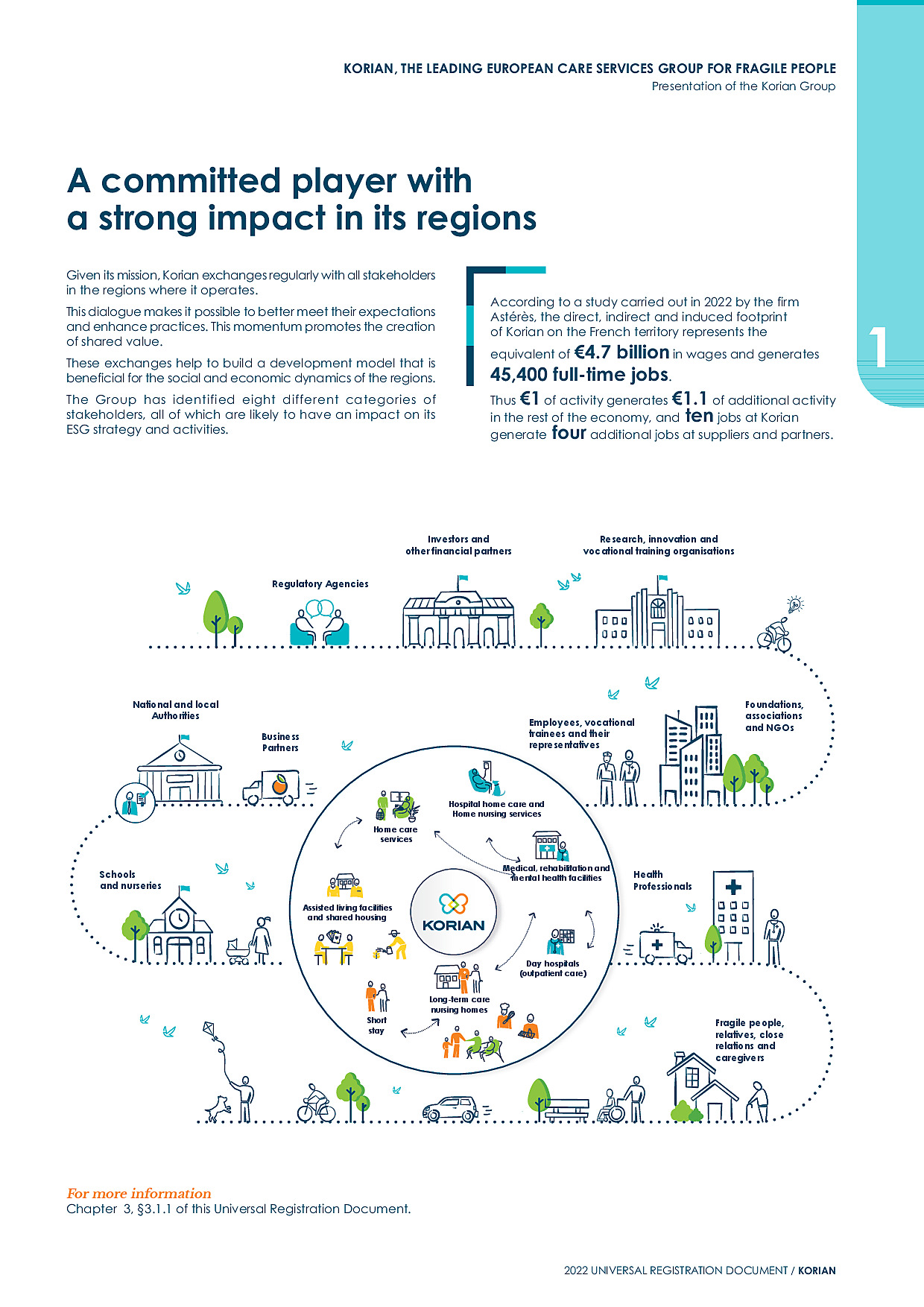
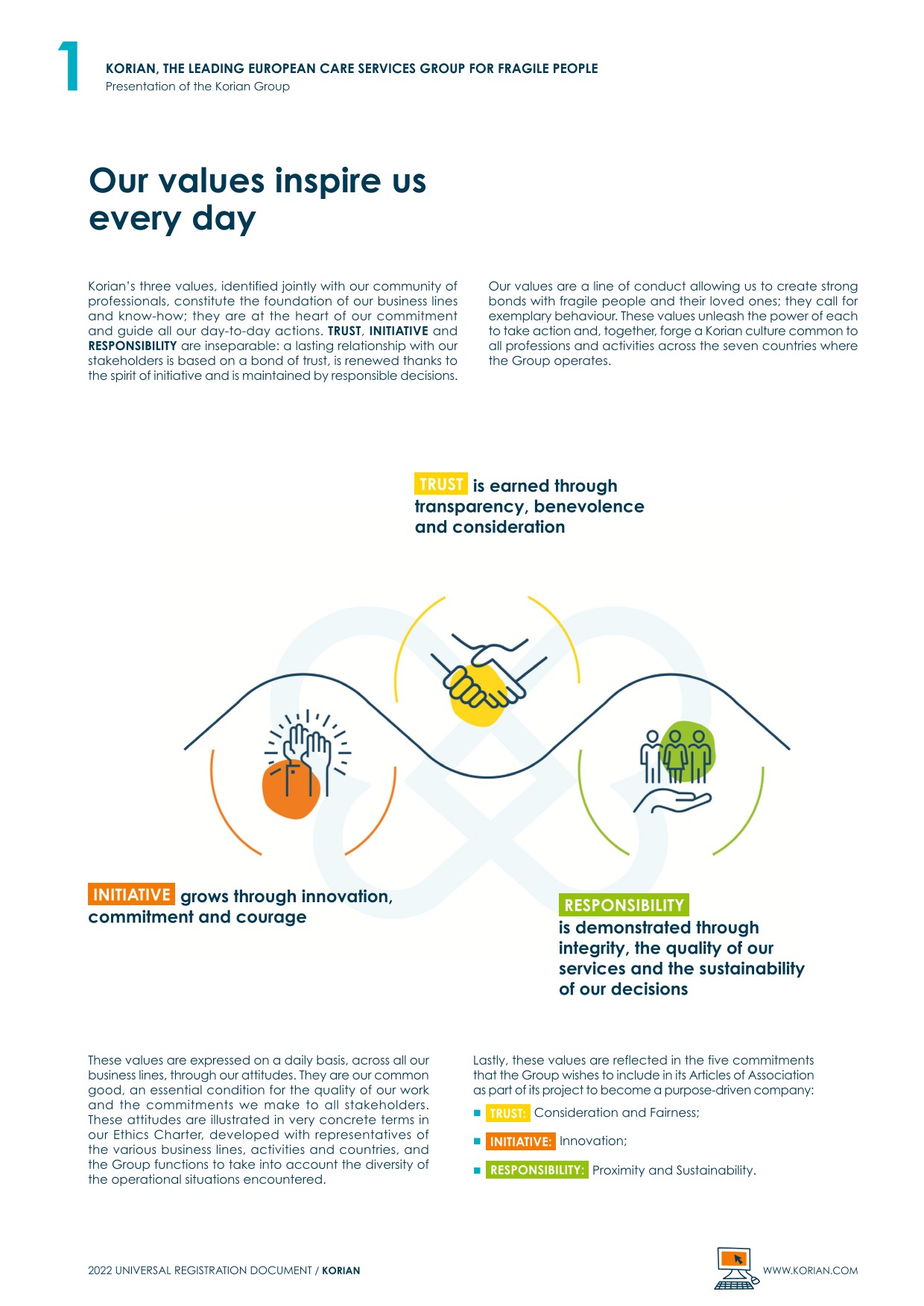
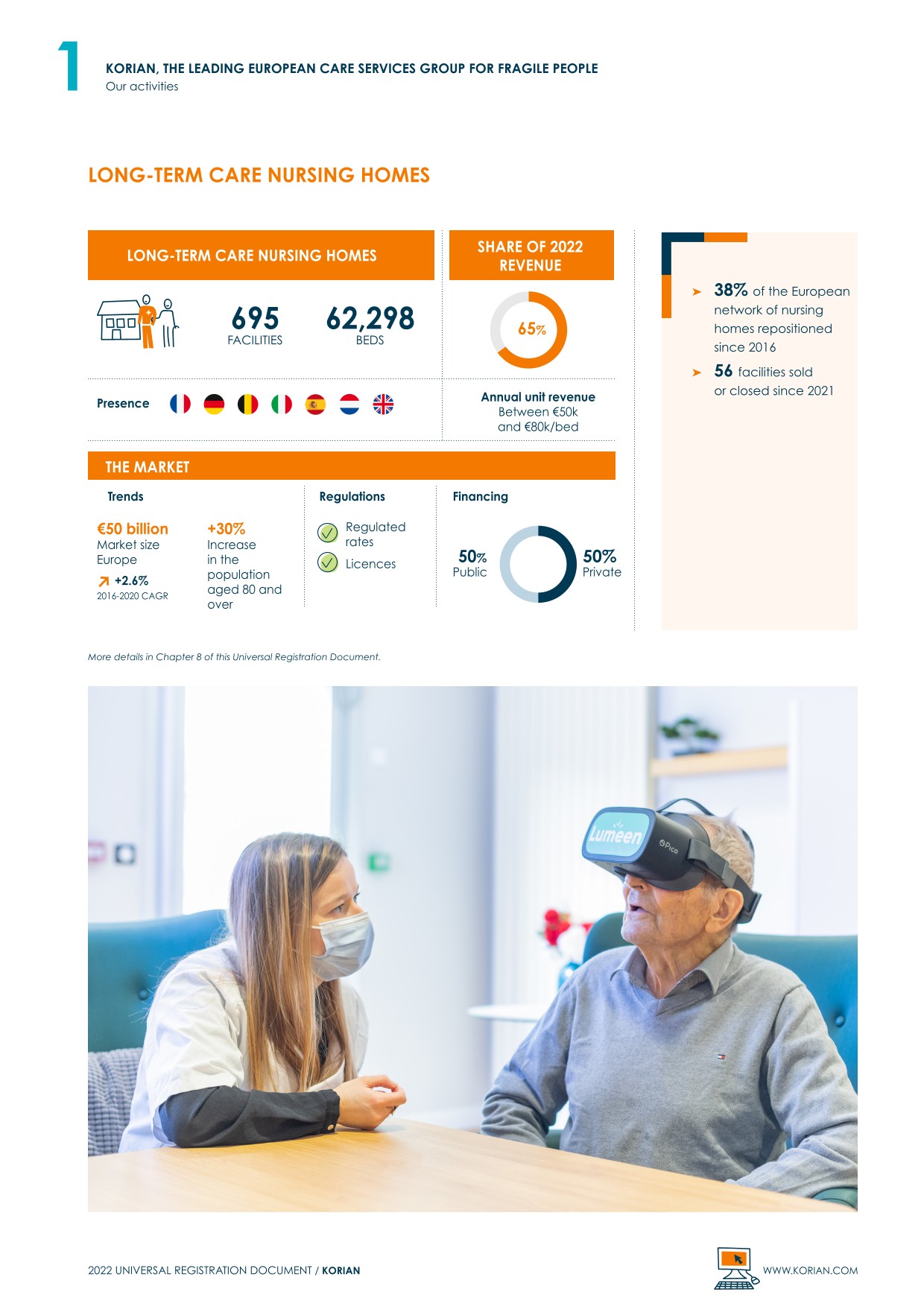
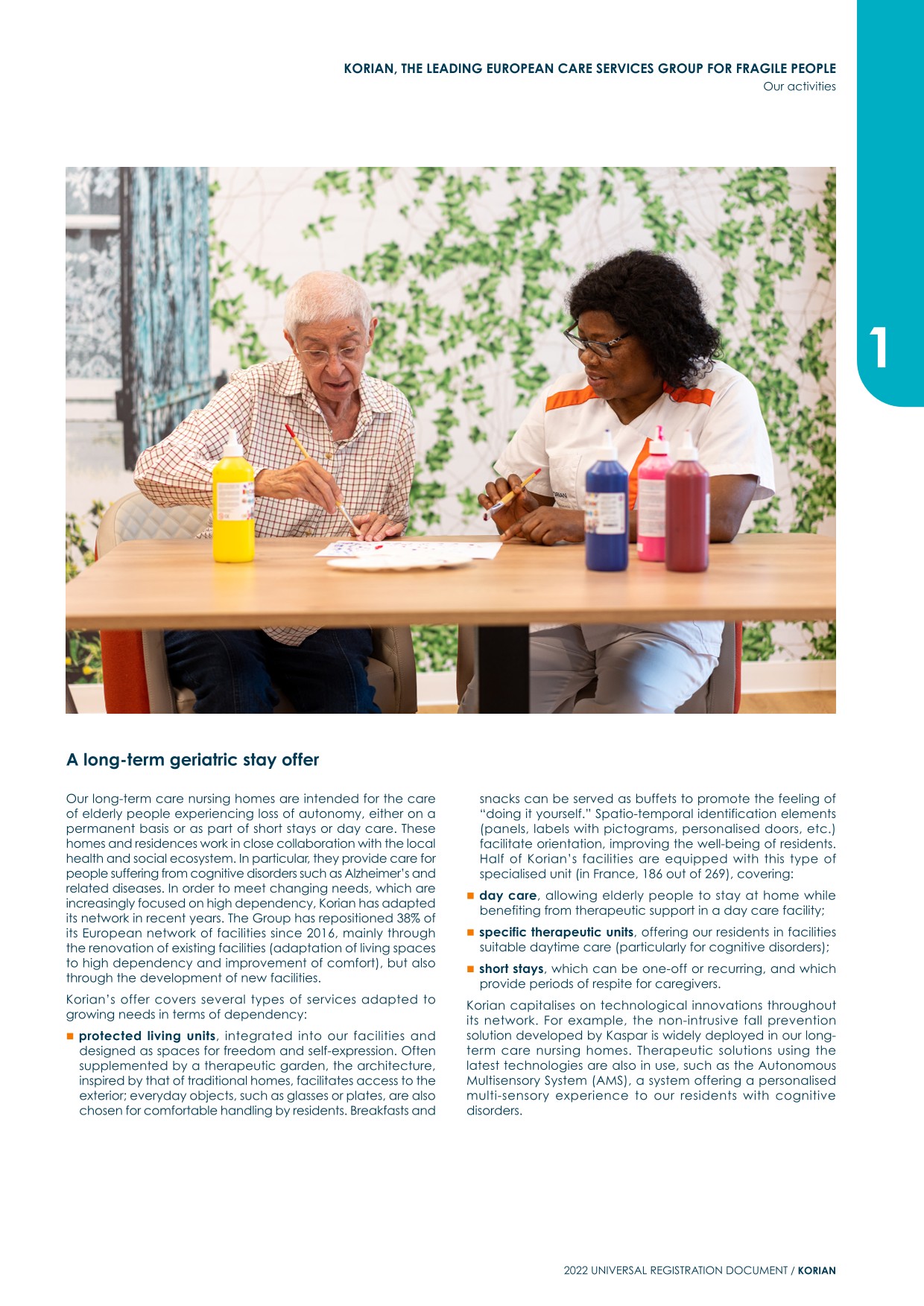
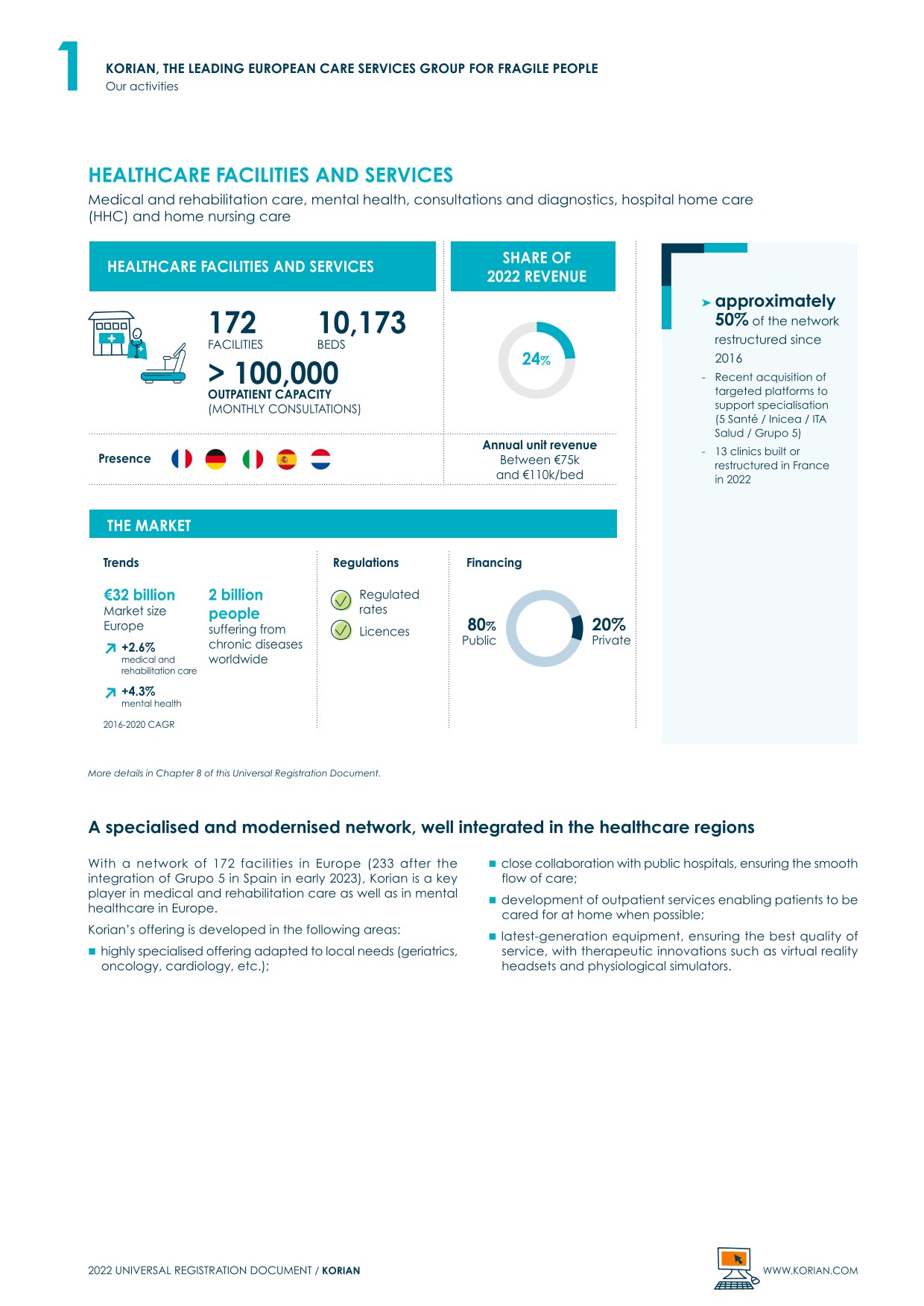
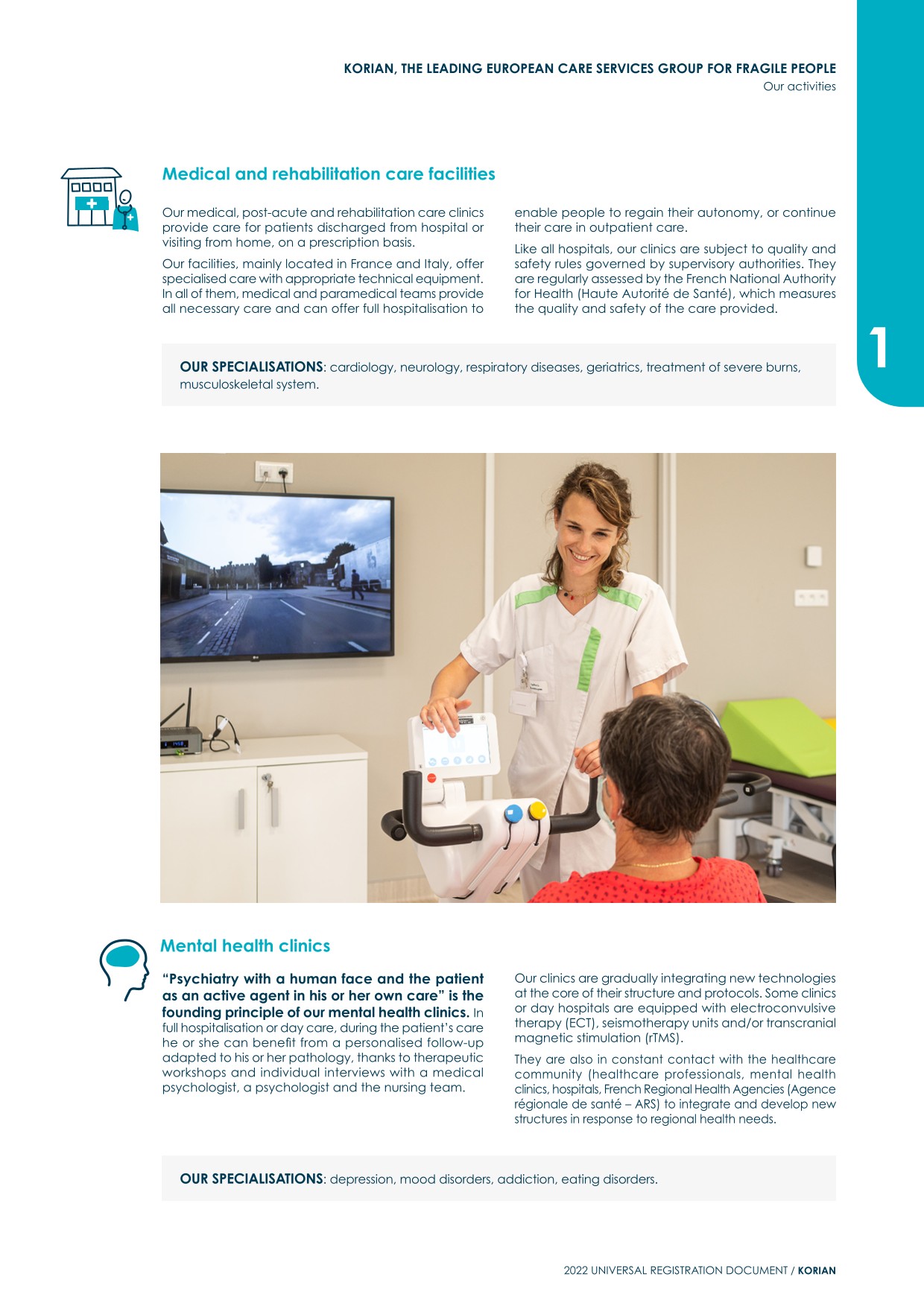
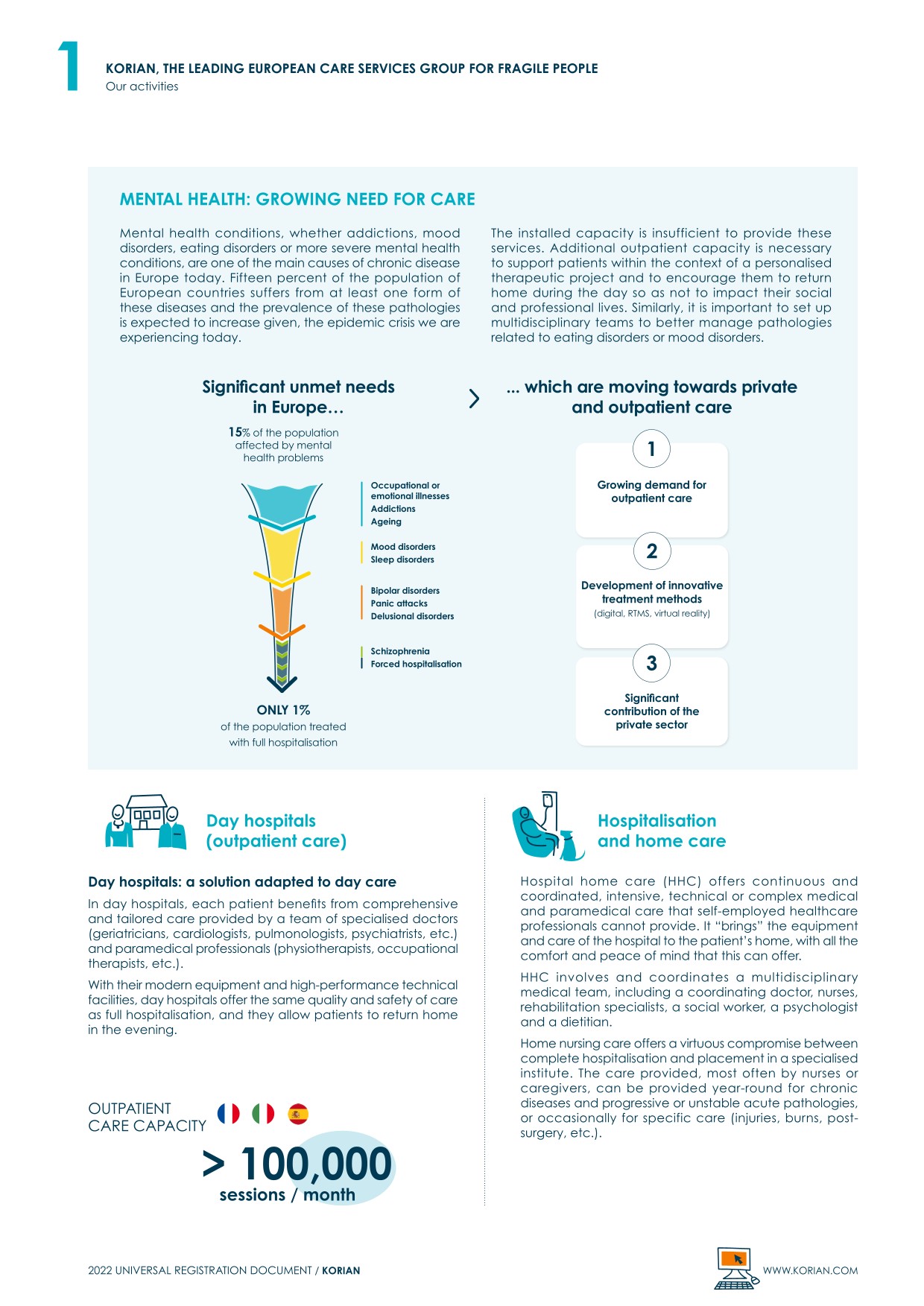
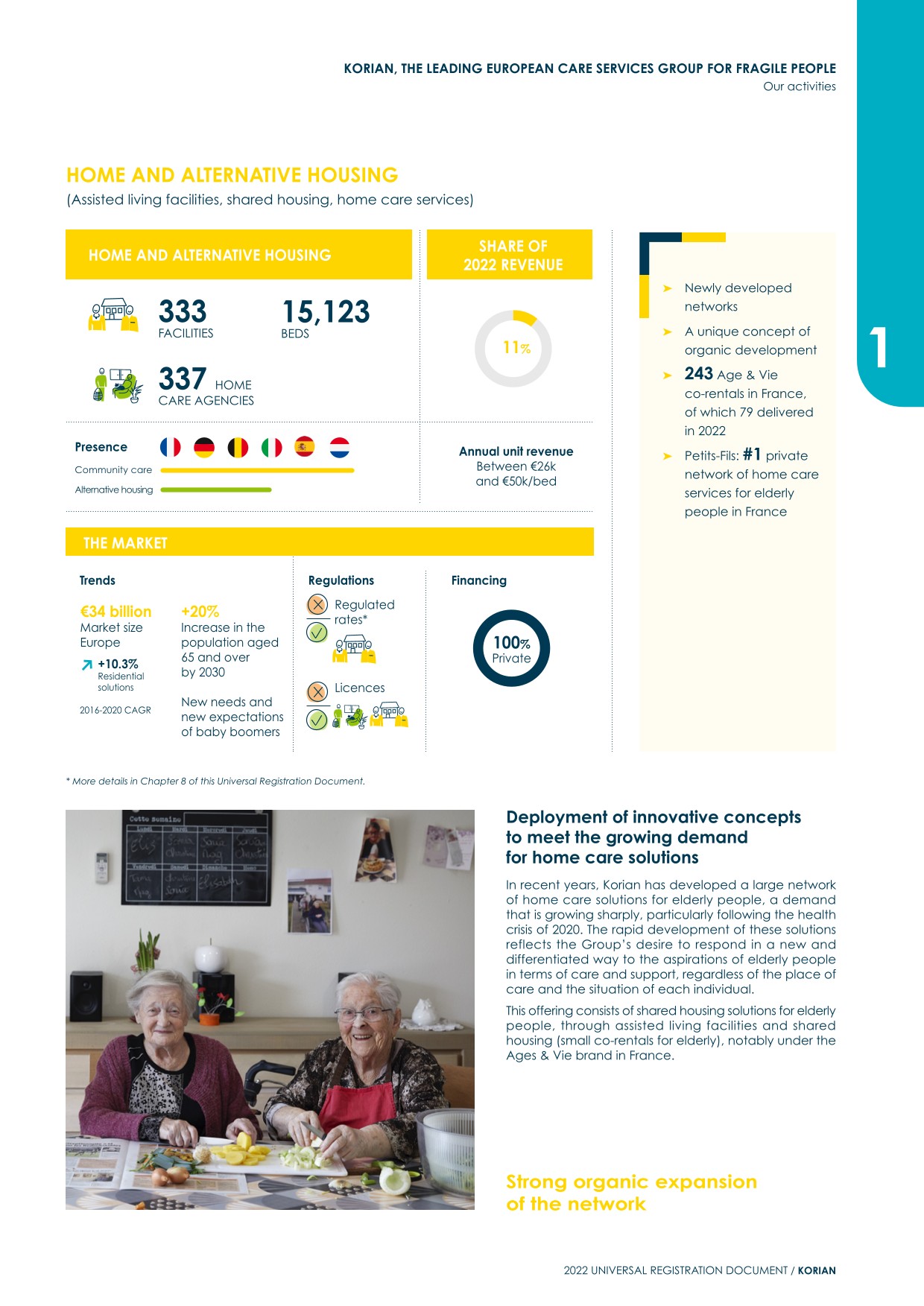
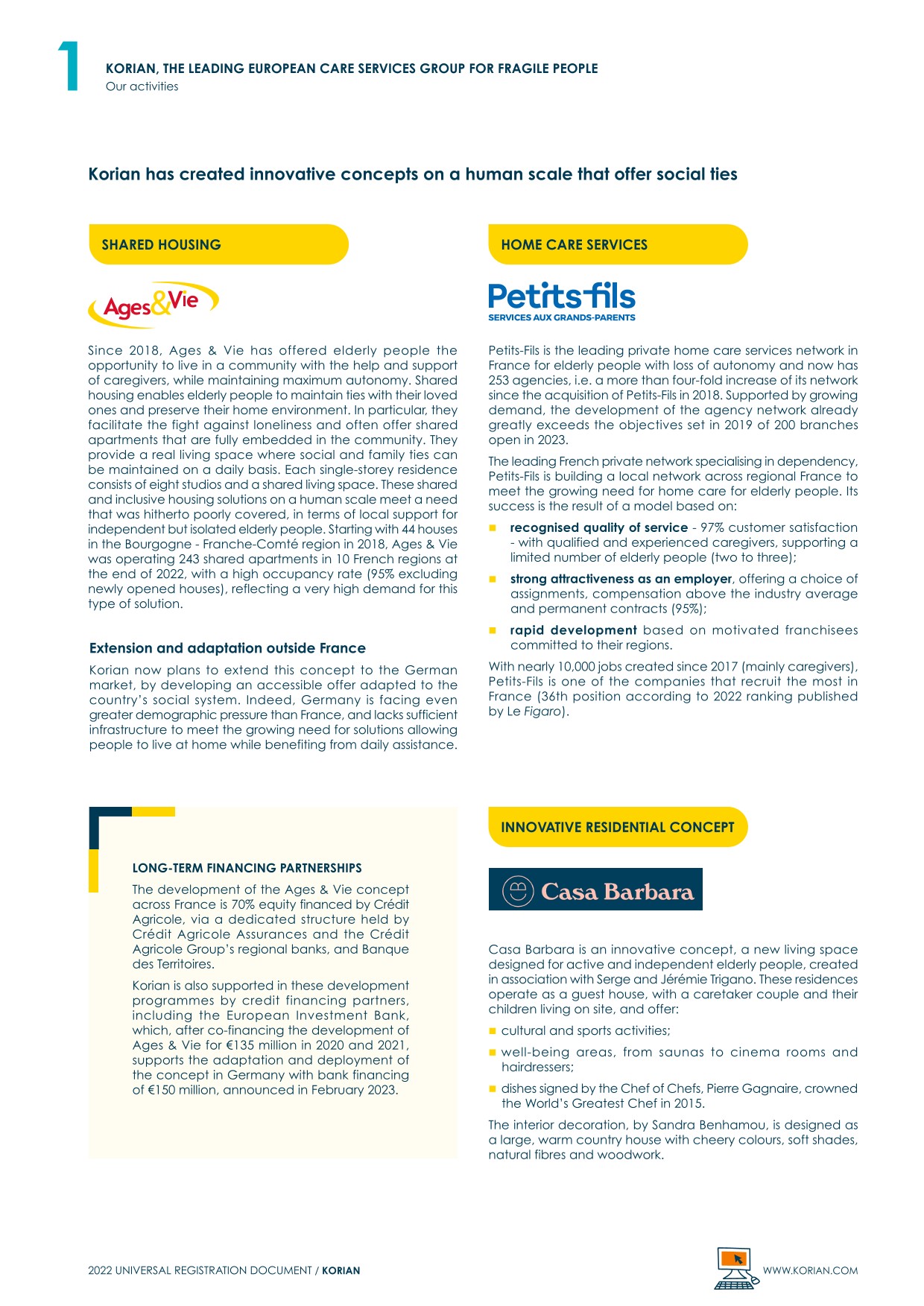
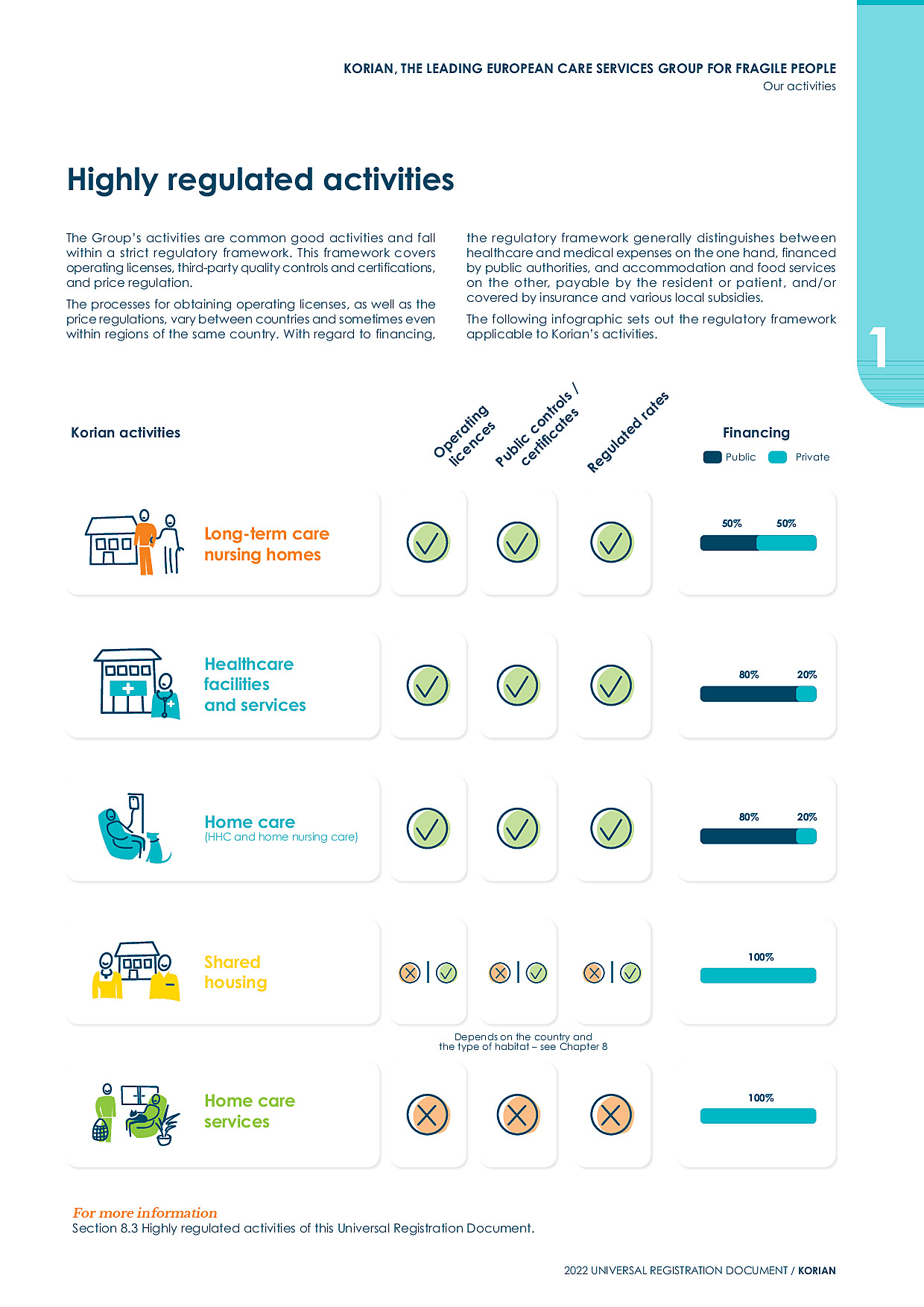
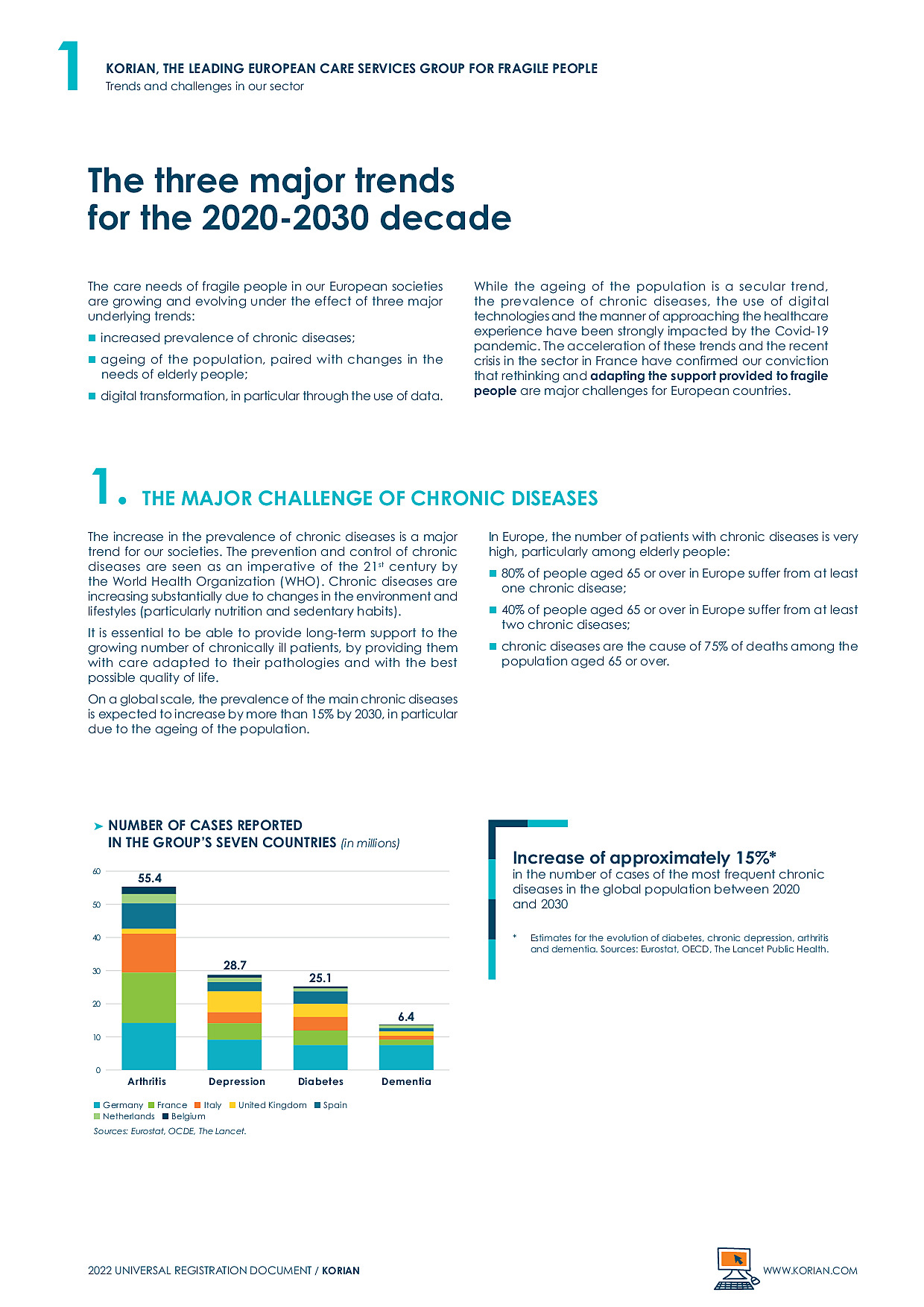
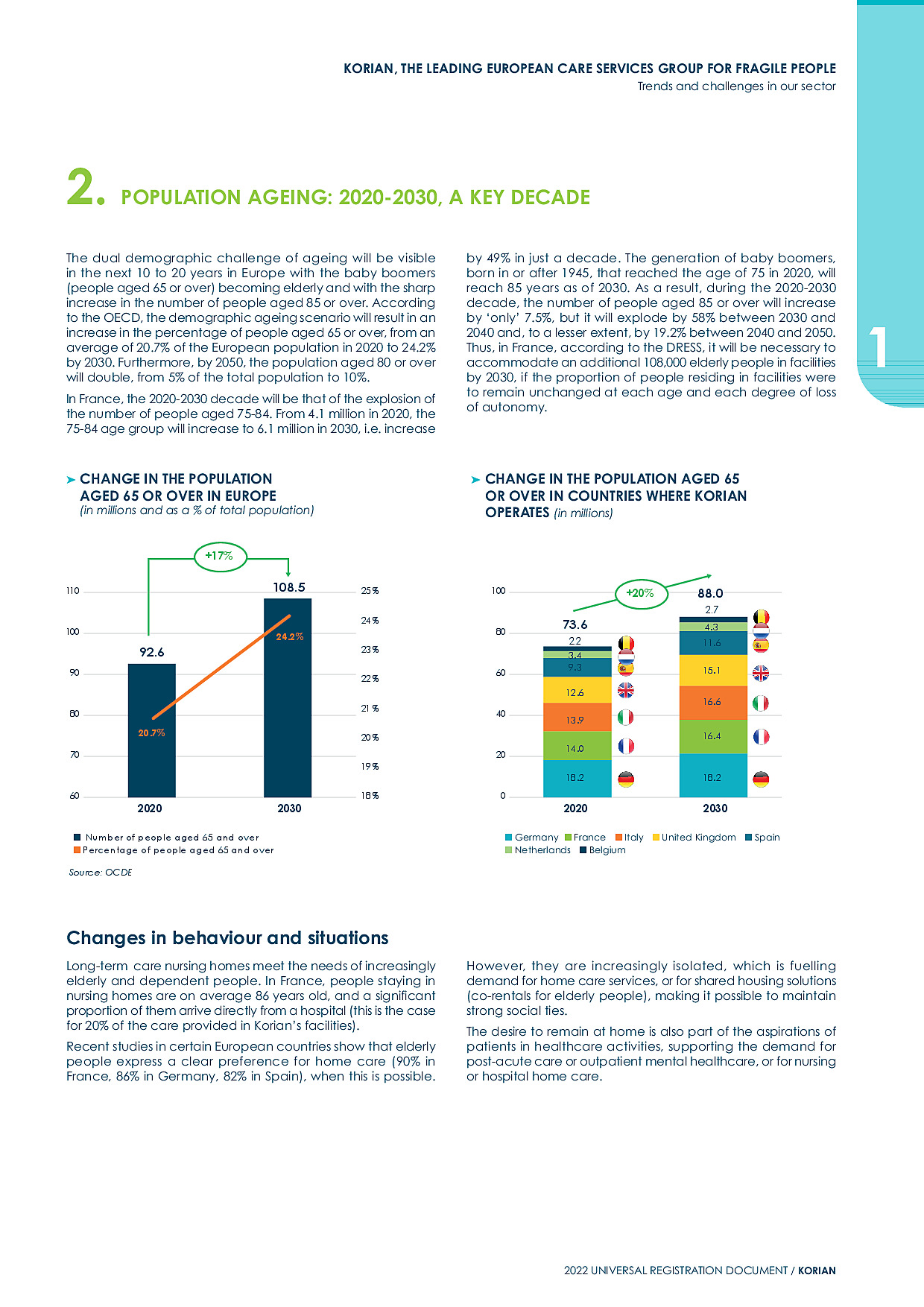
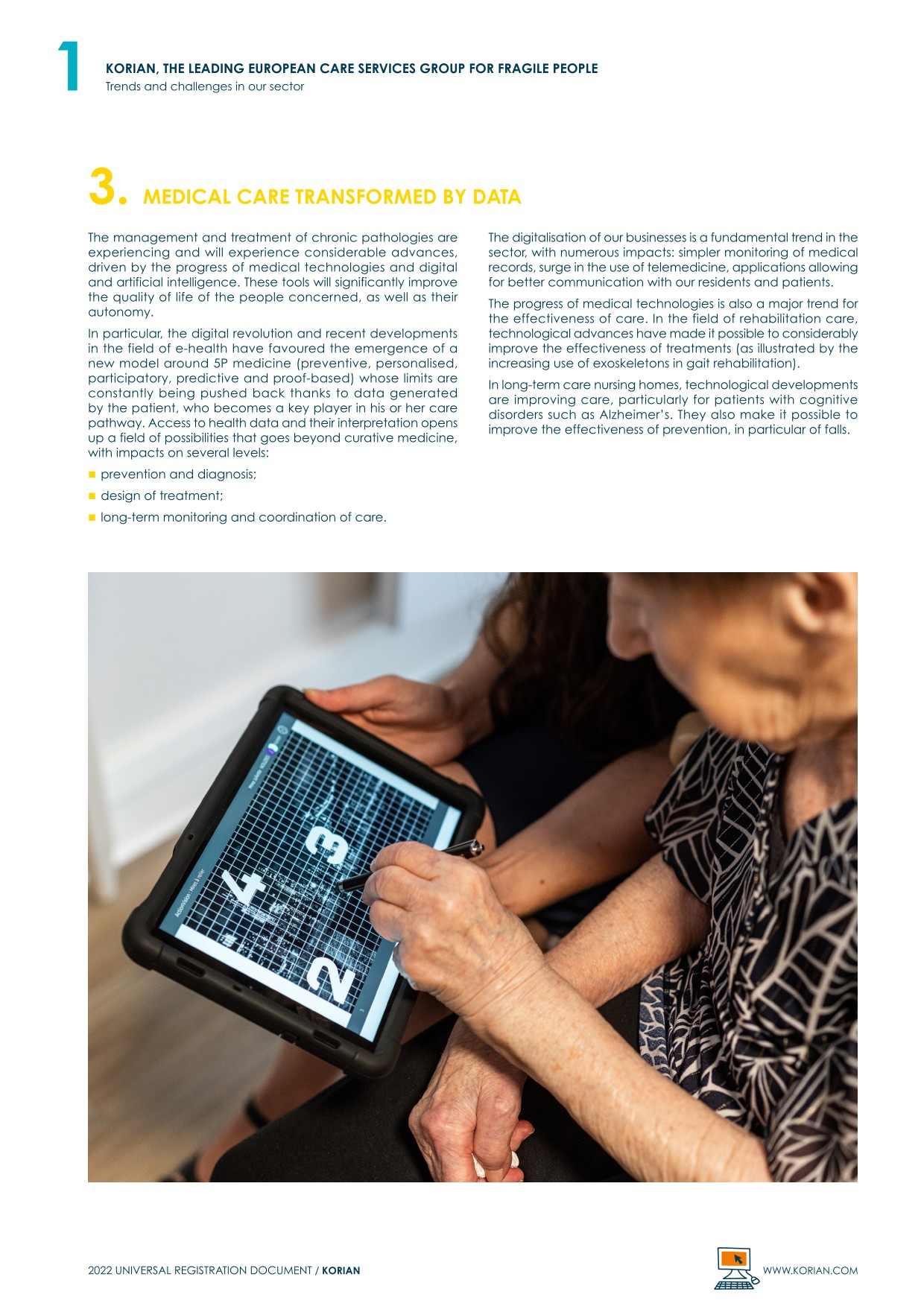
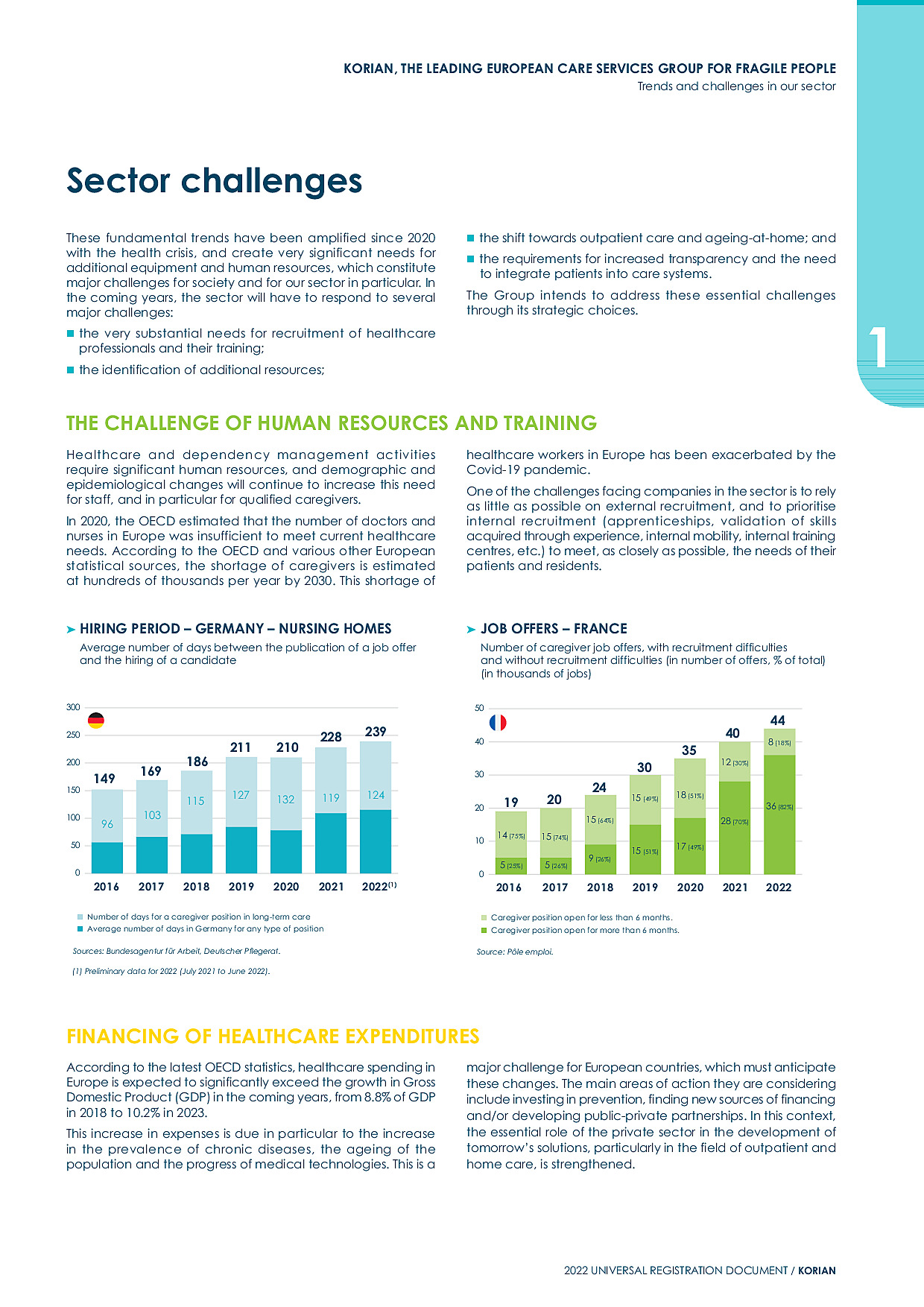
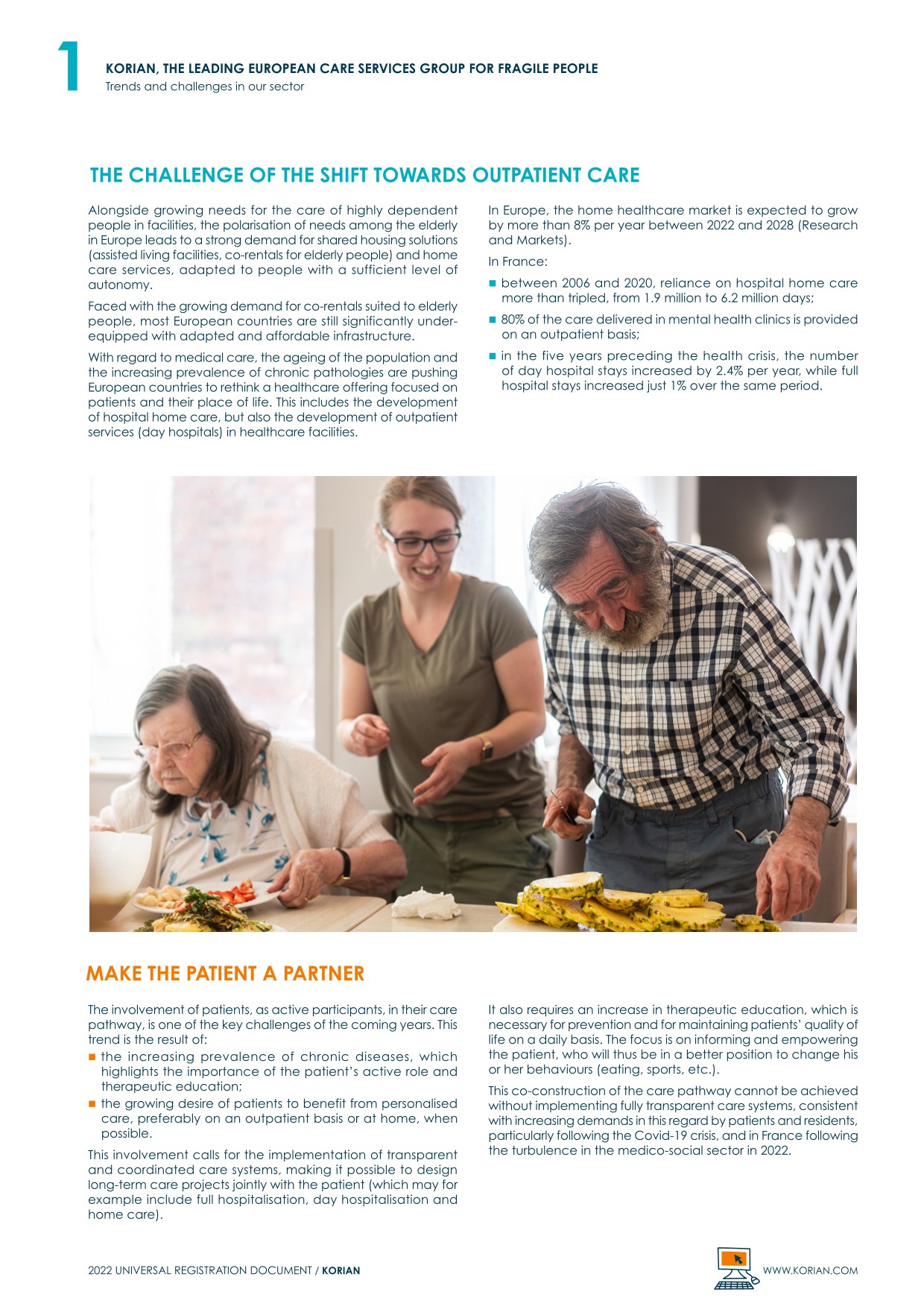
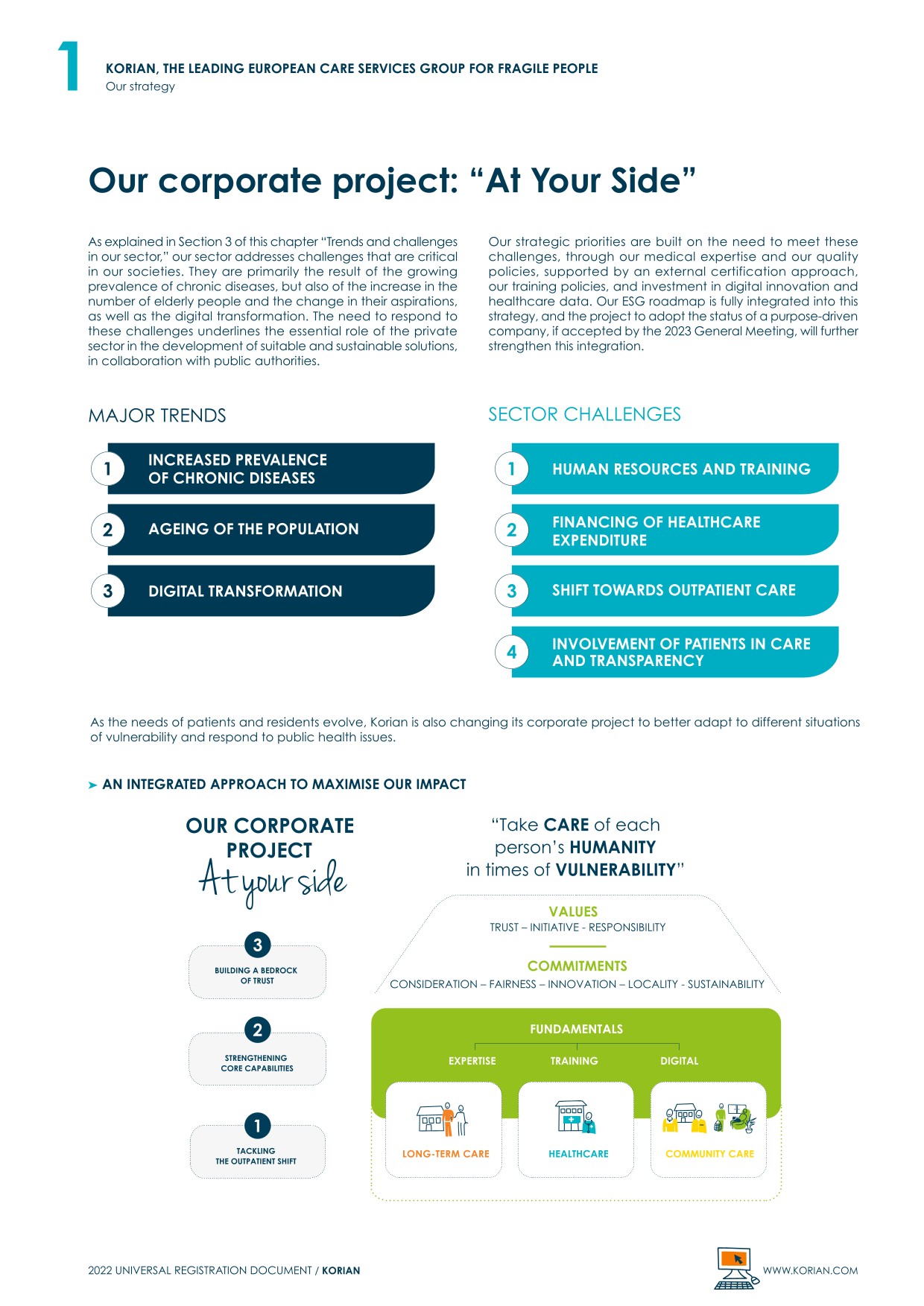
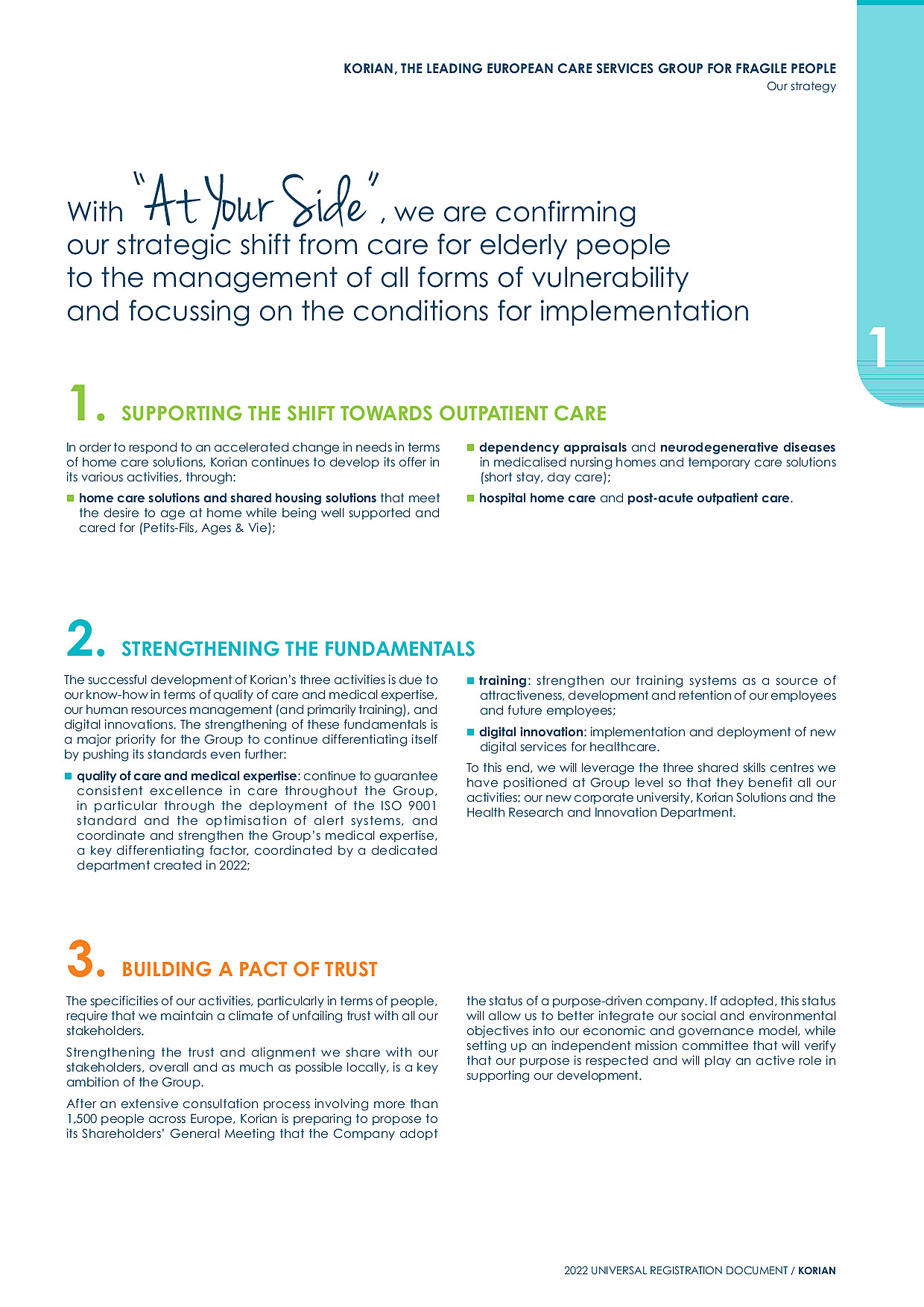
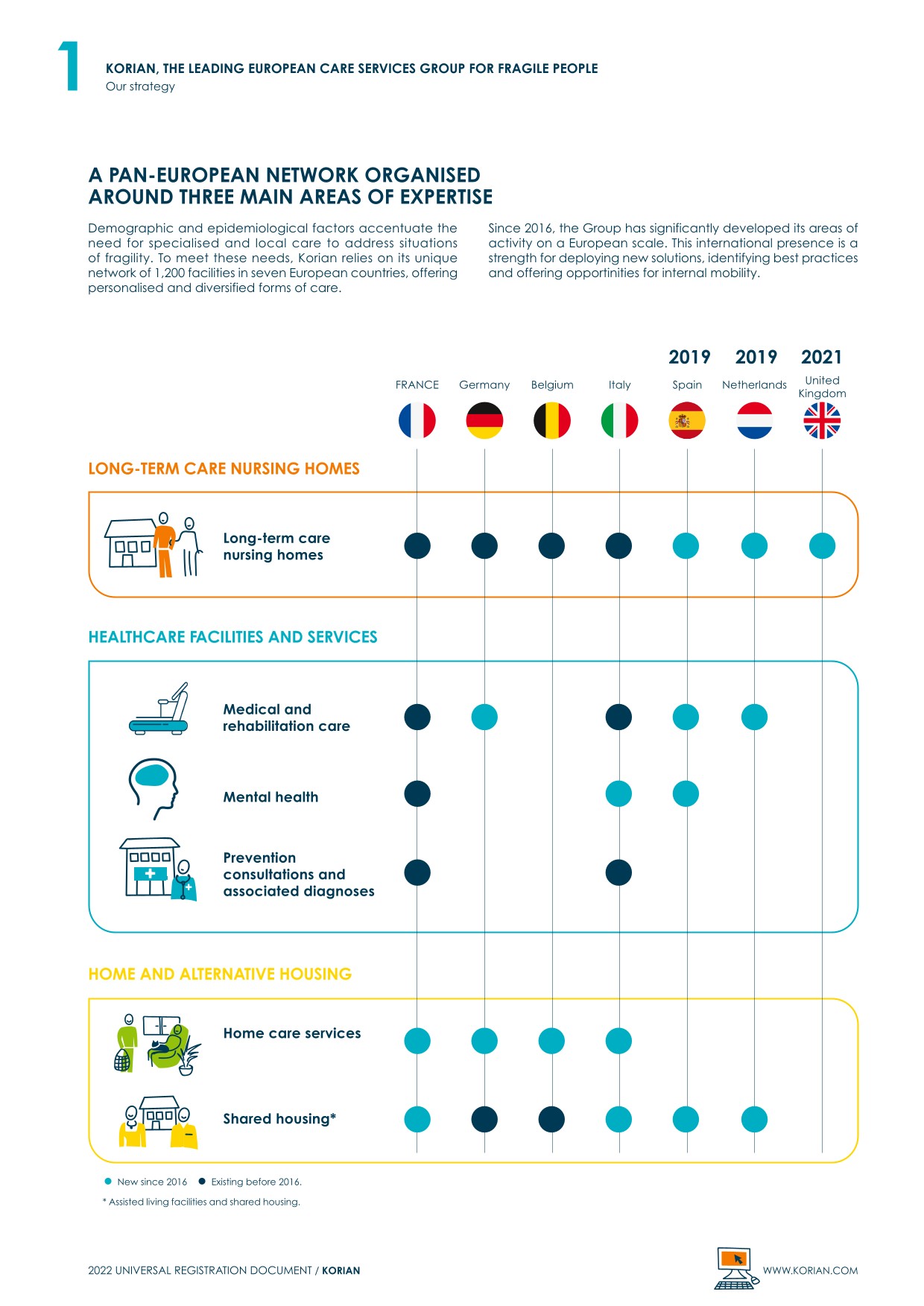
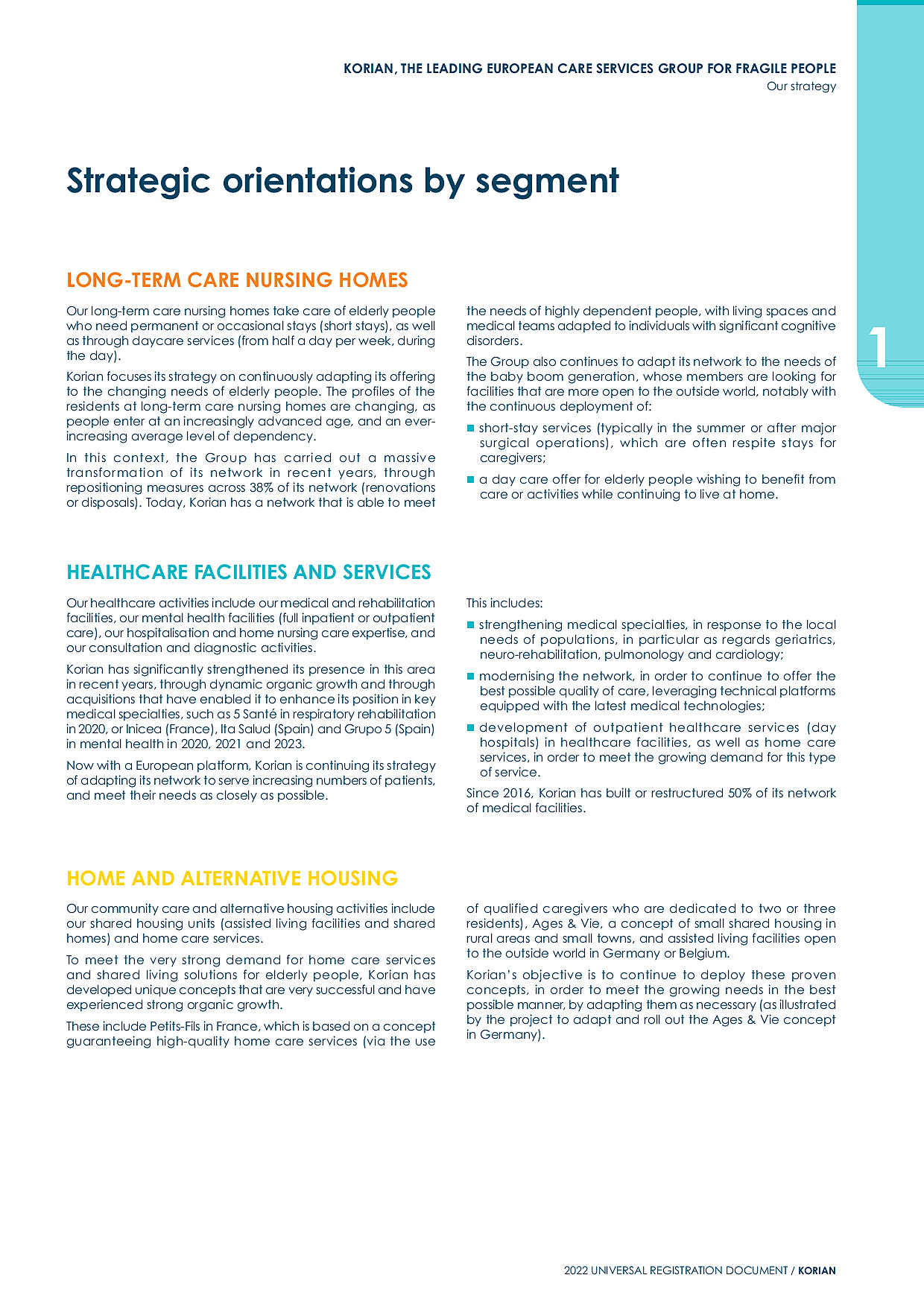
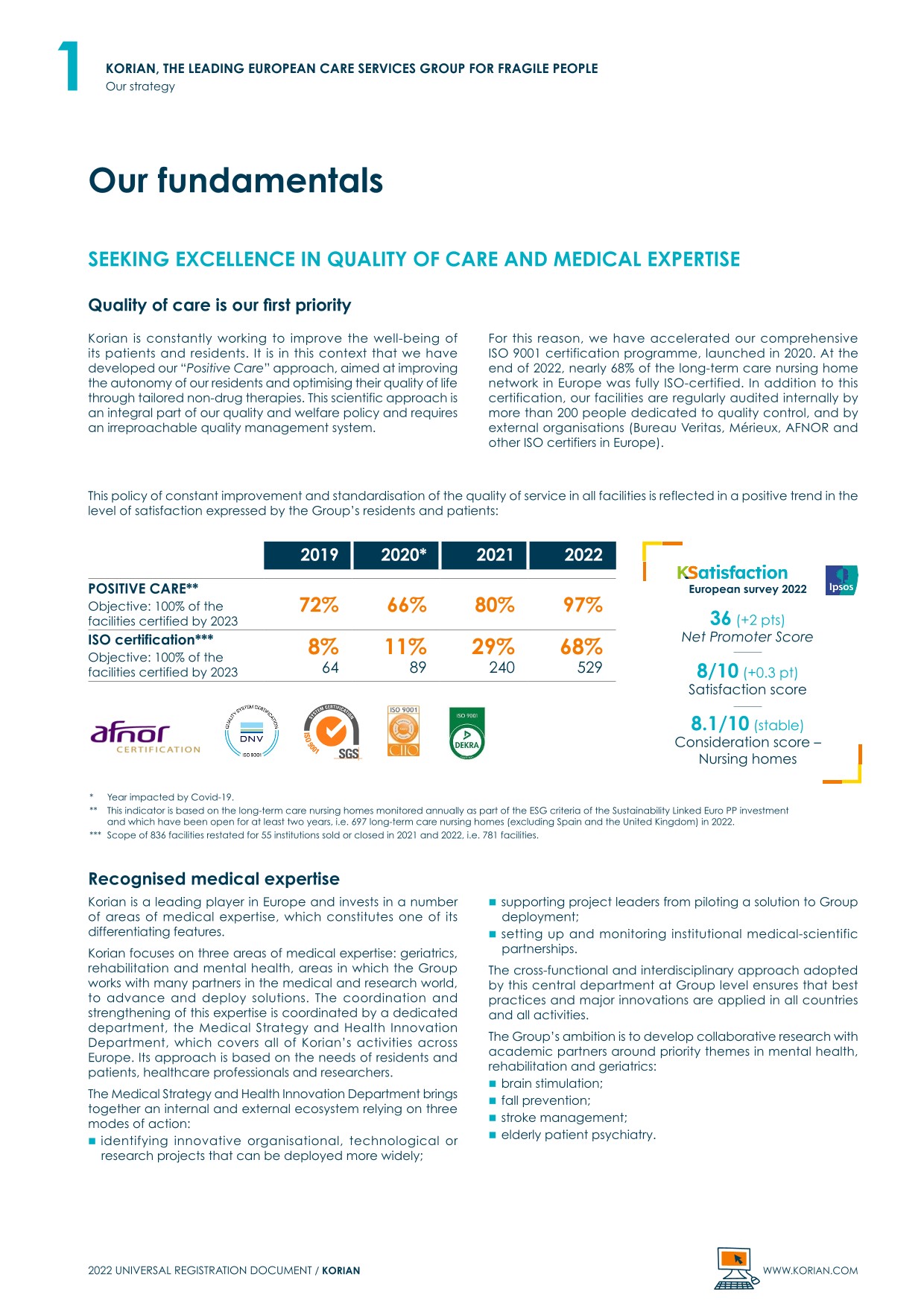
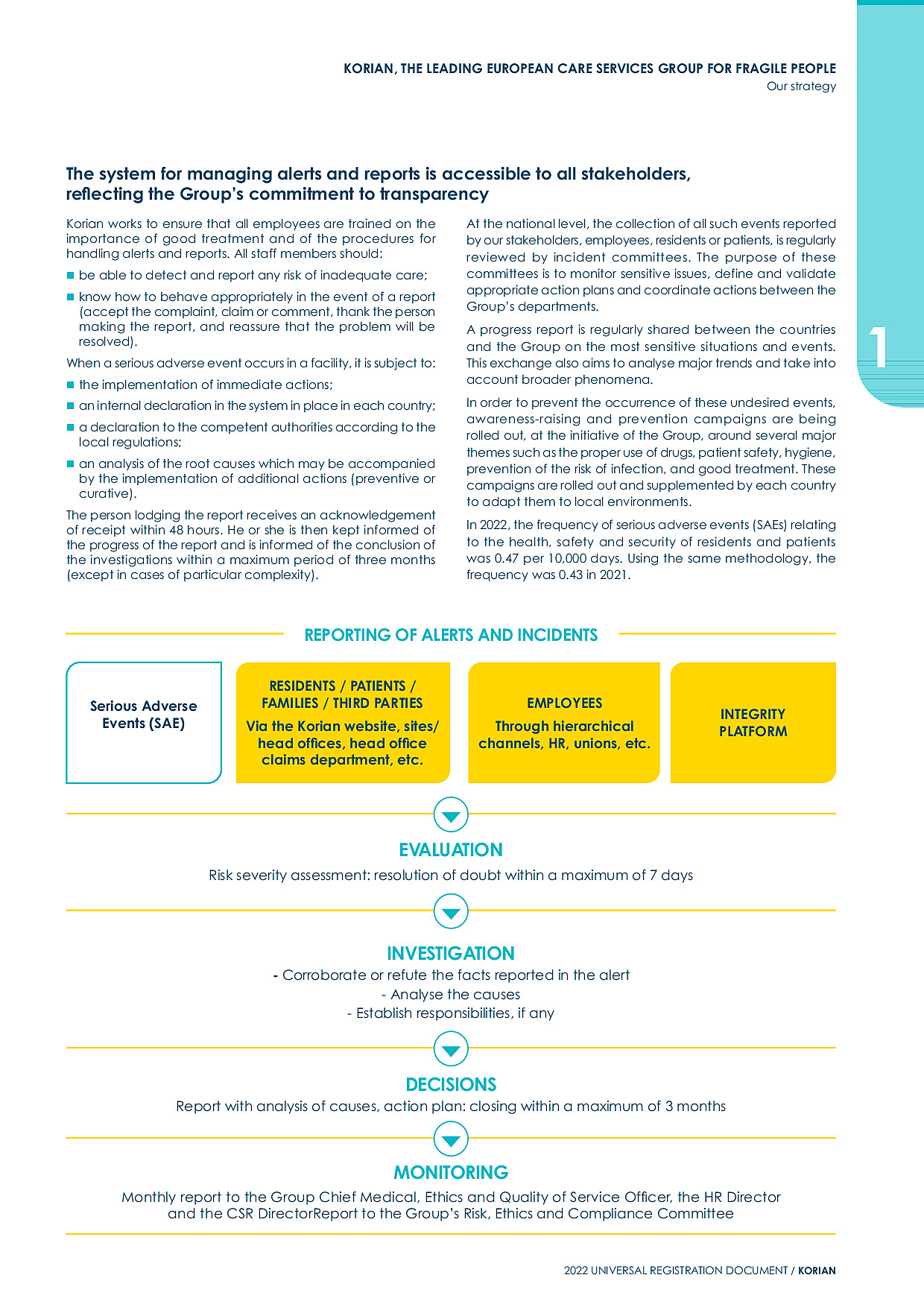
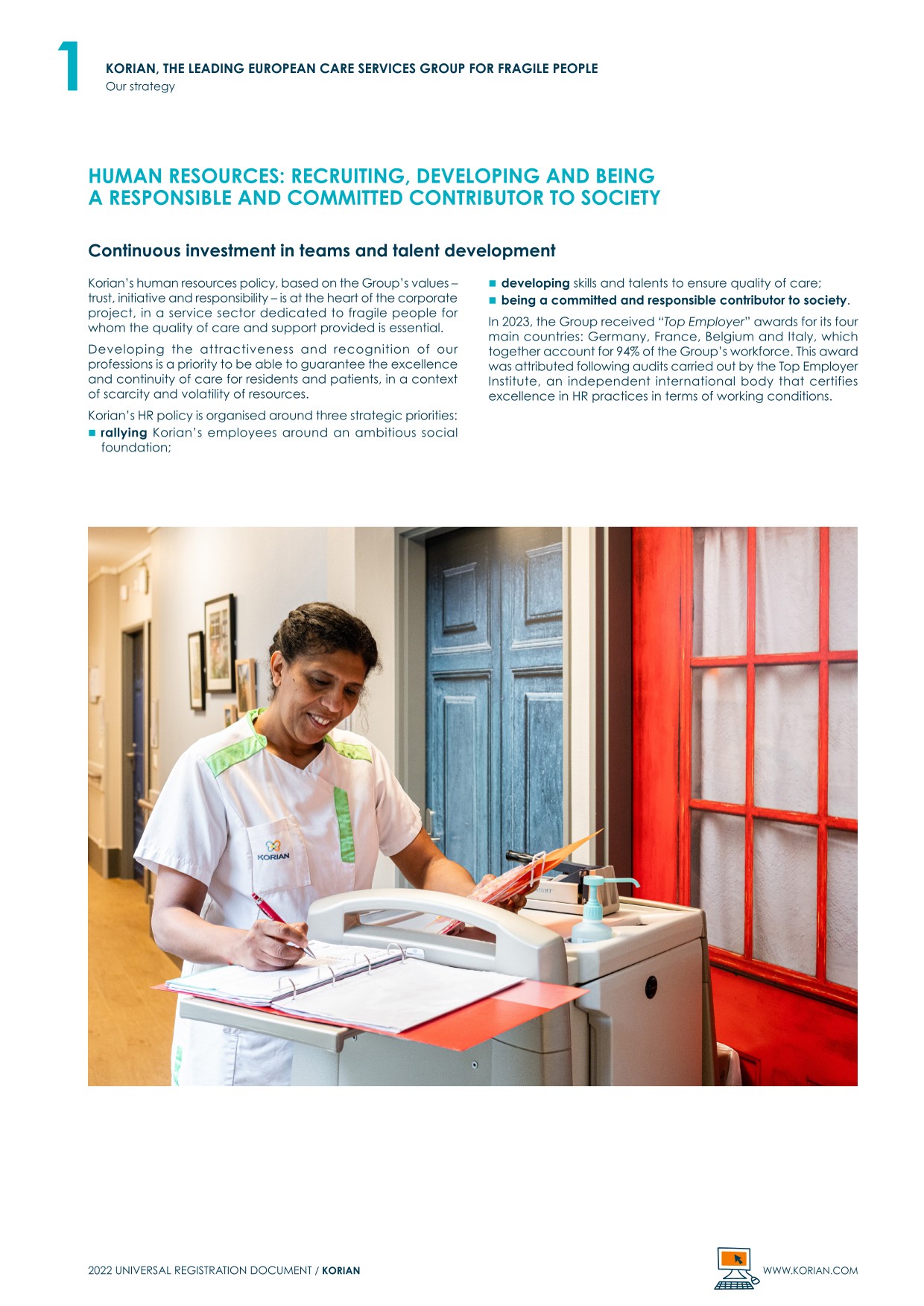
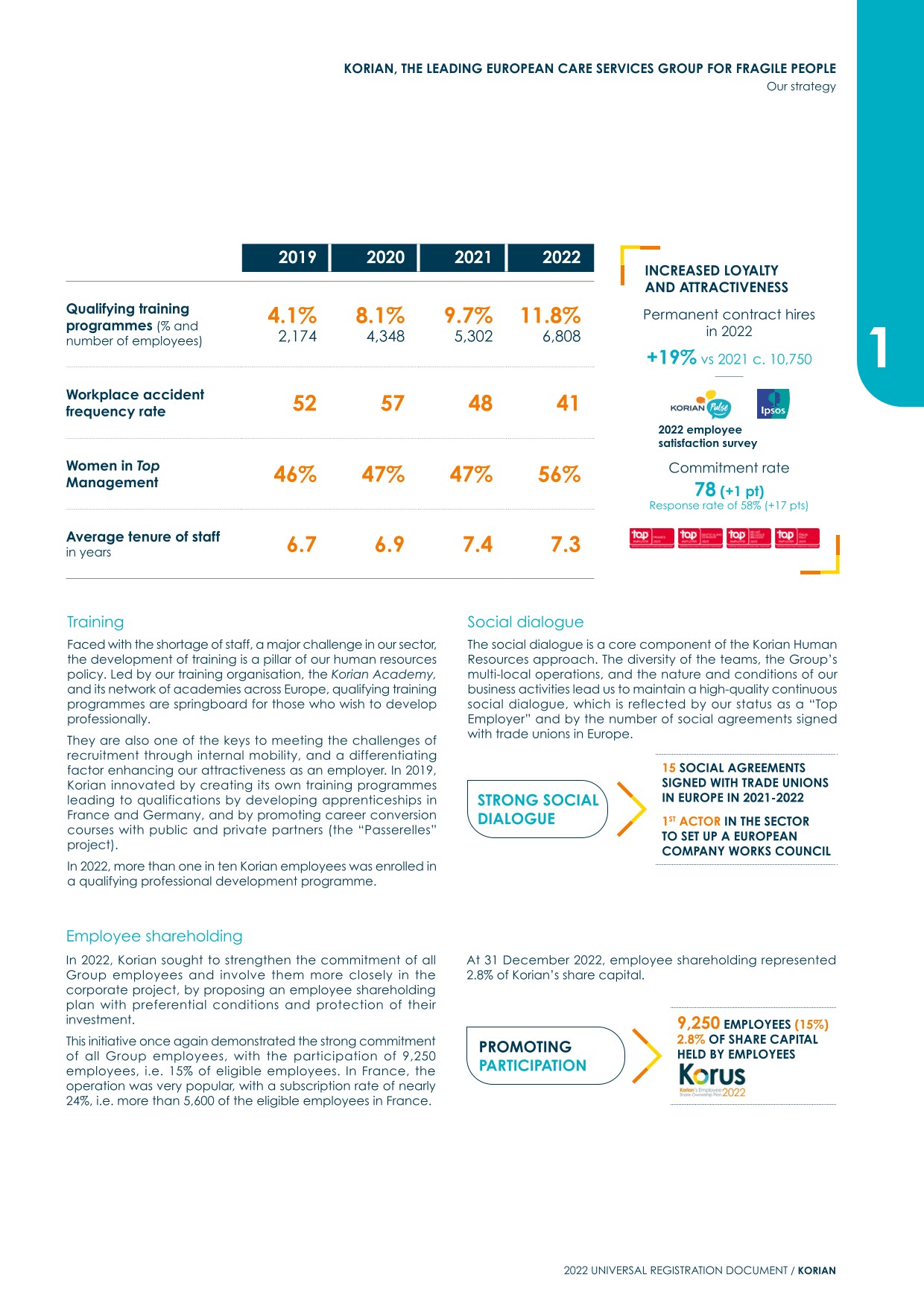
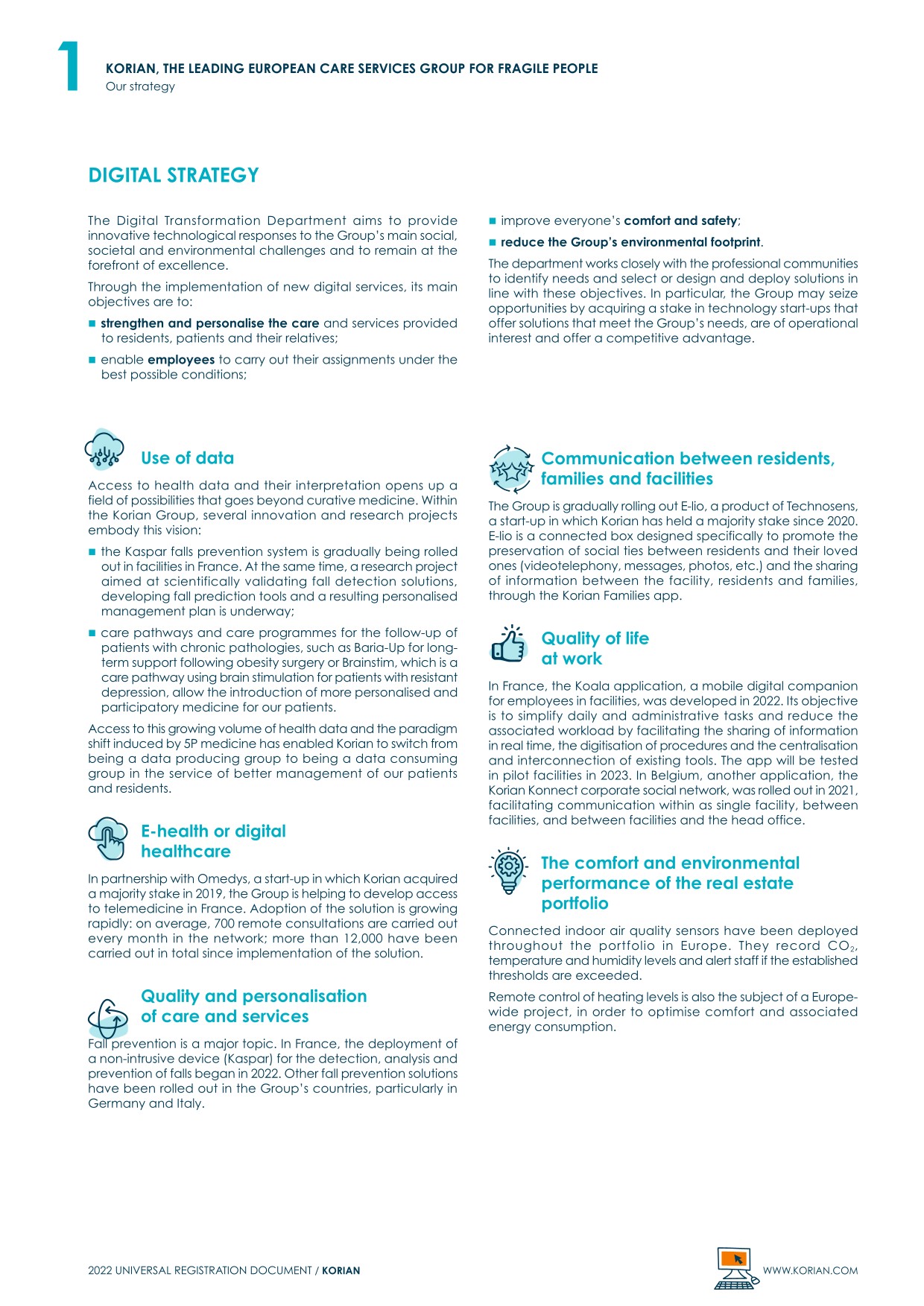
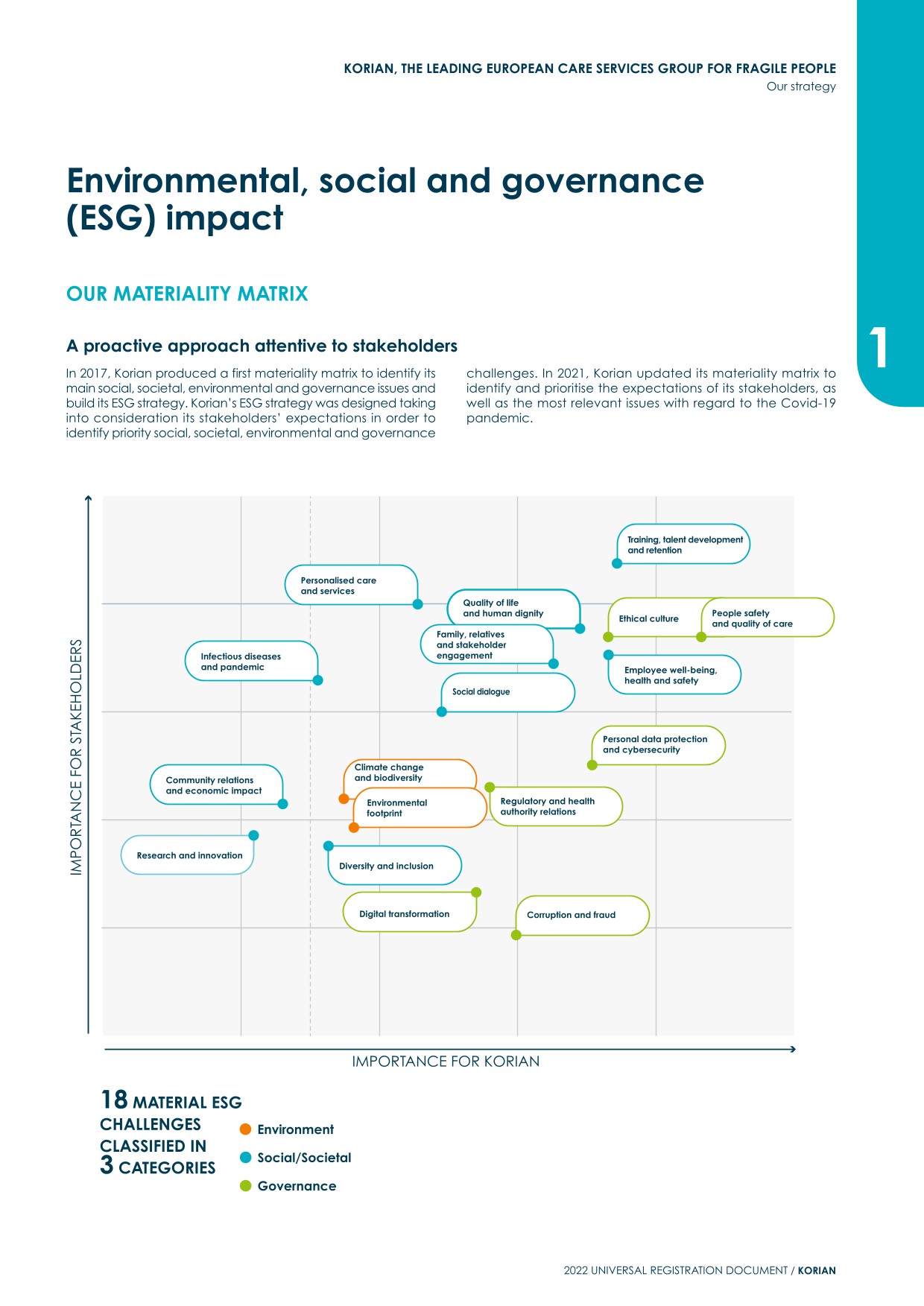
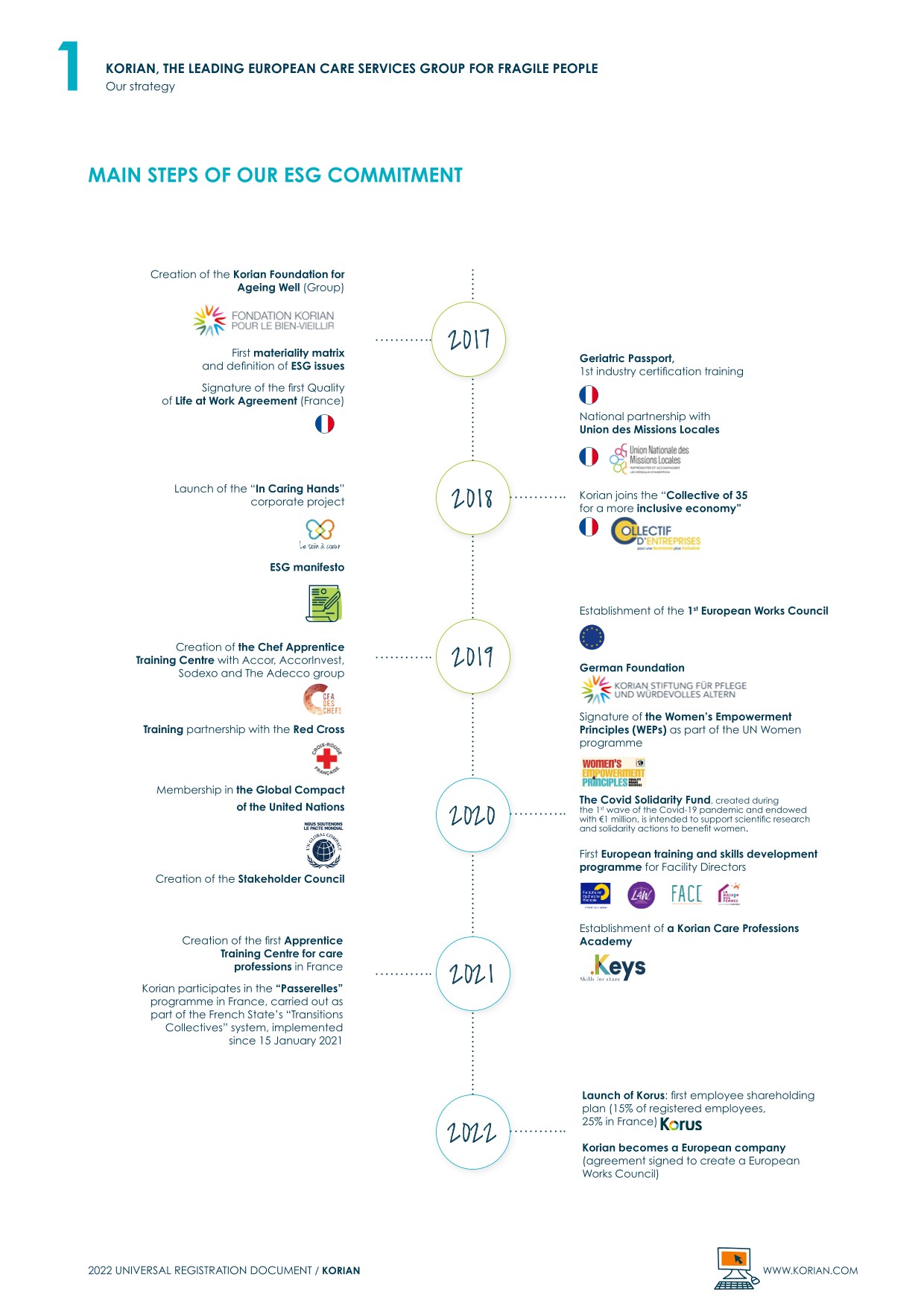
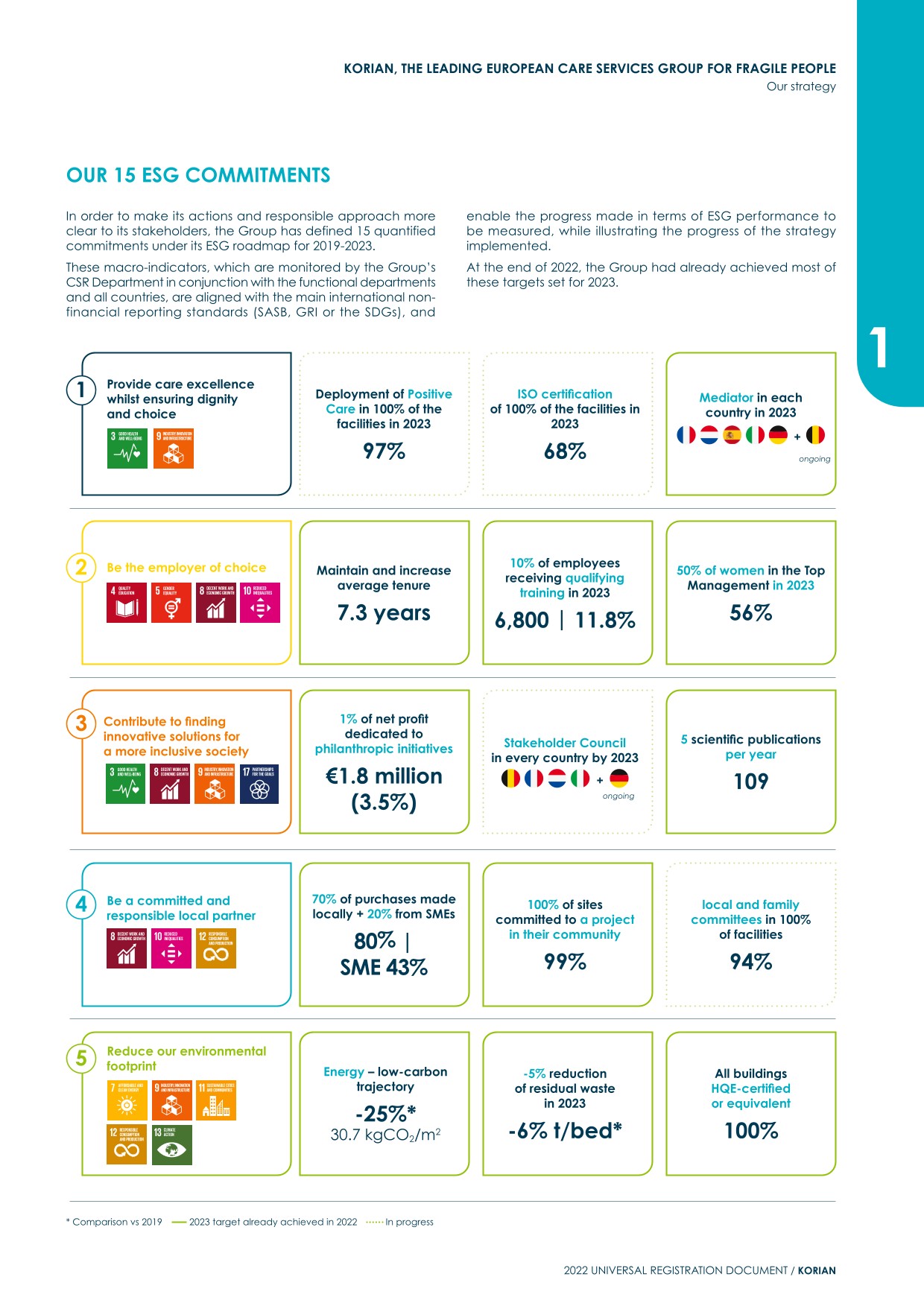
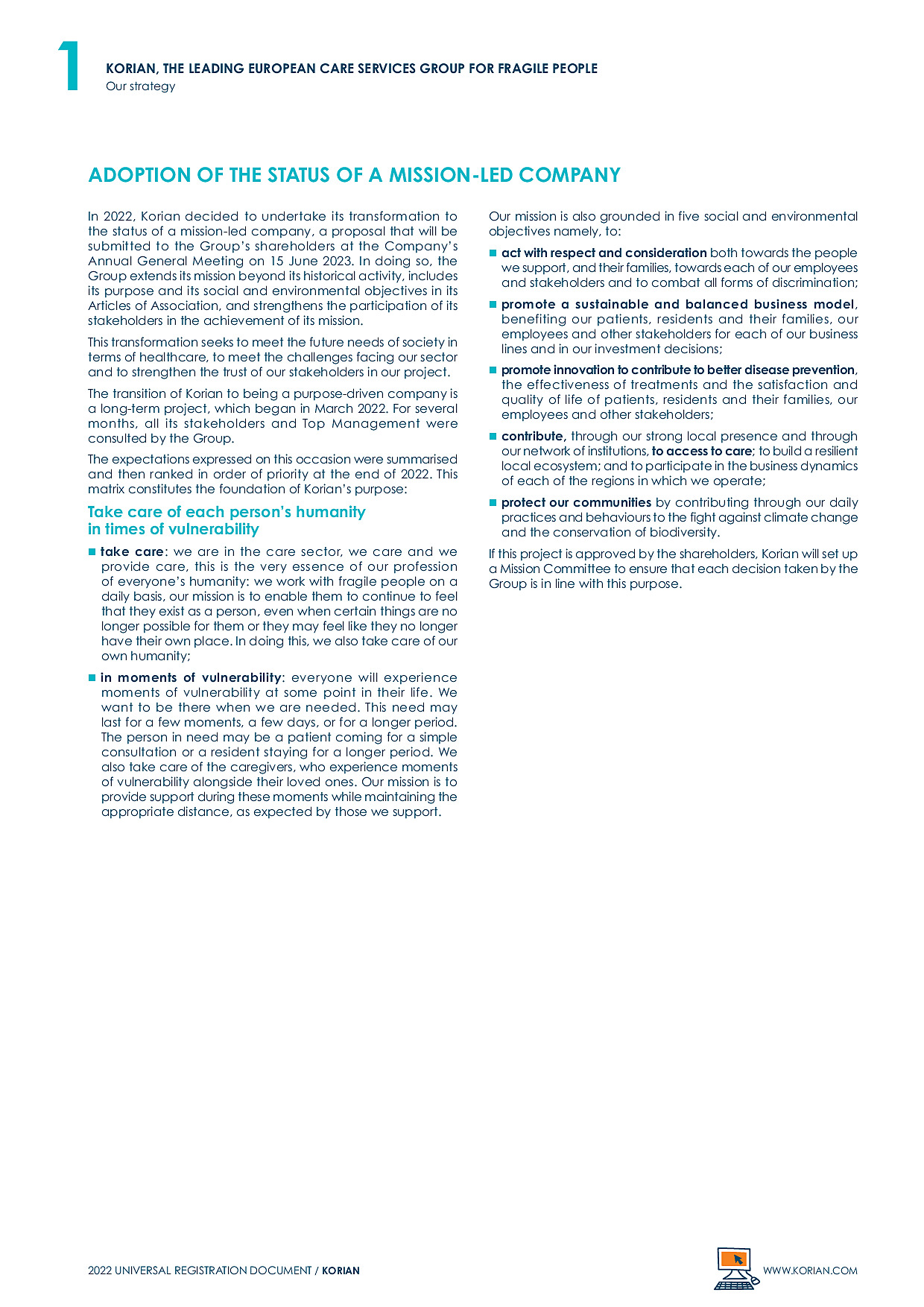
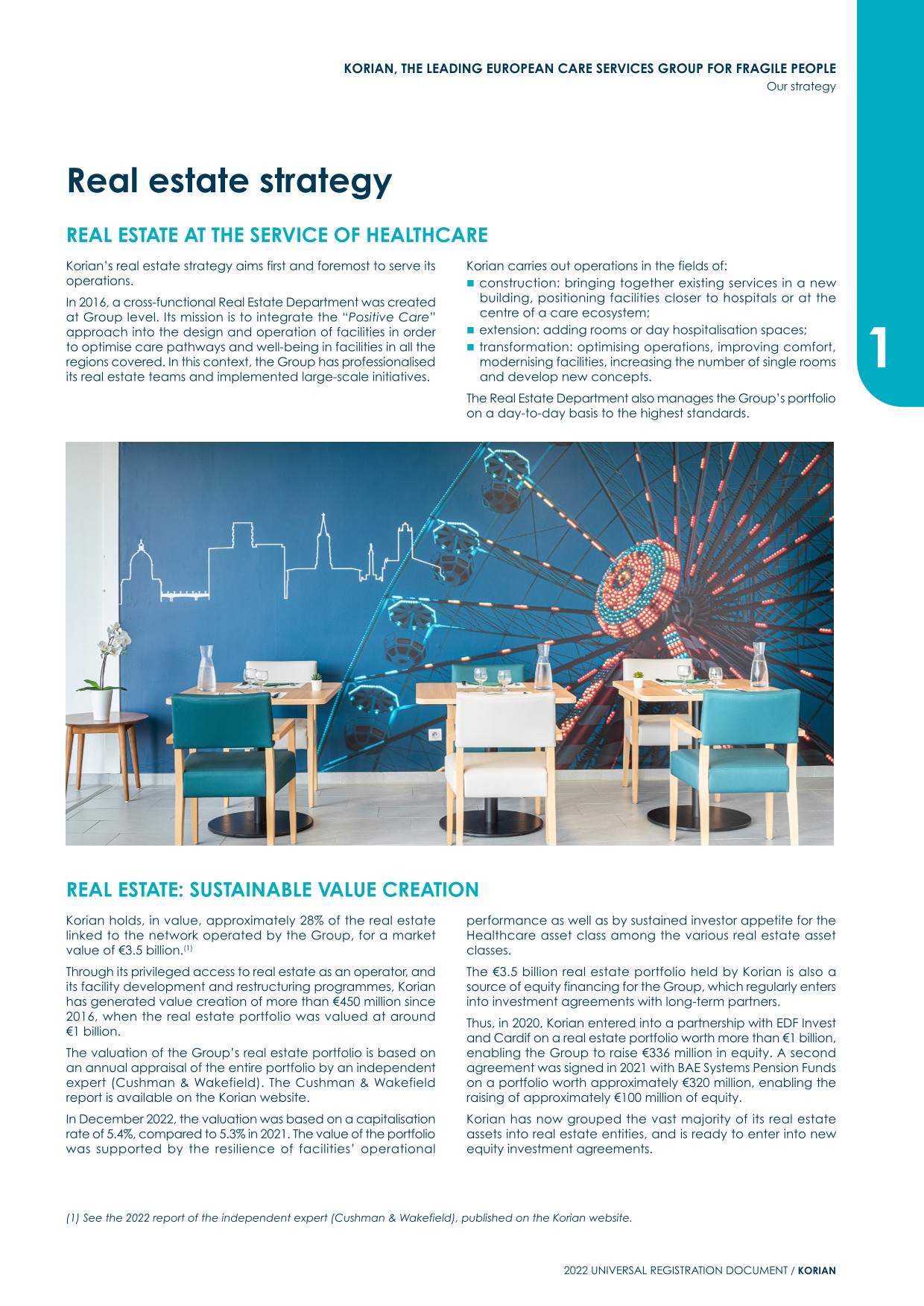
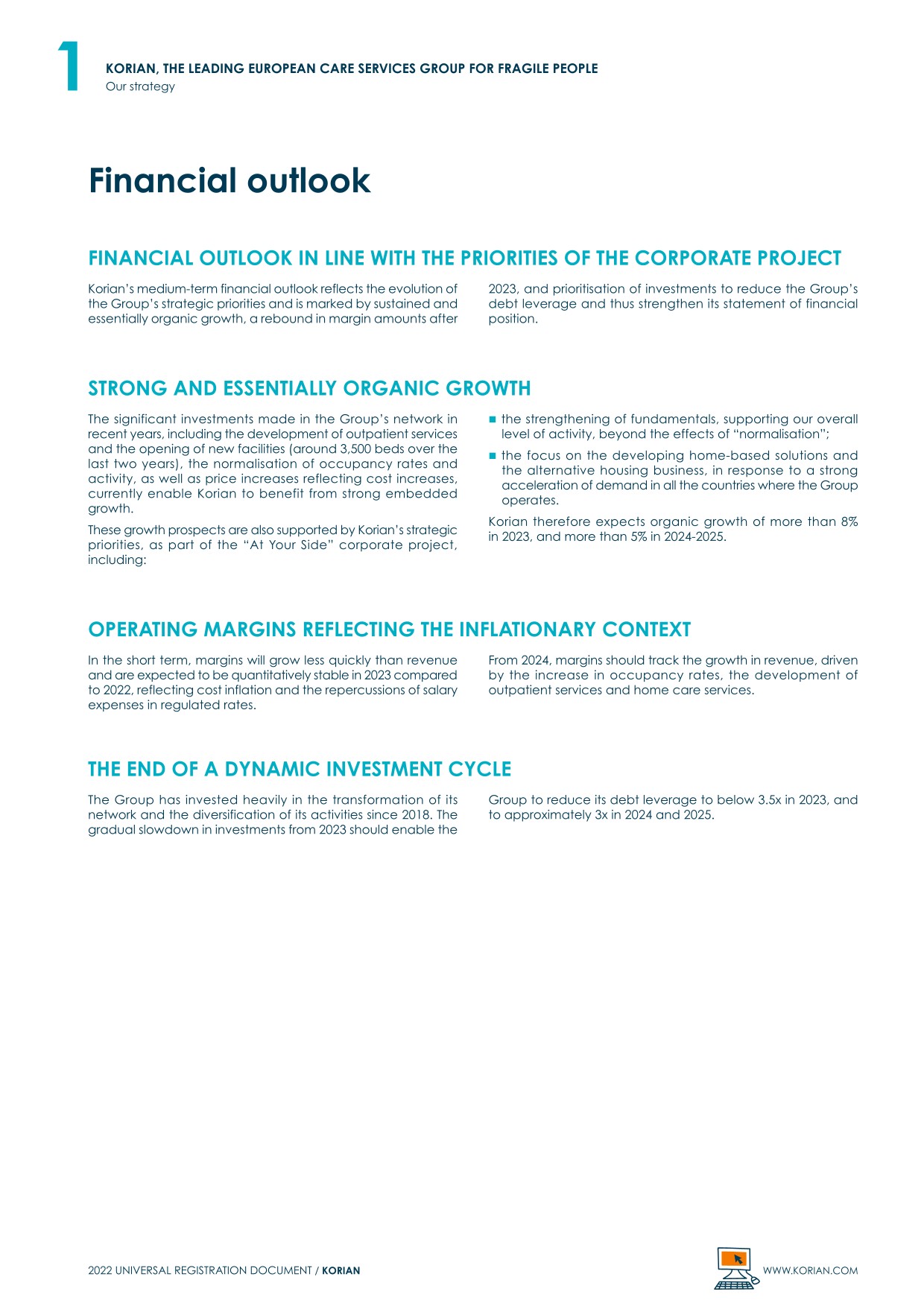
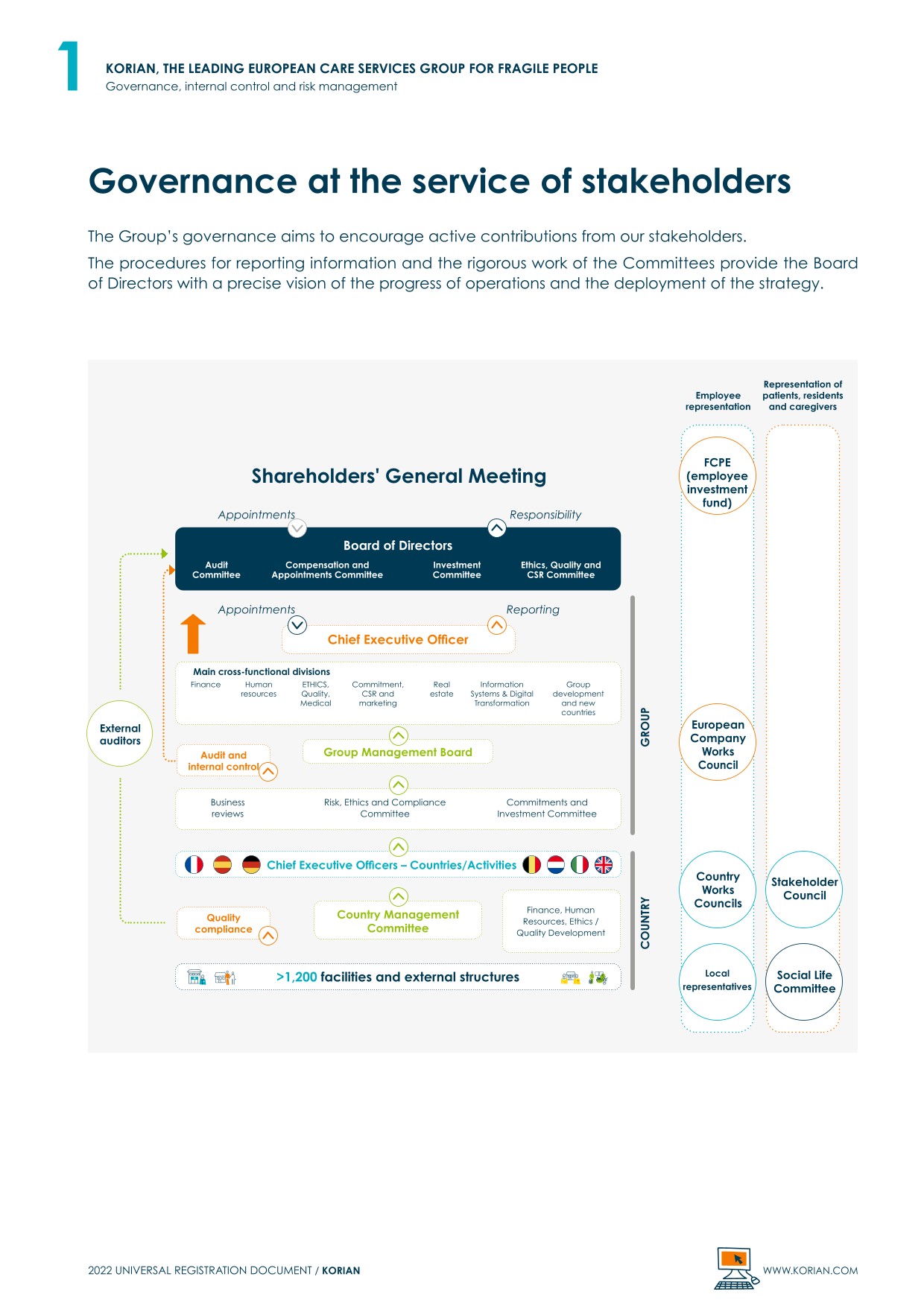
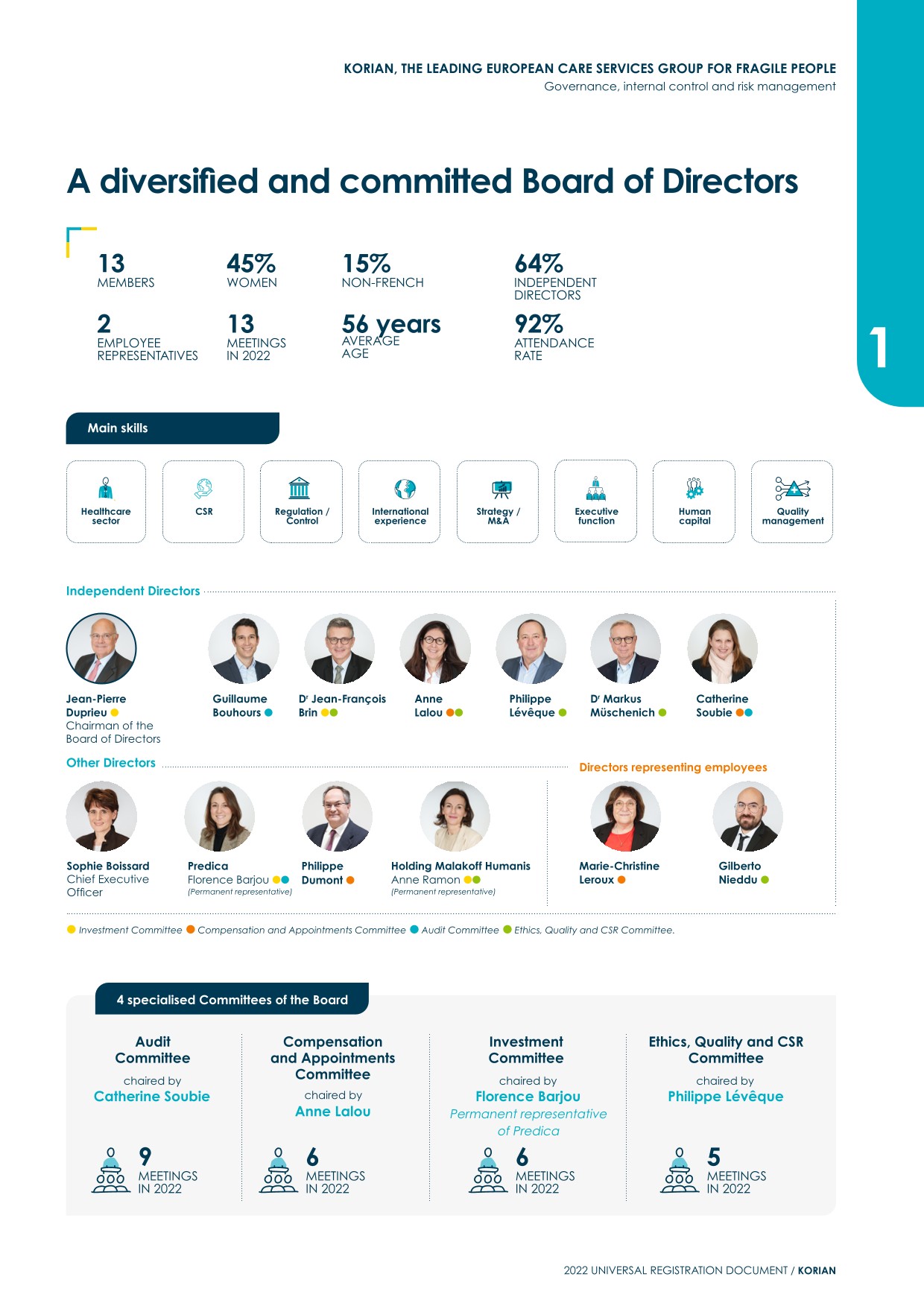
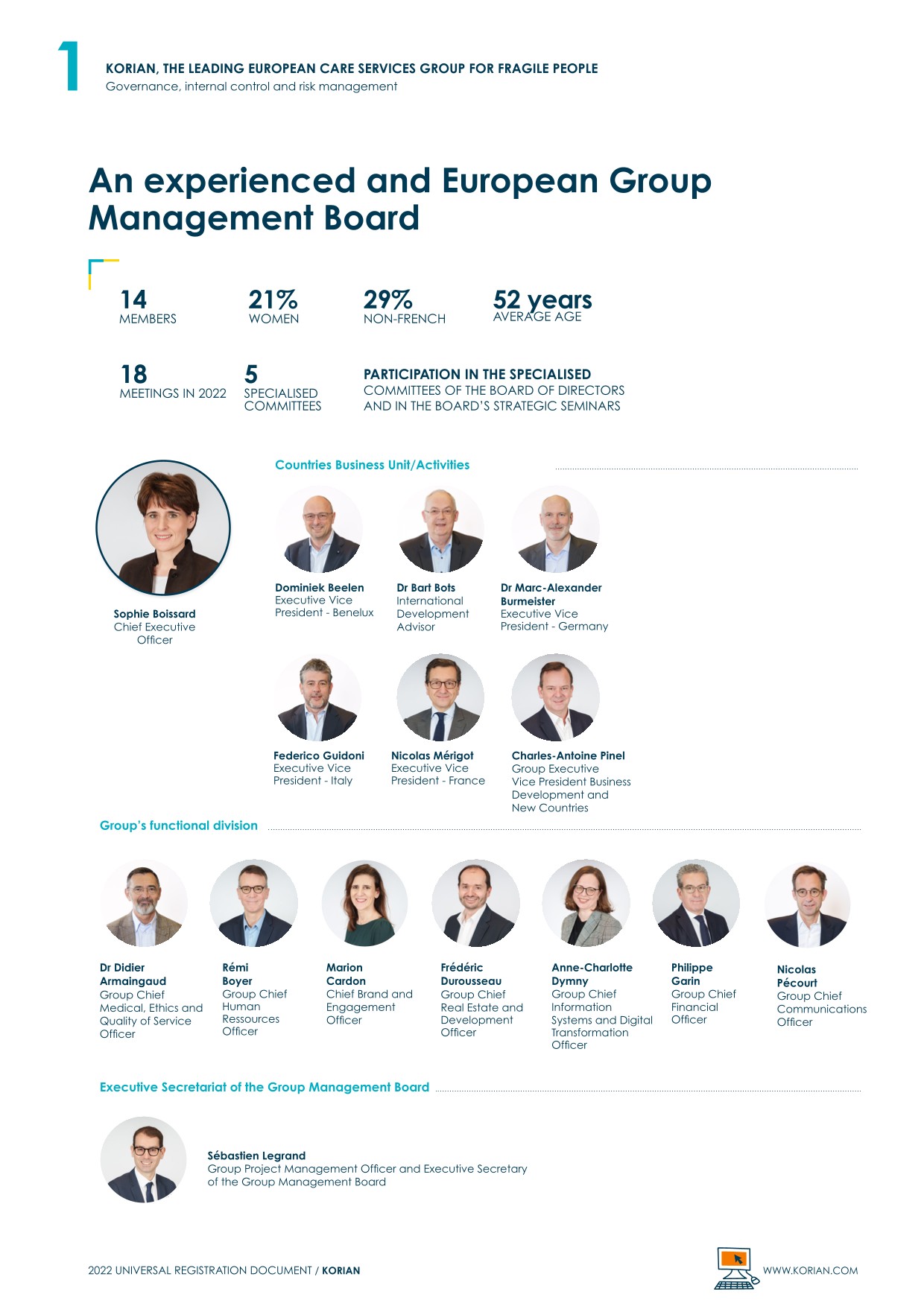
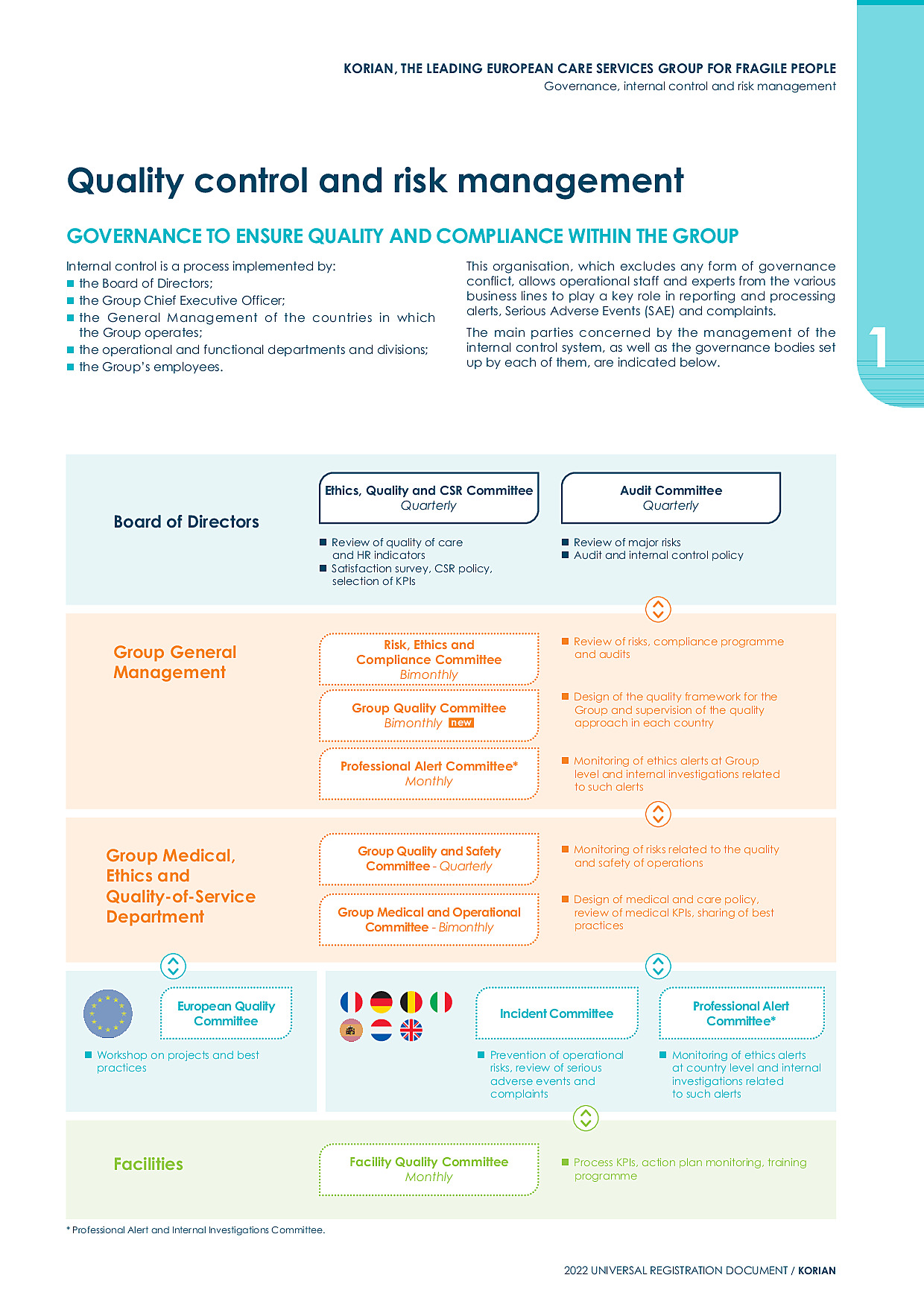
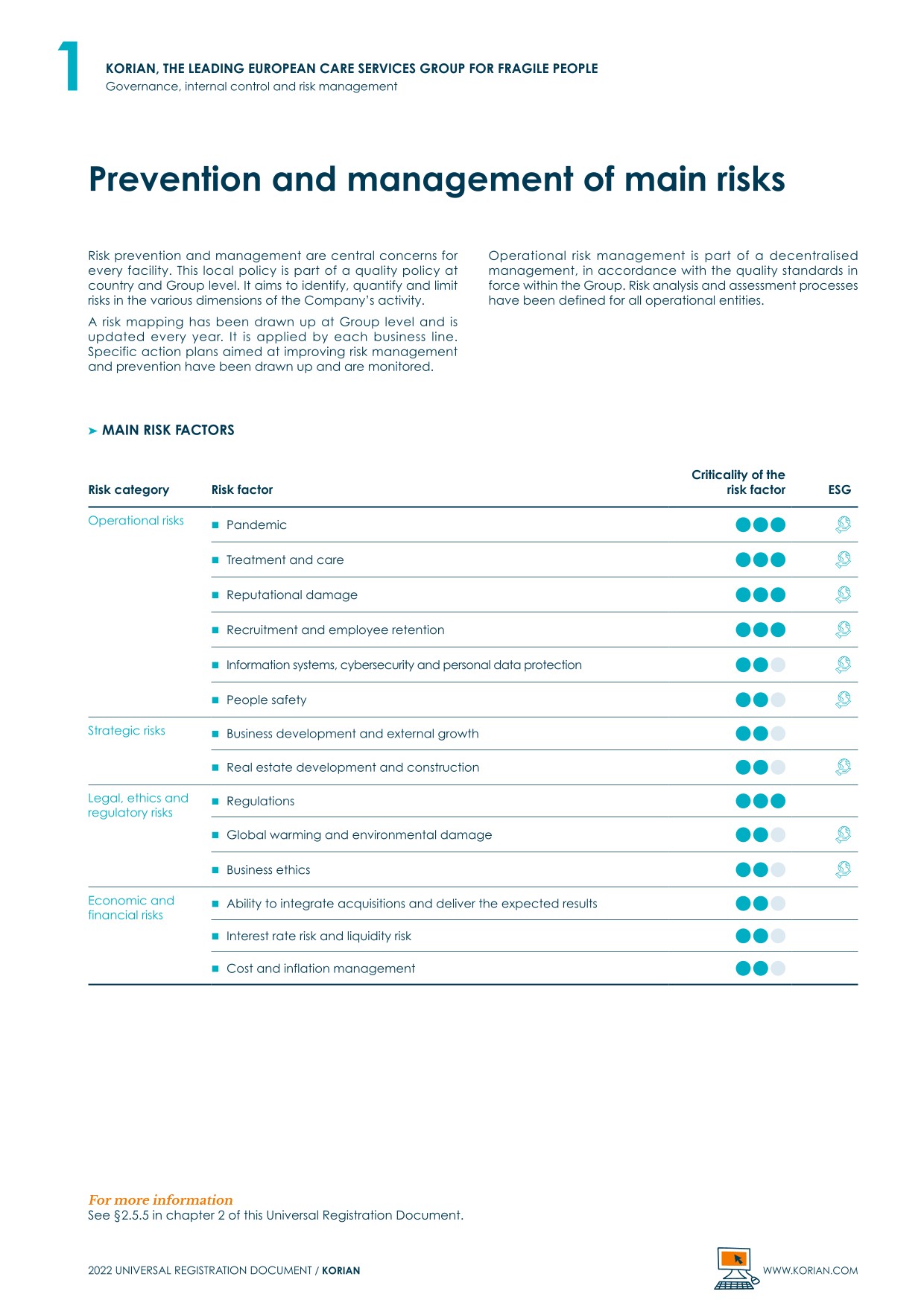
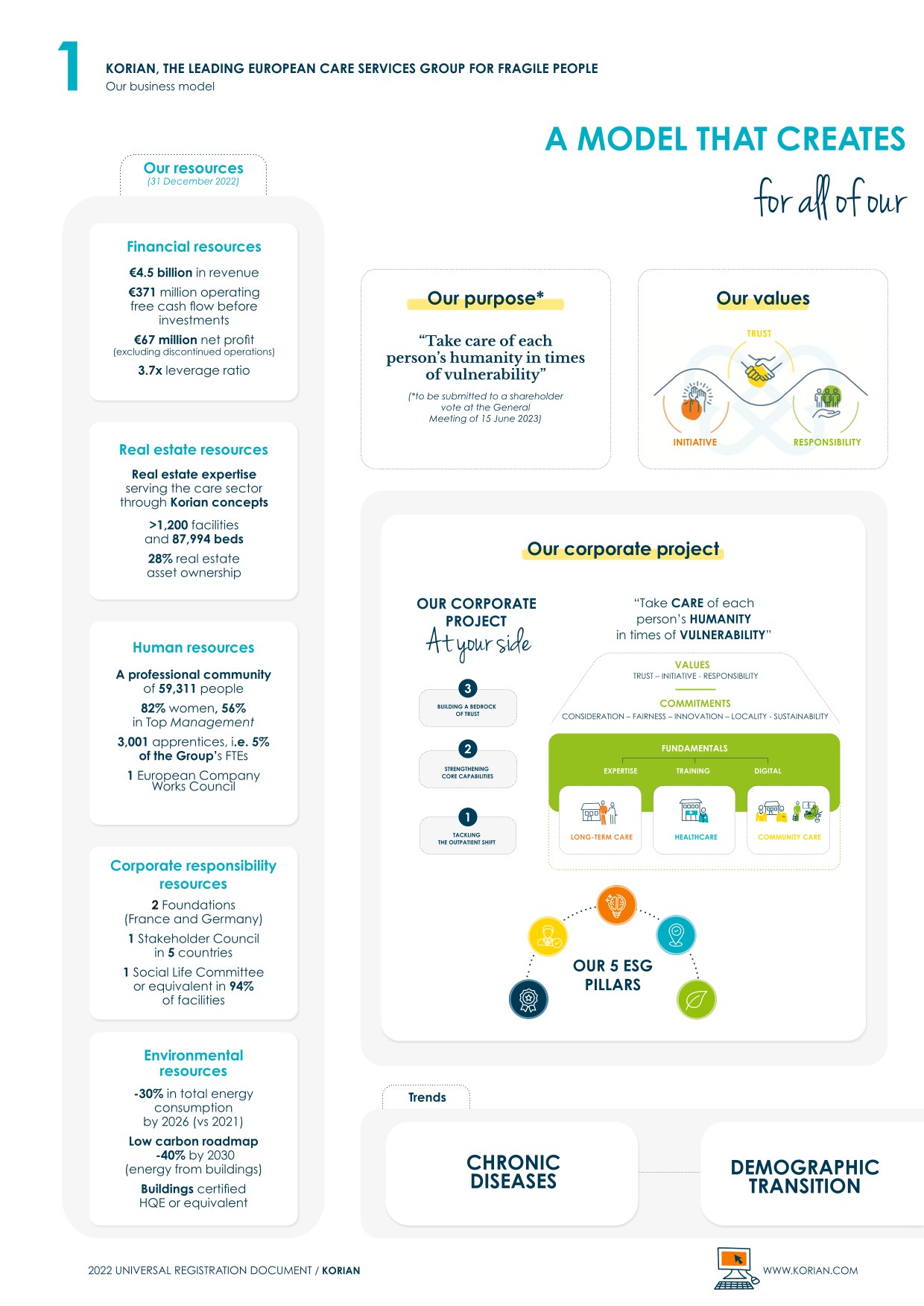
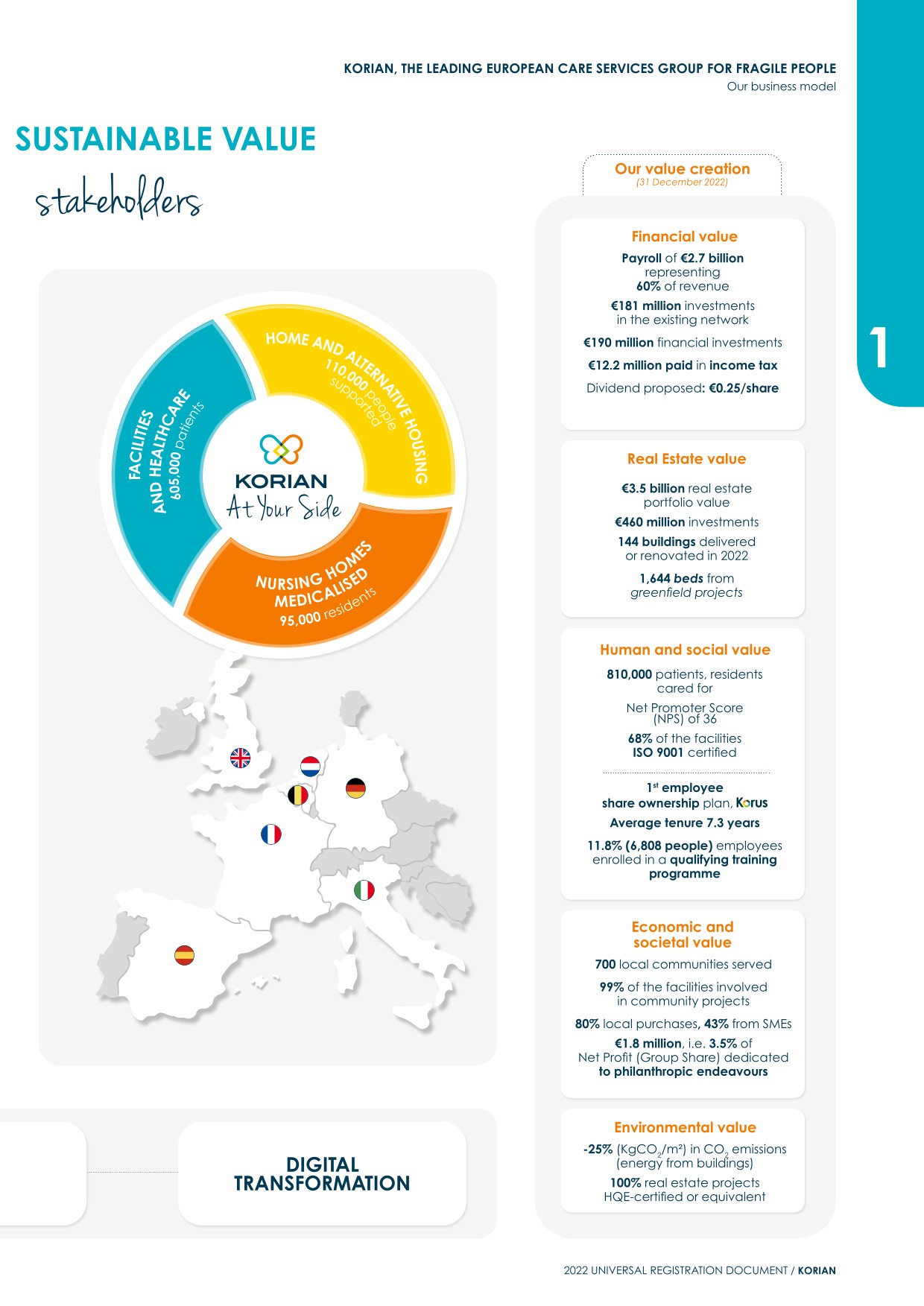

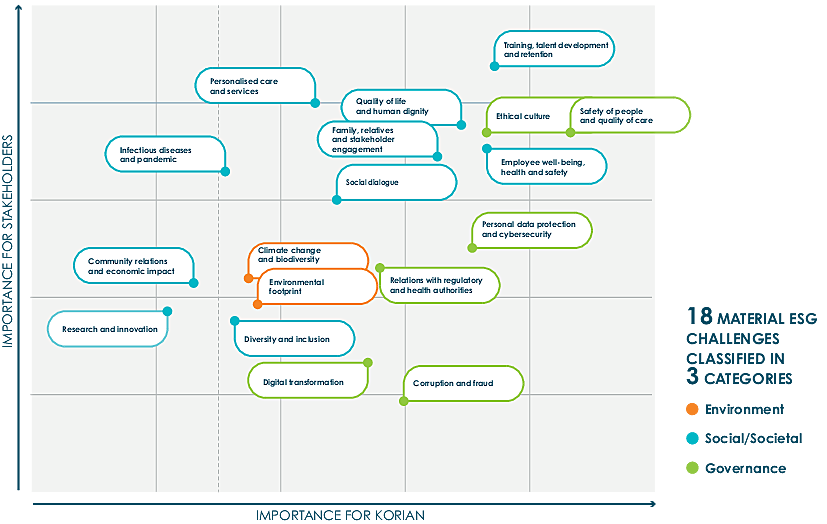
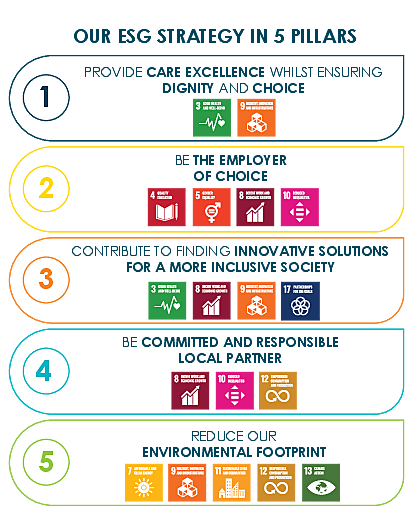
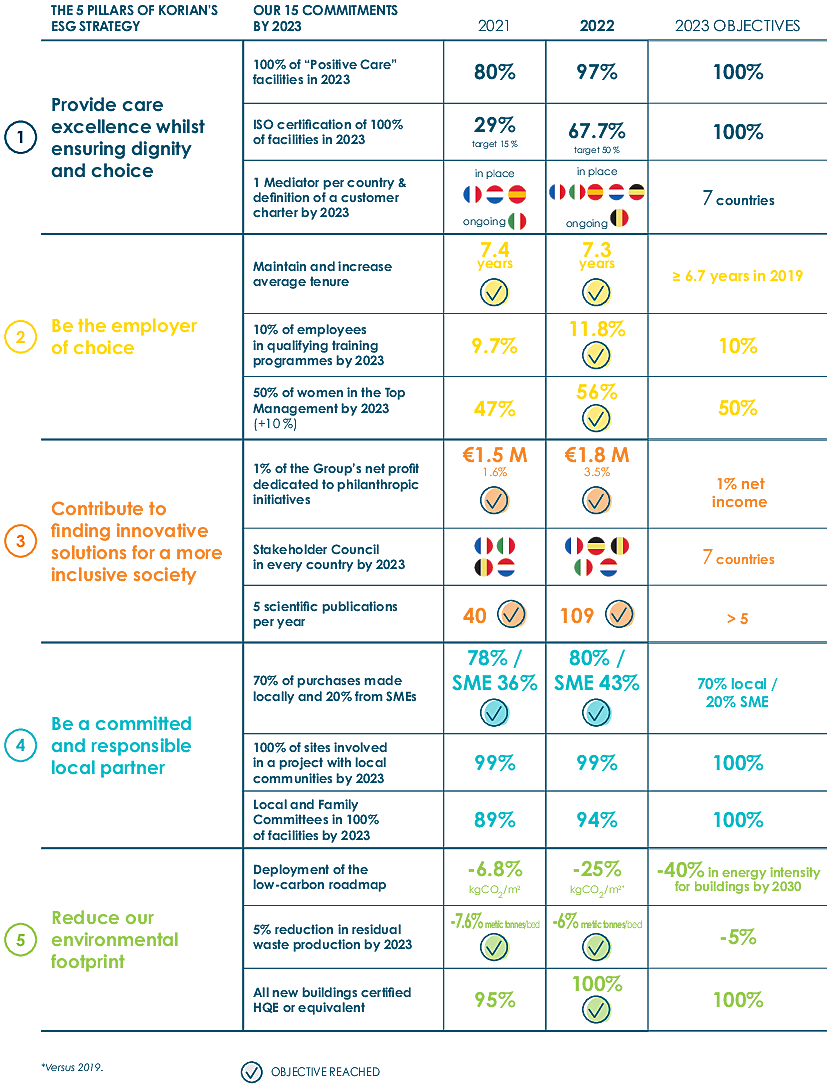

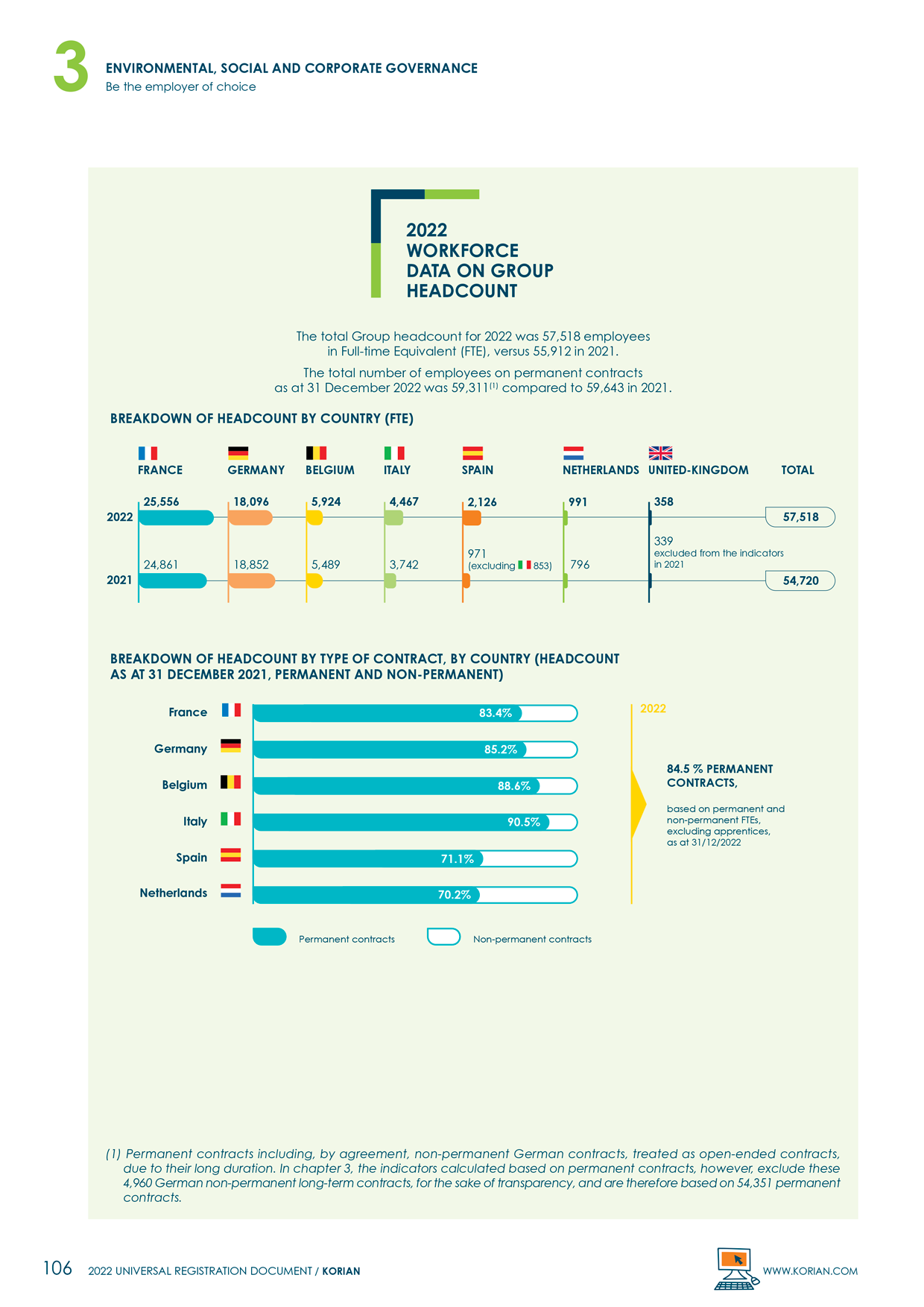
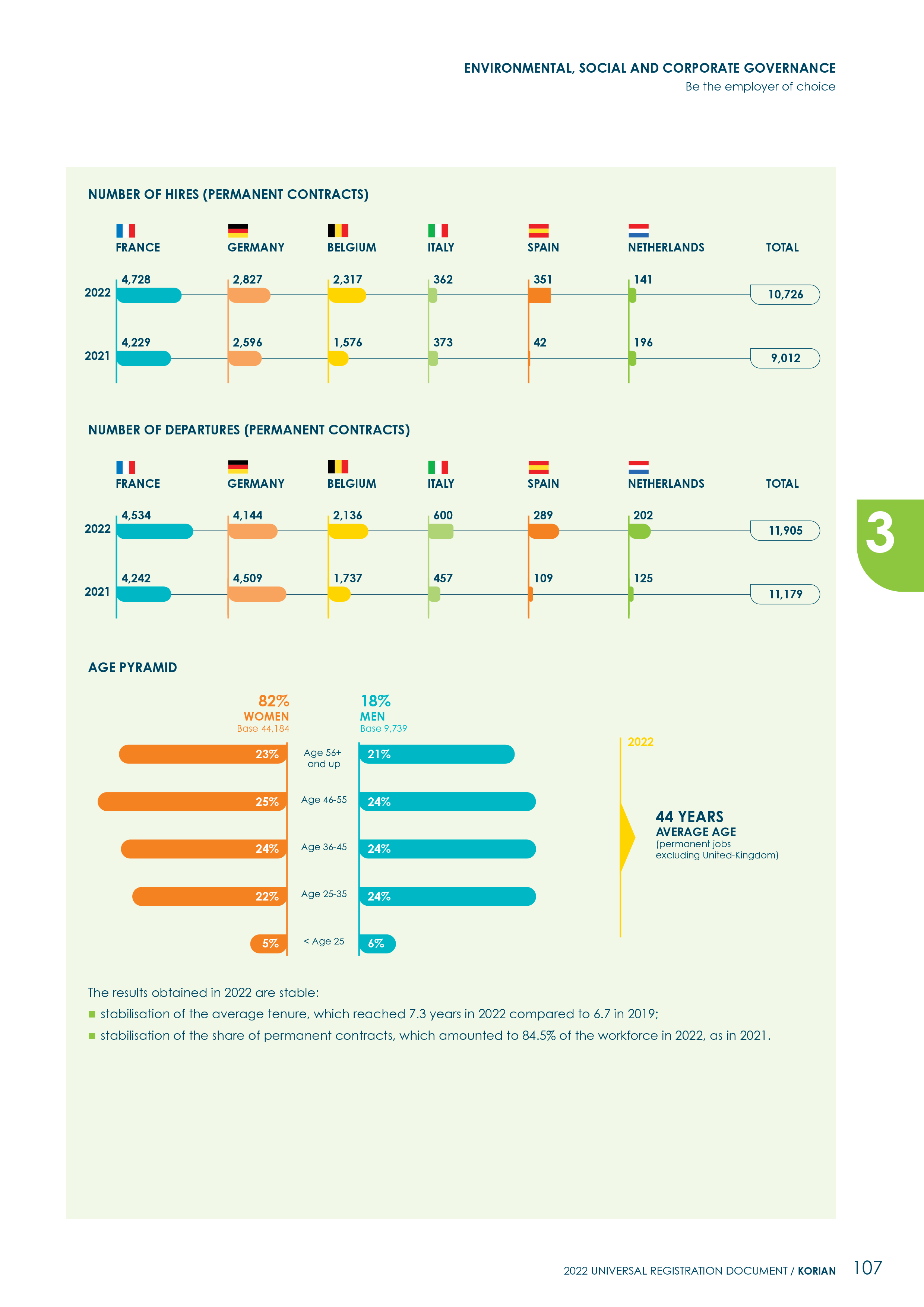
_p01_HD.png)
